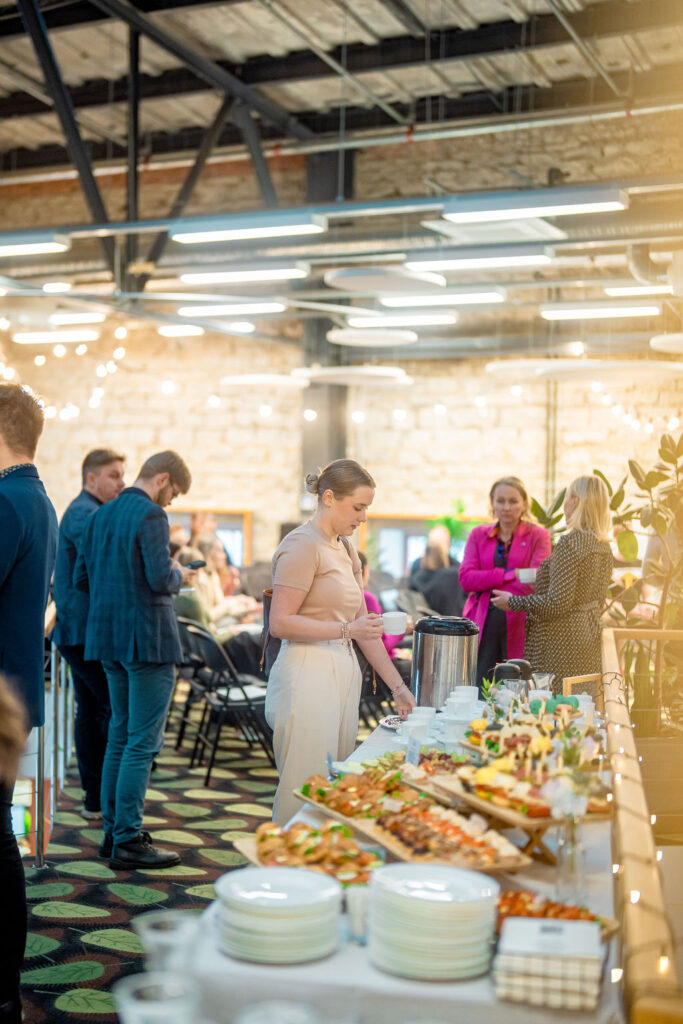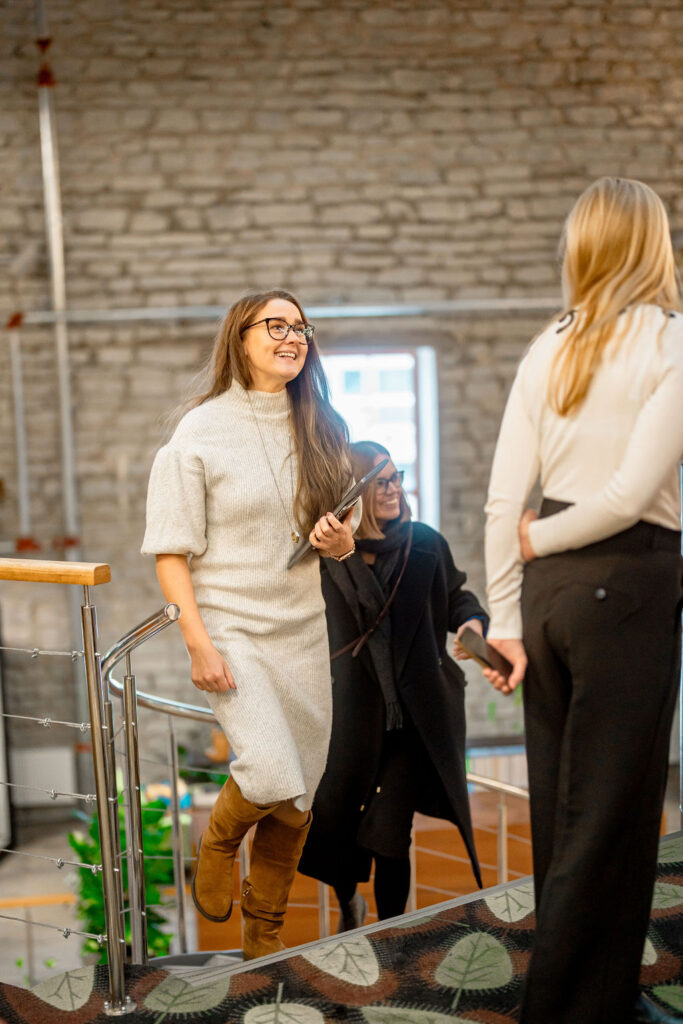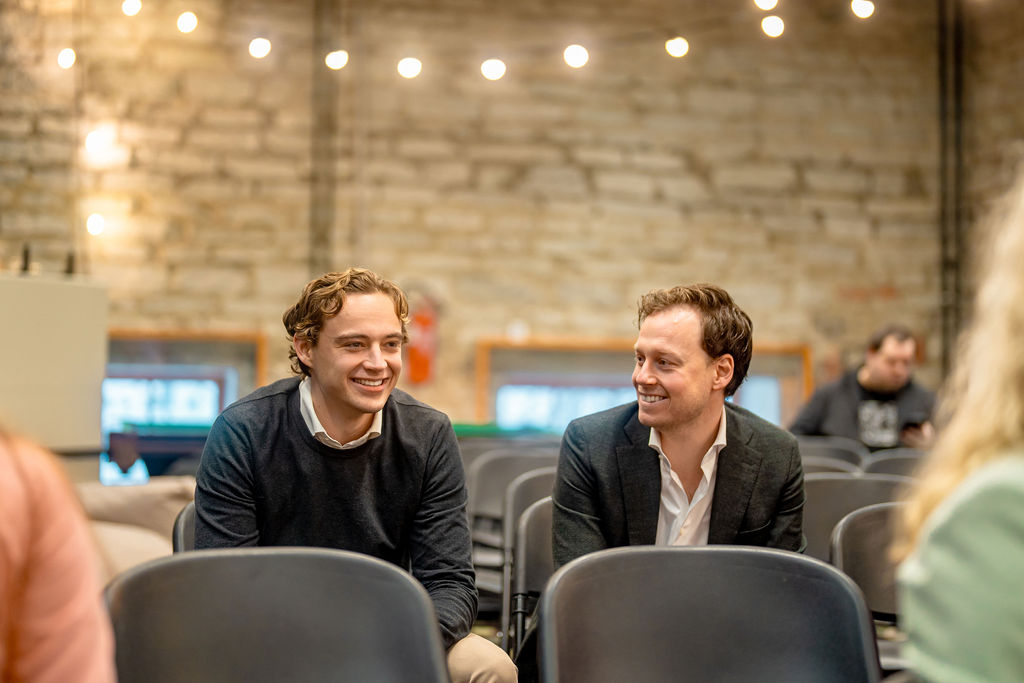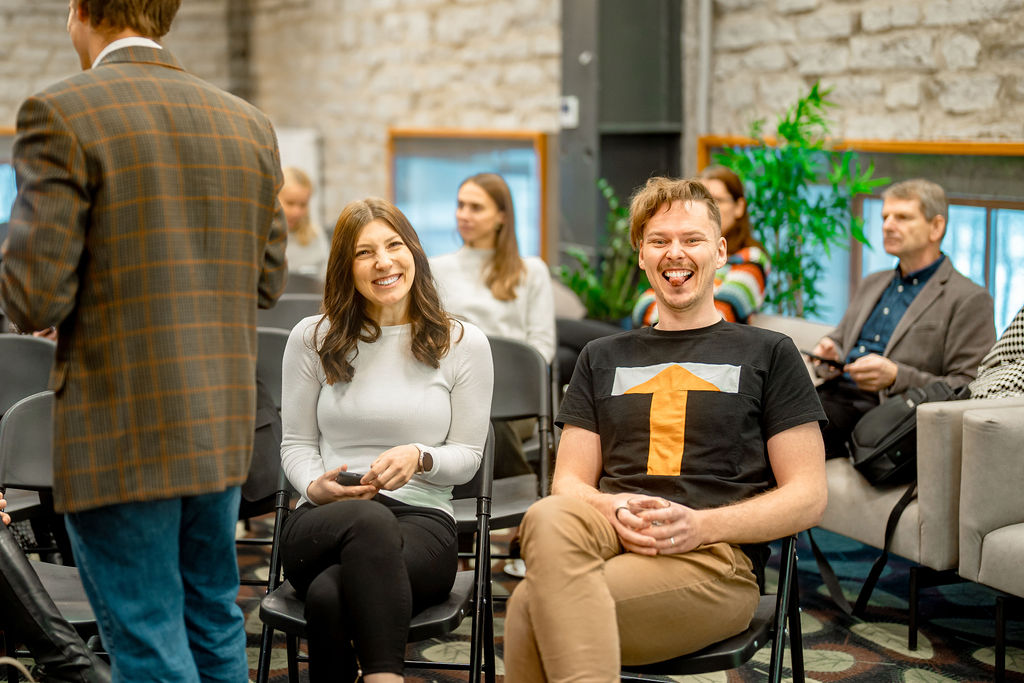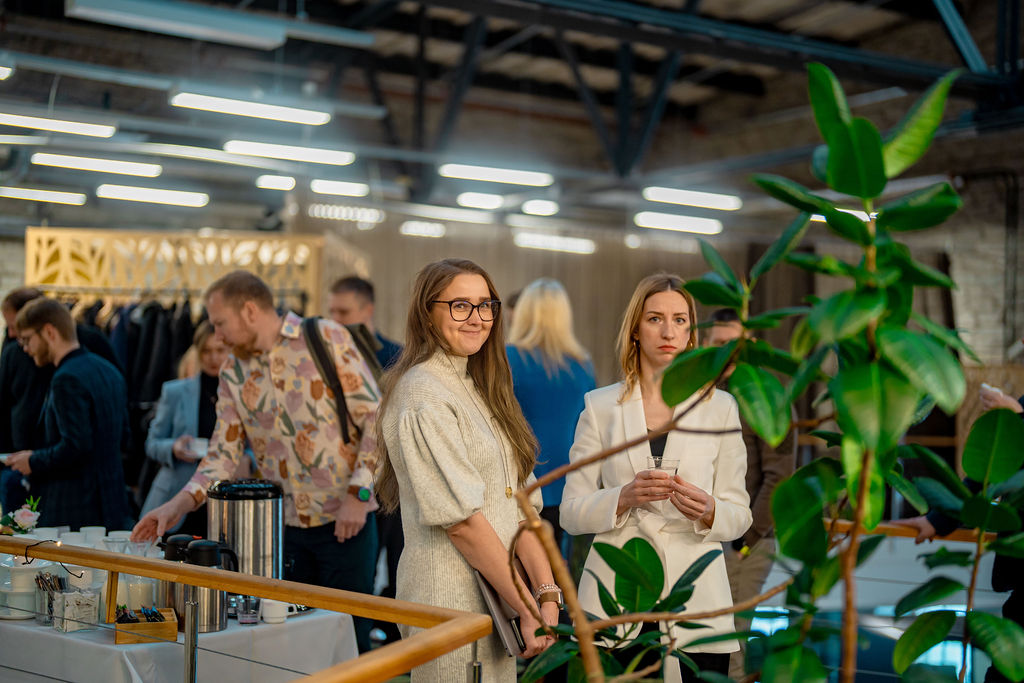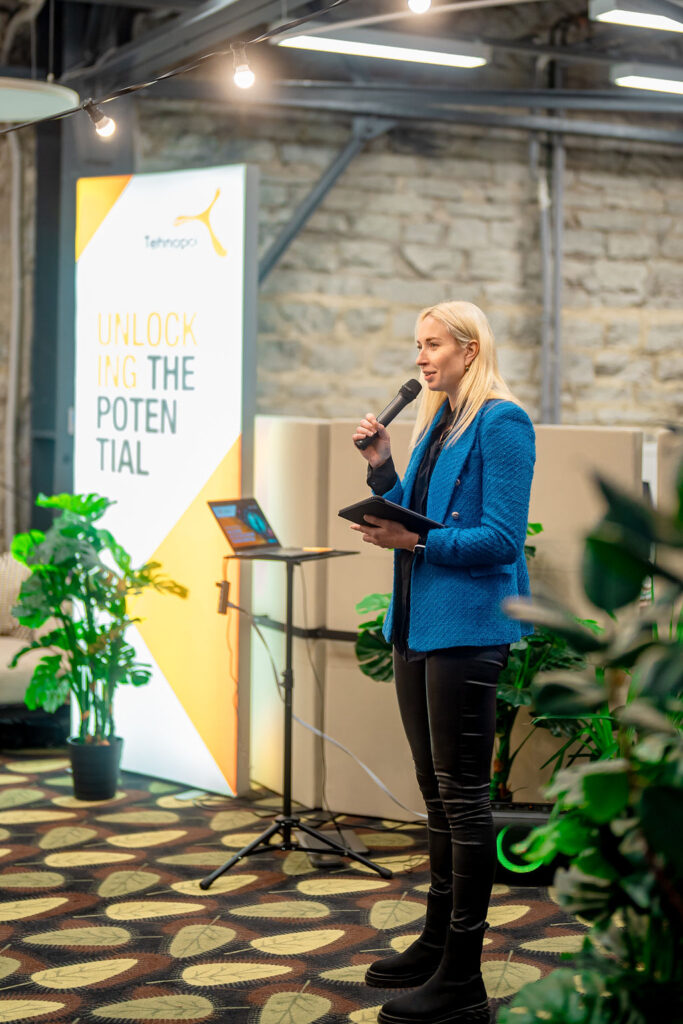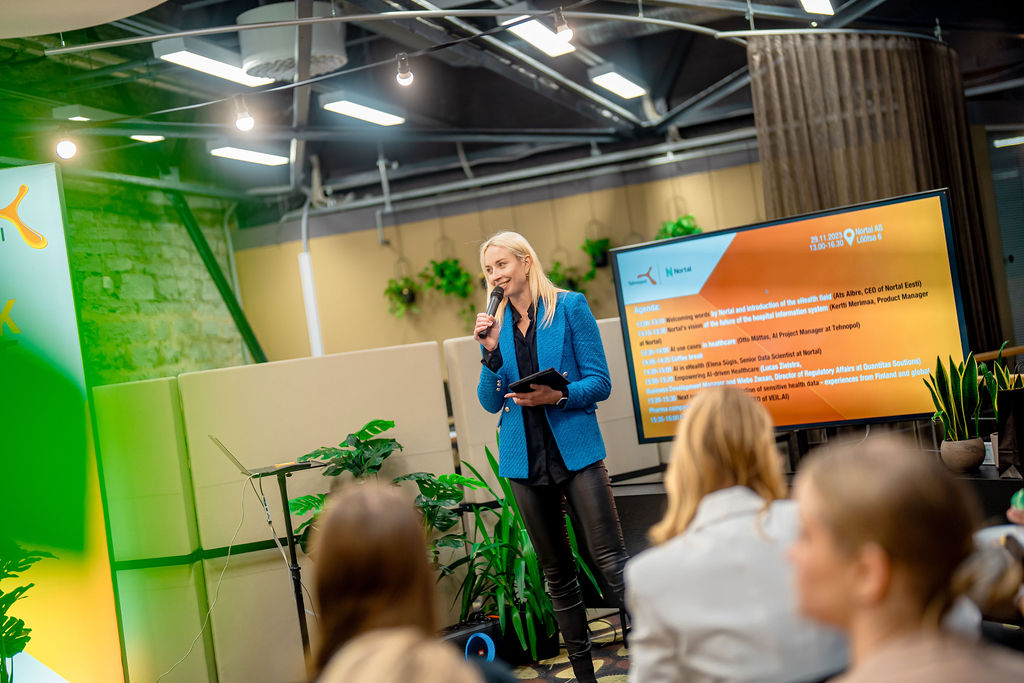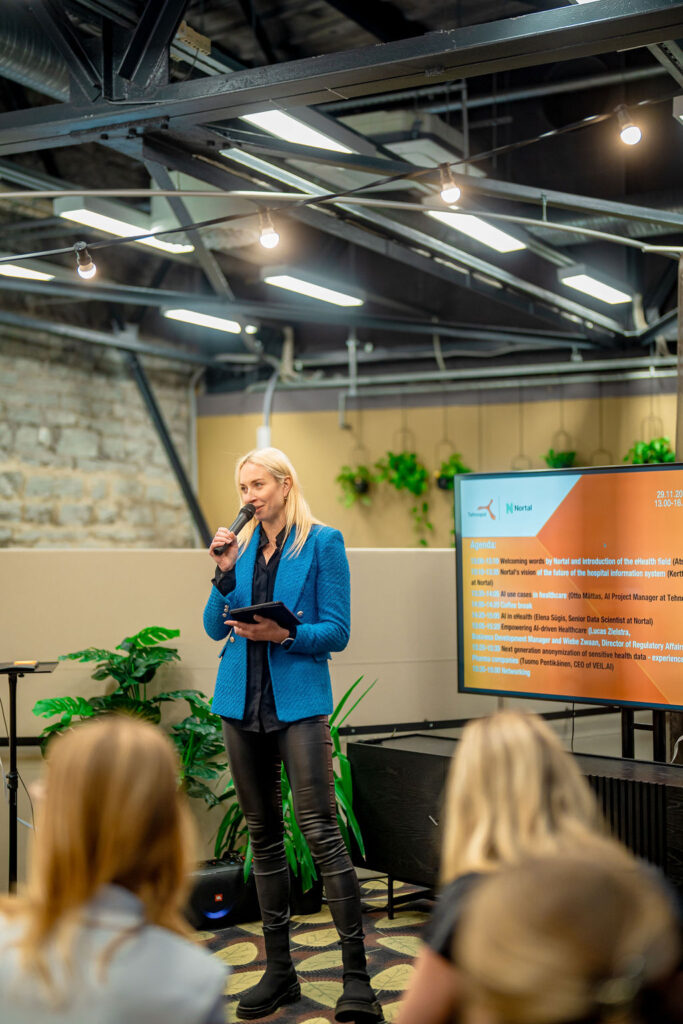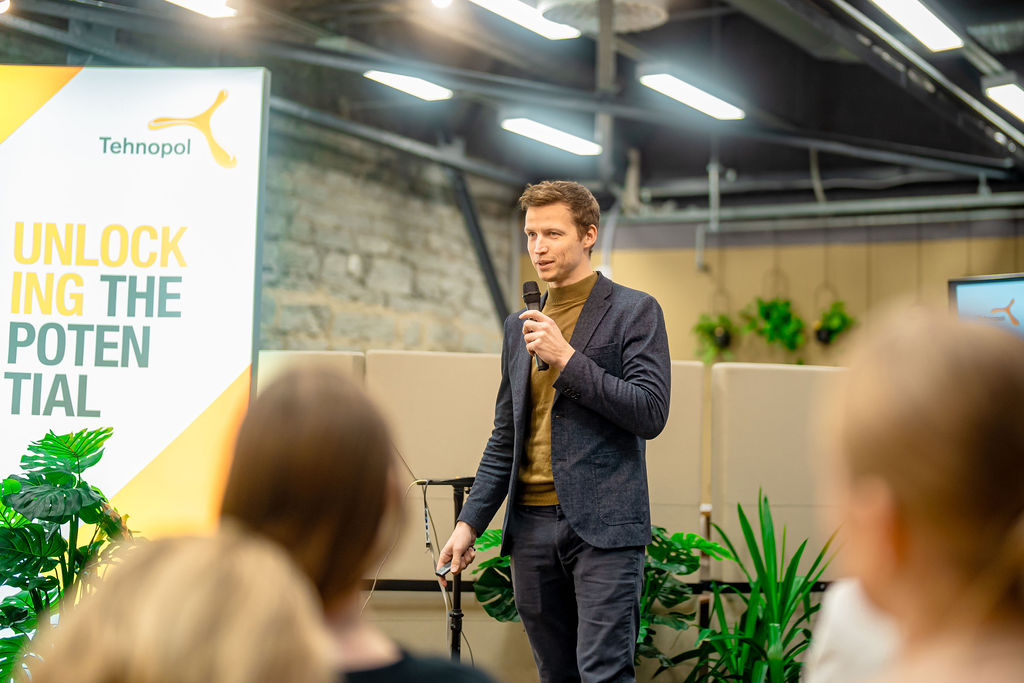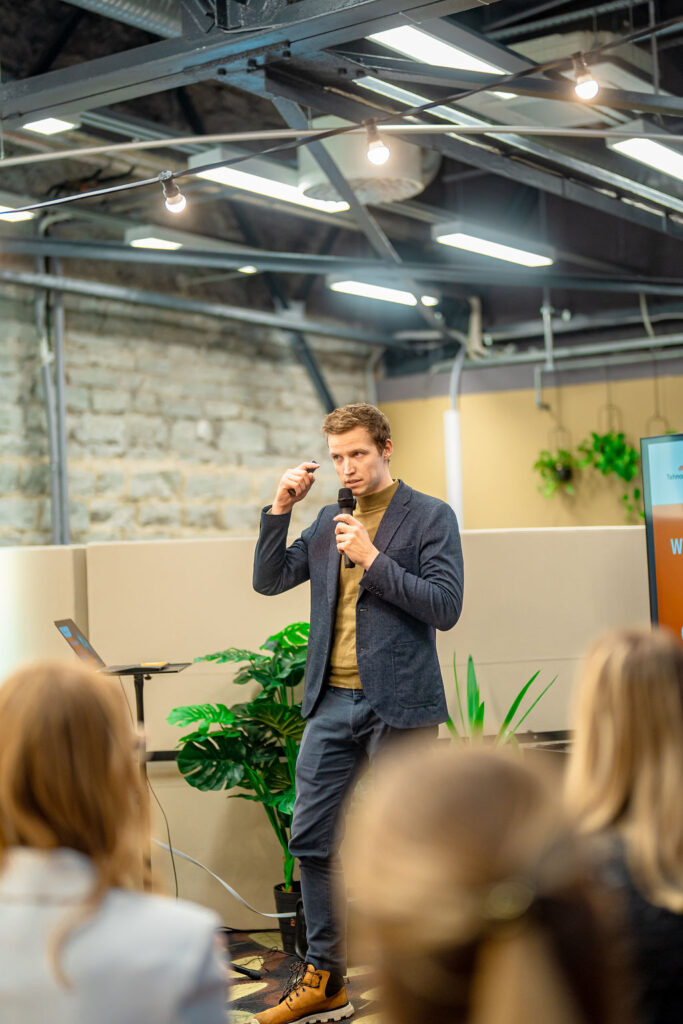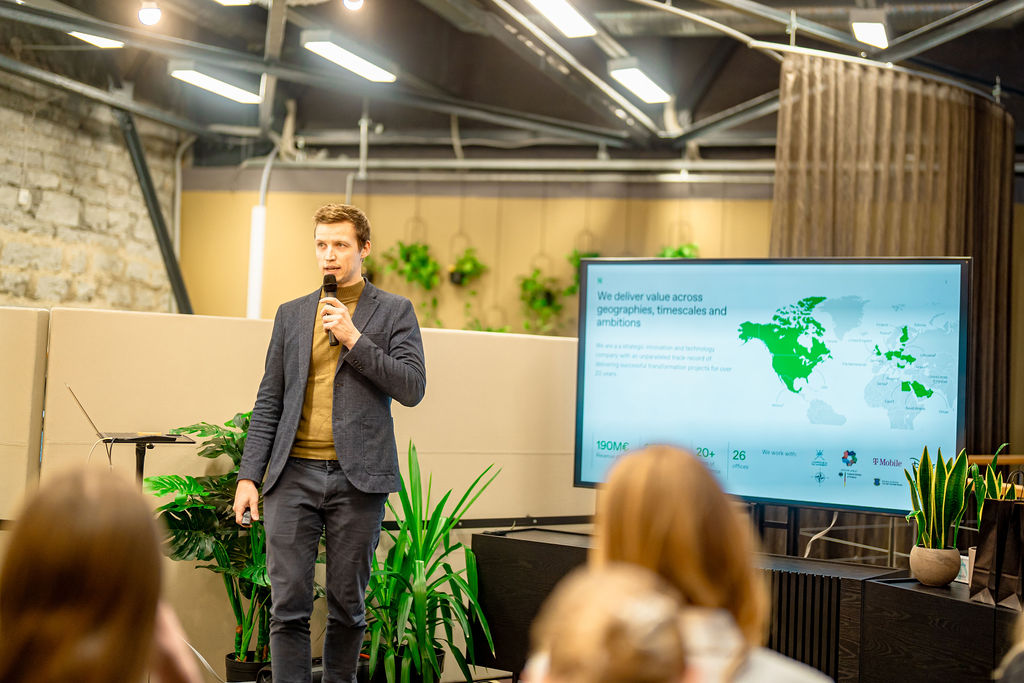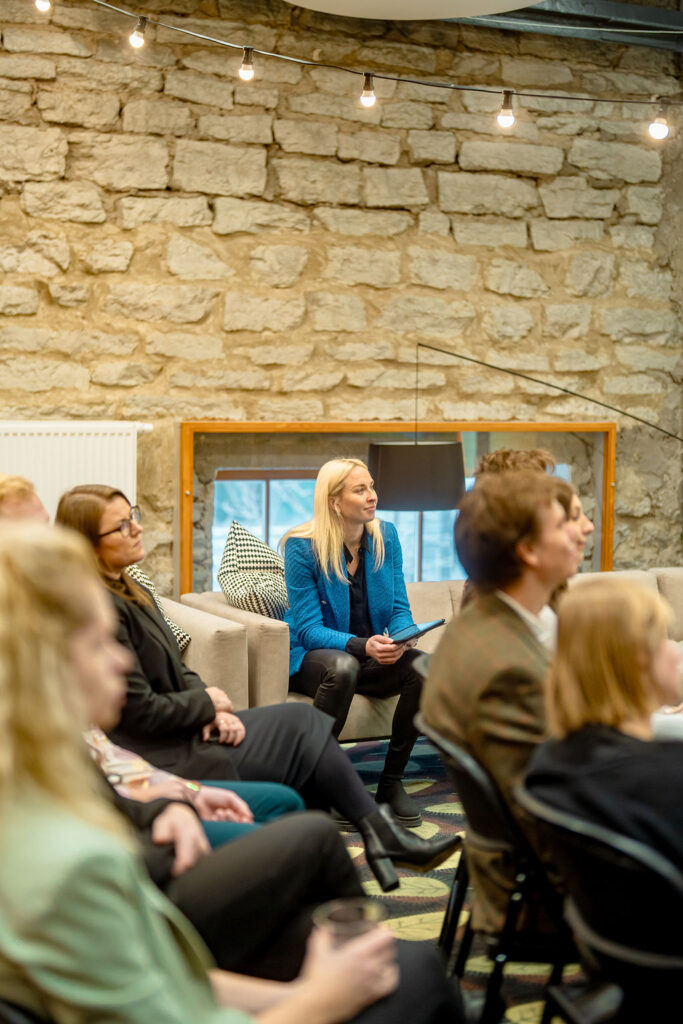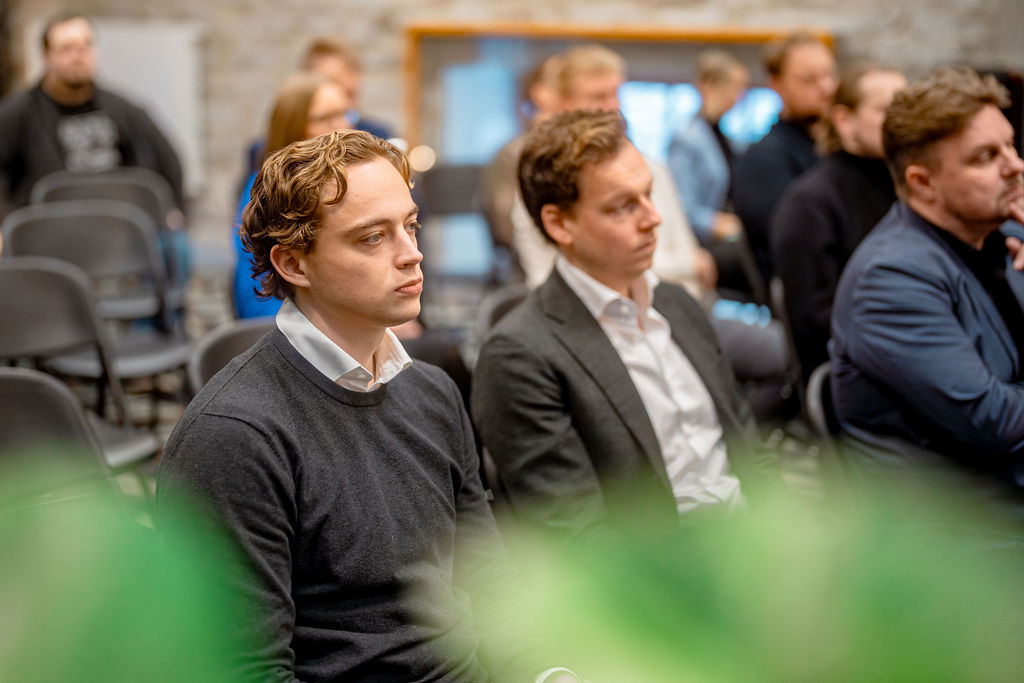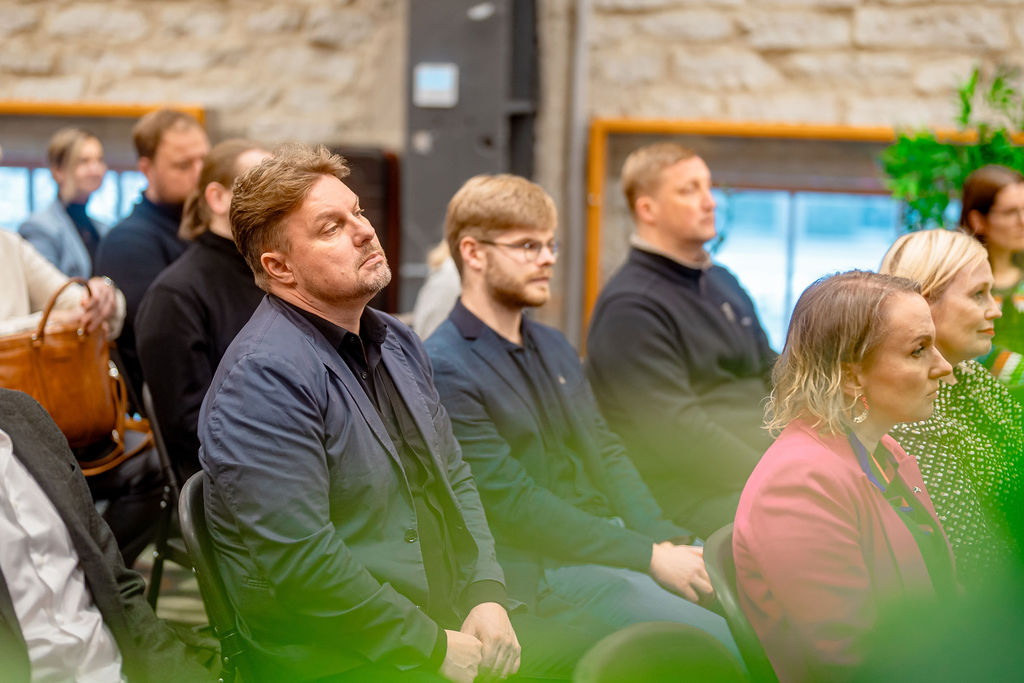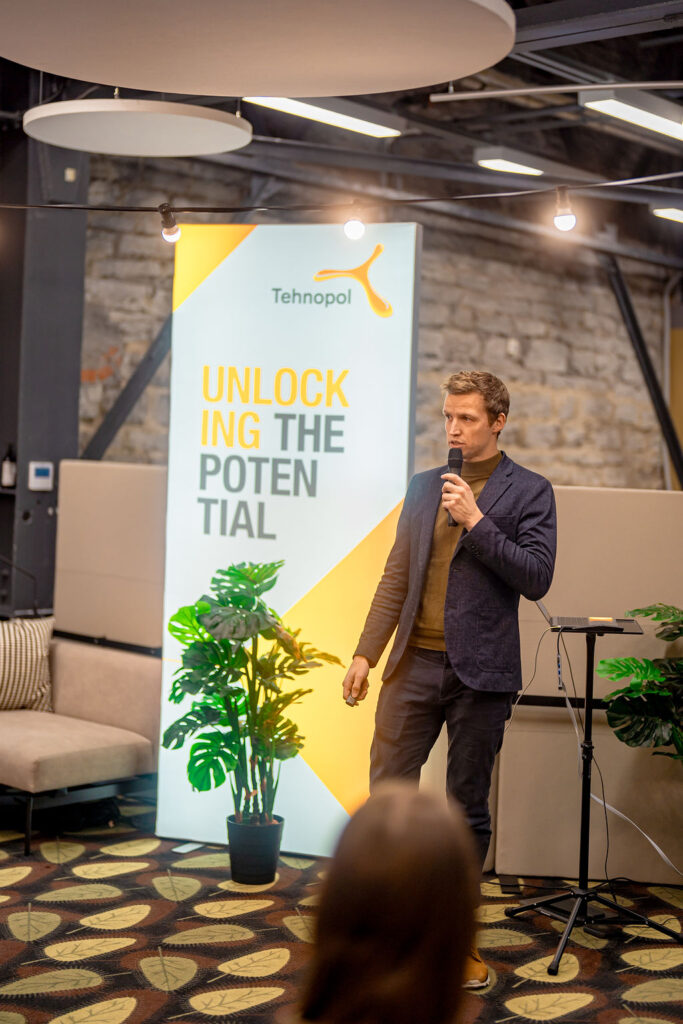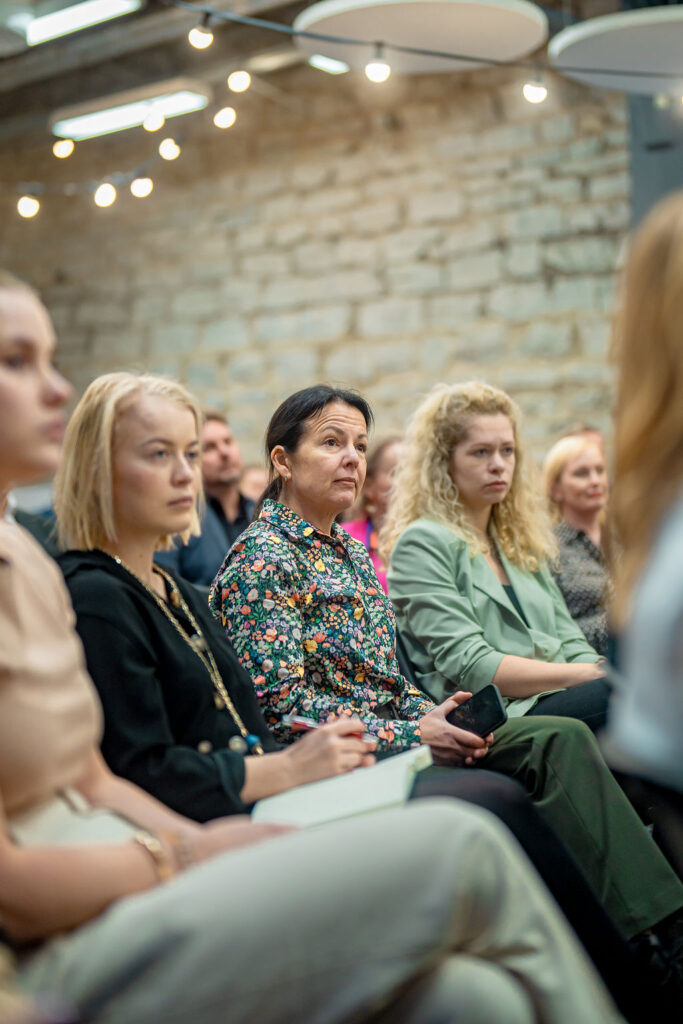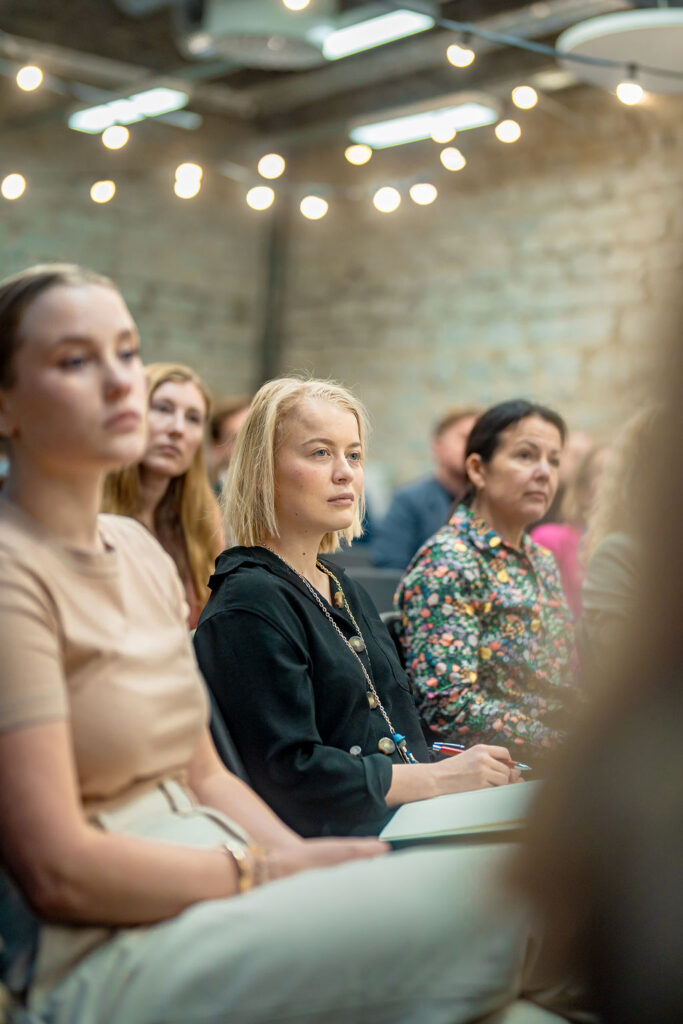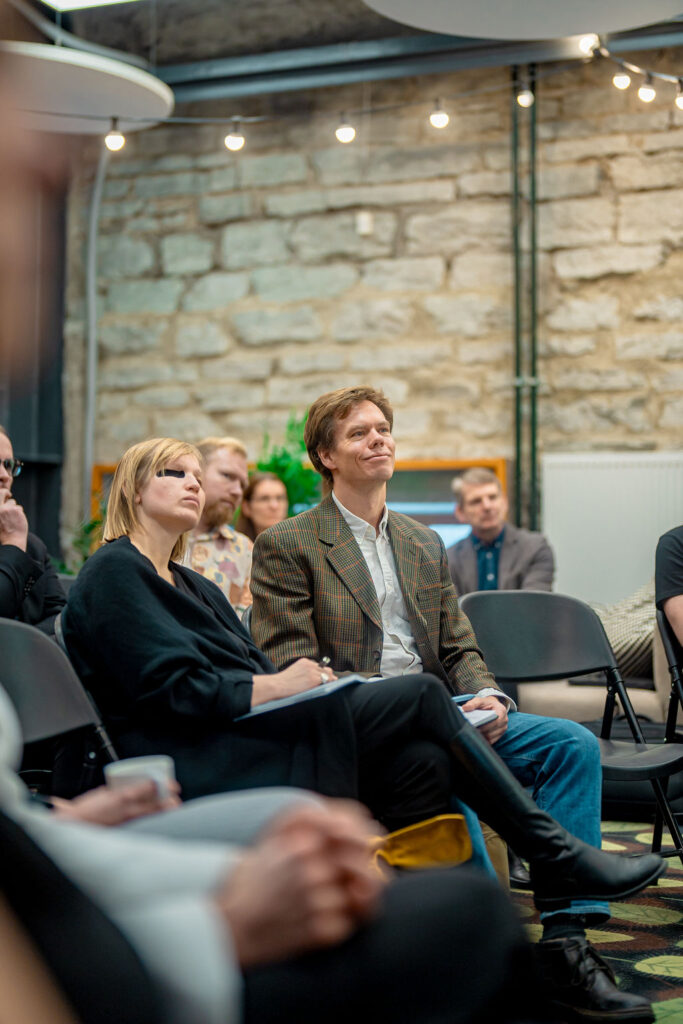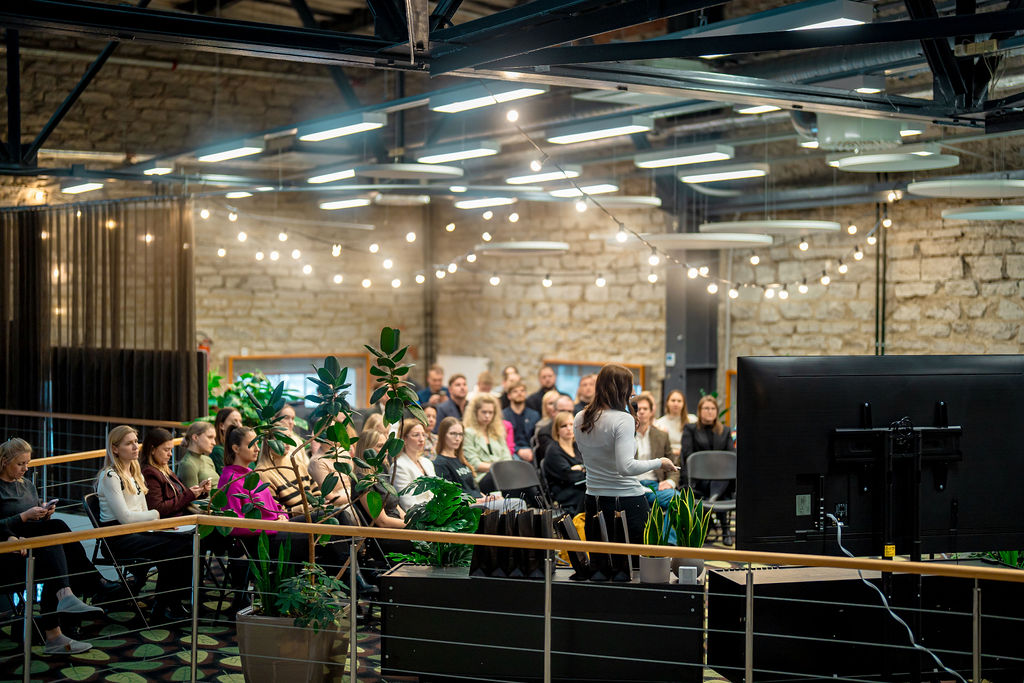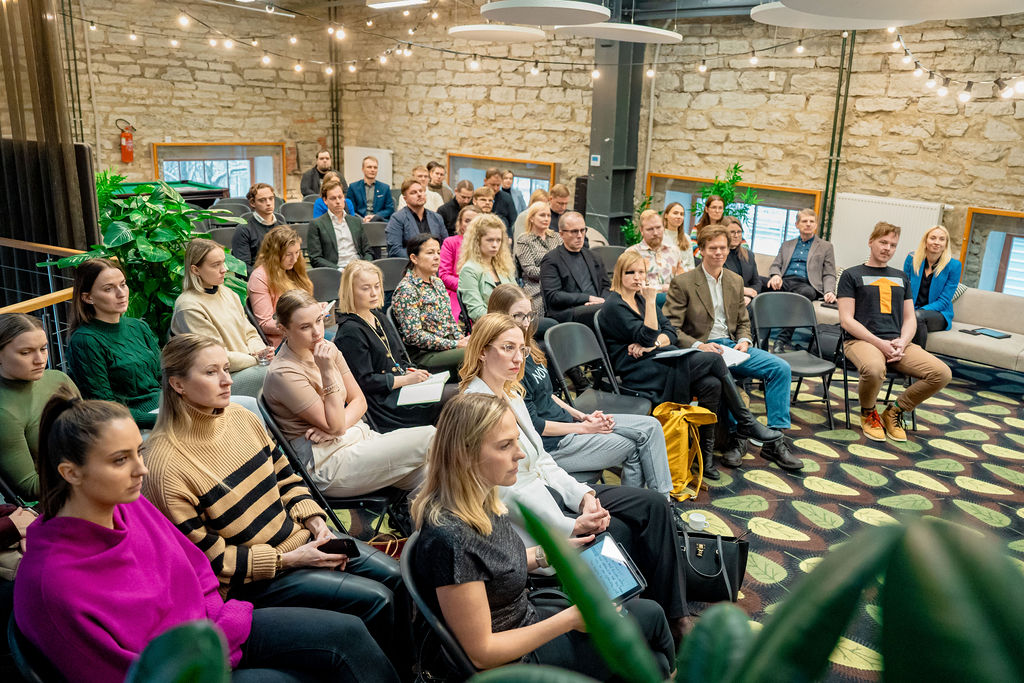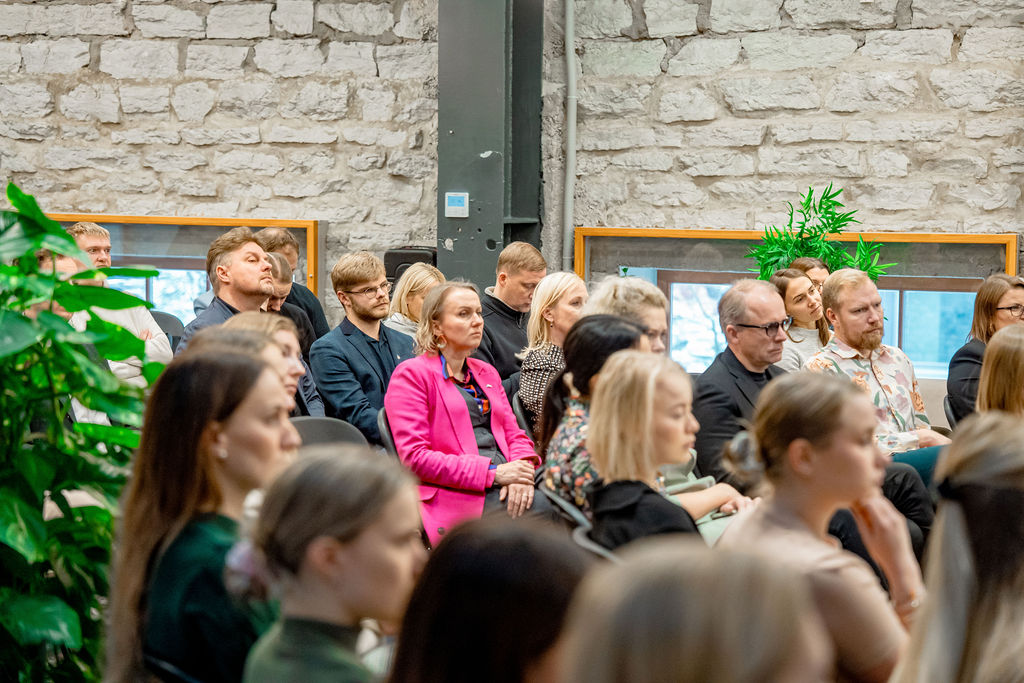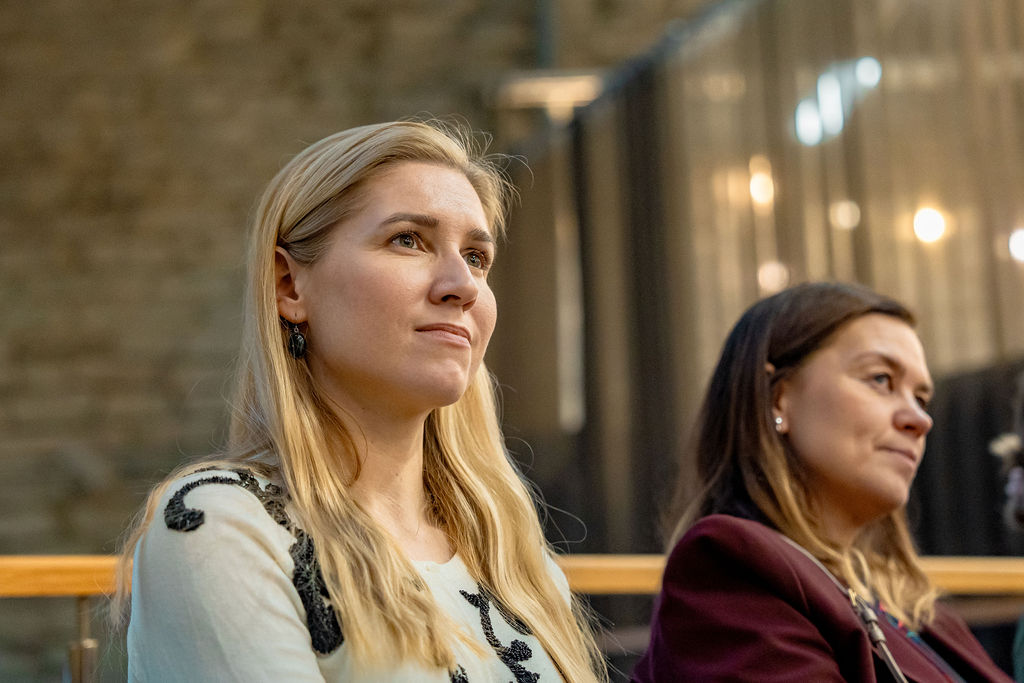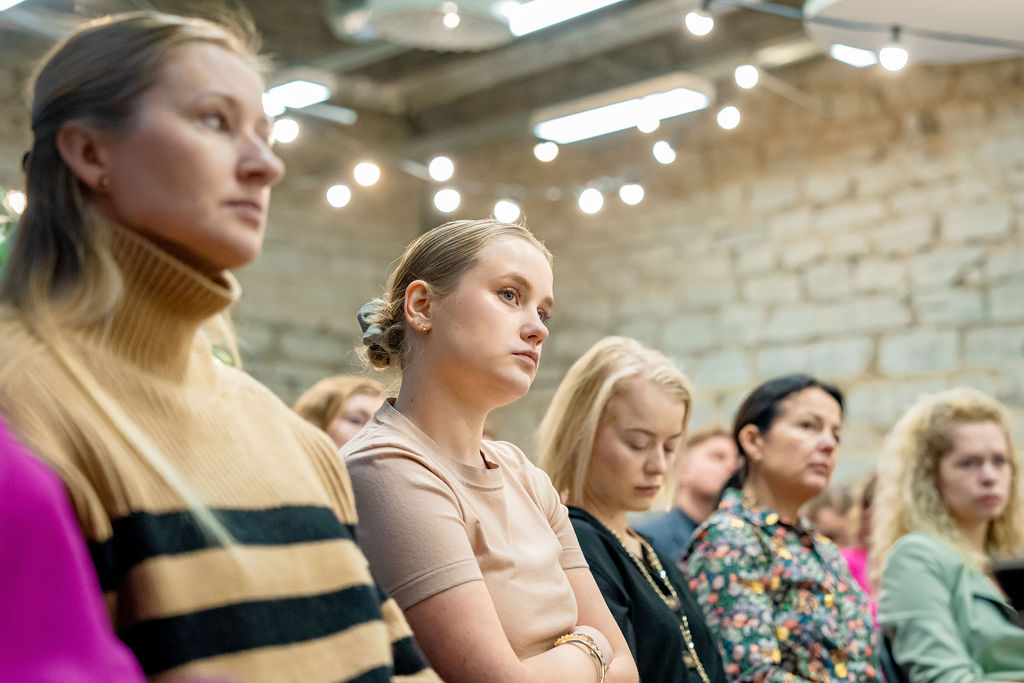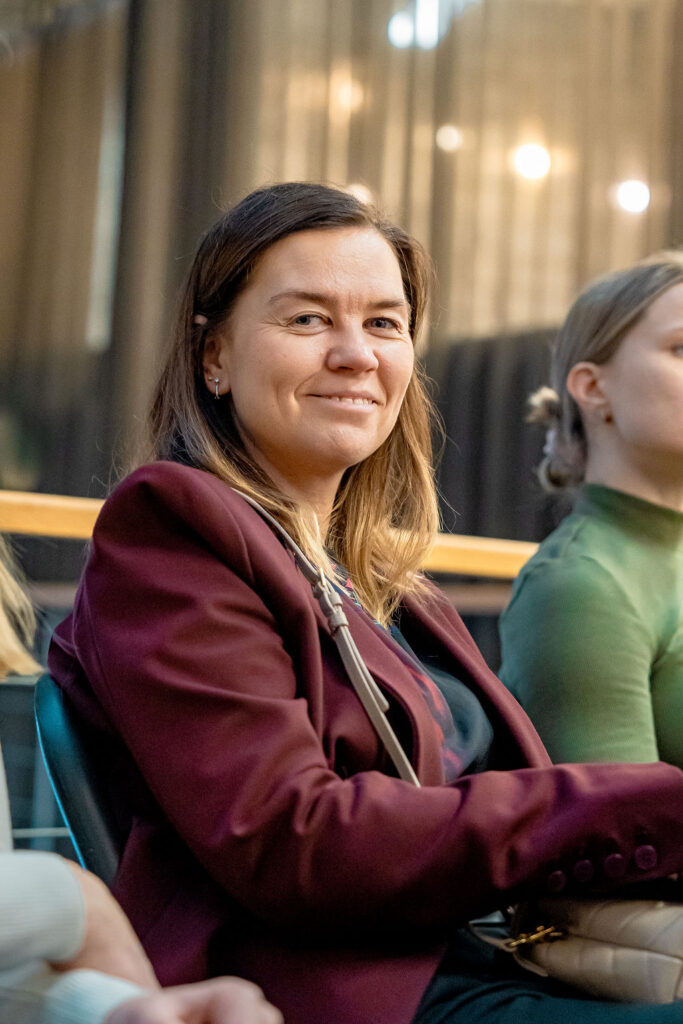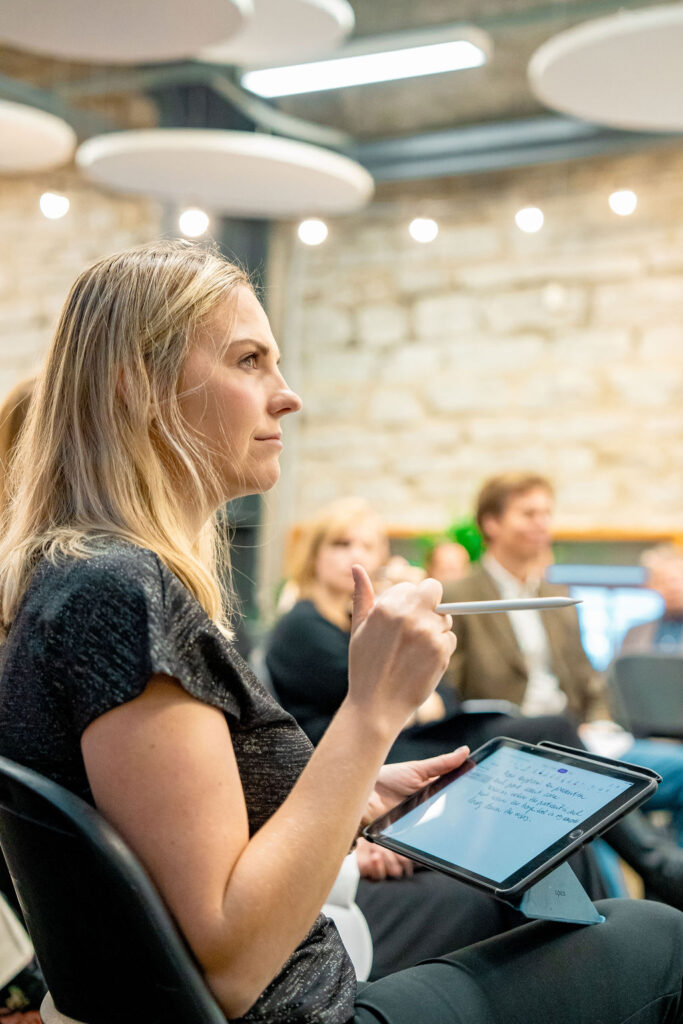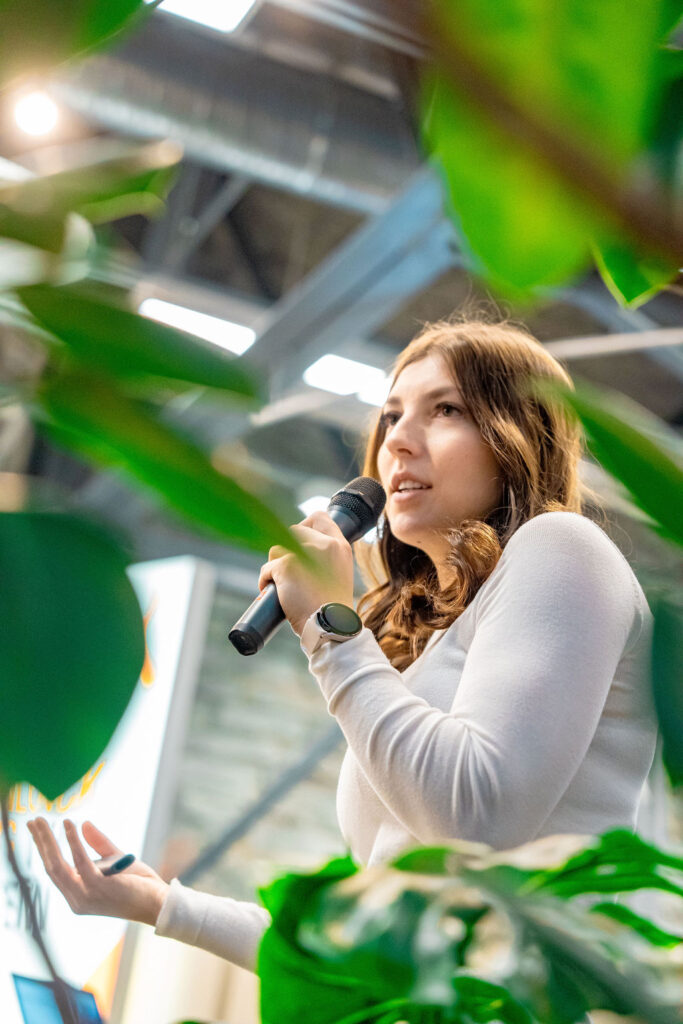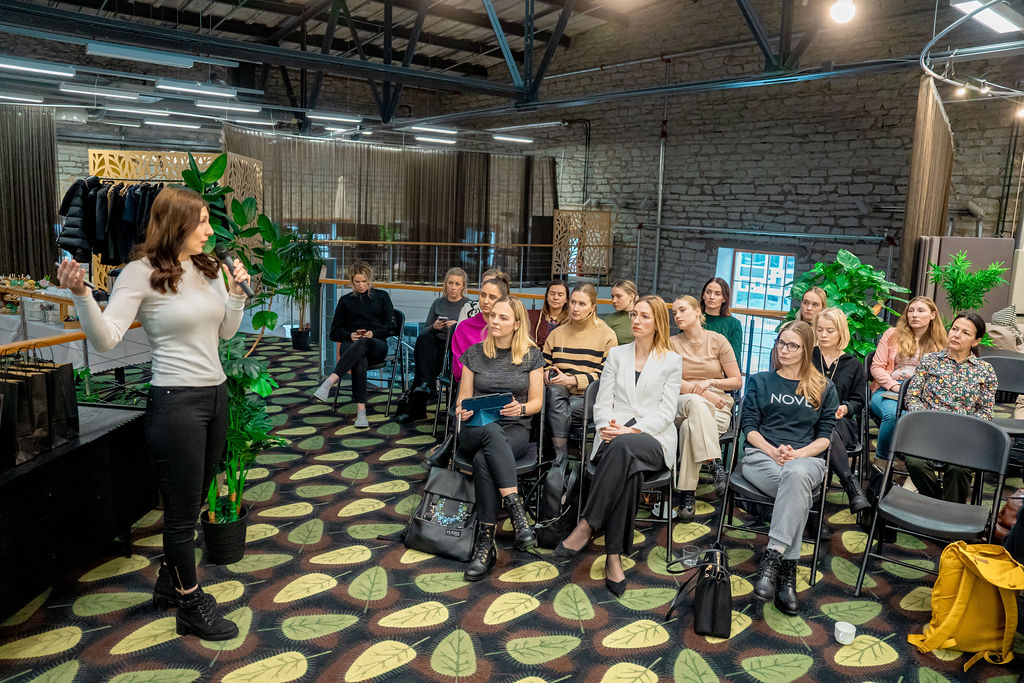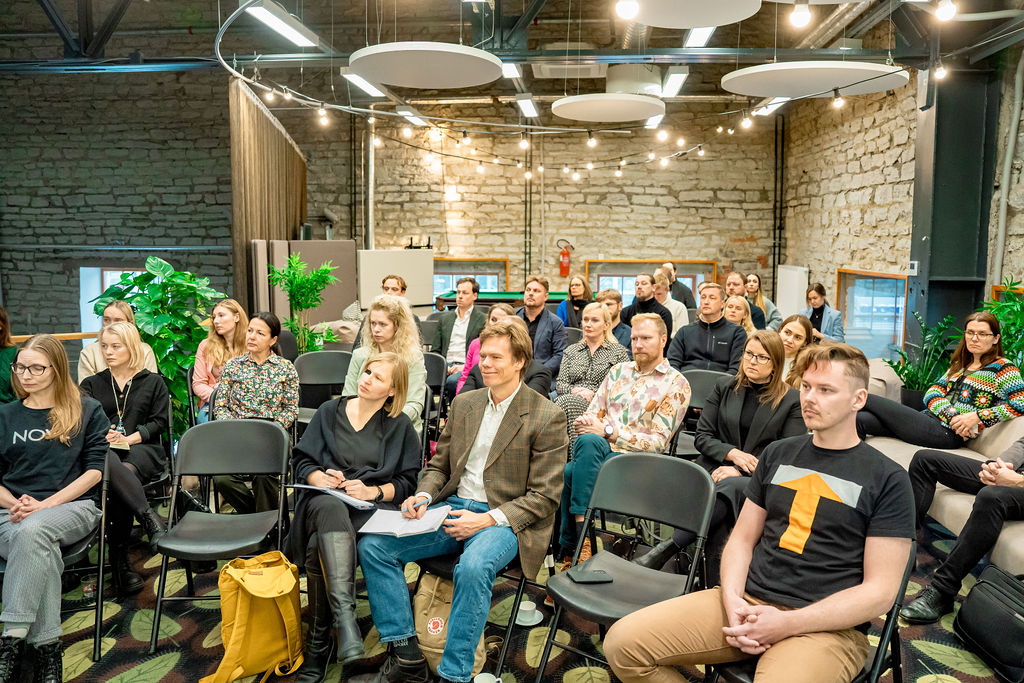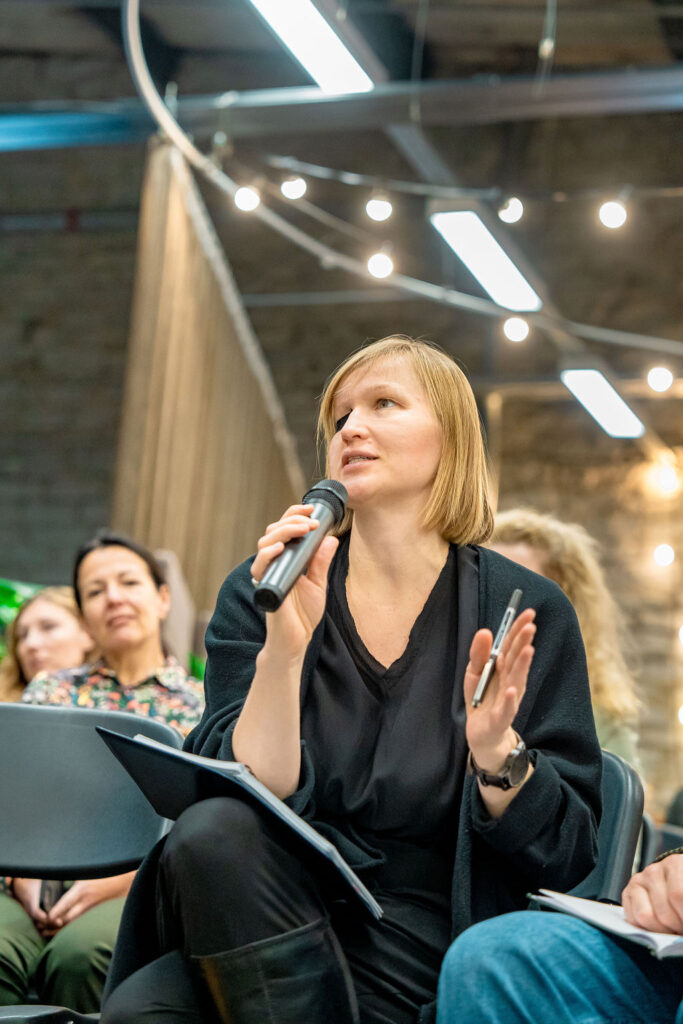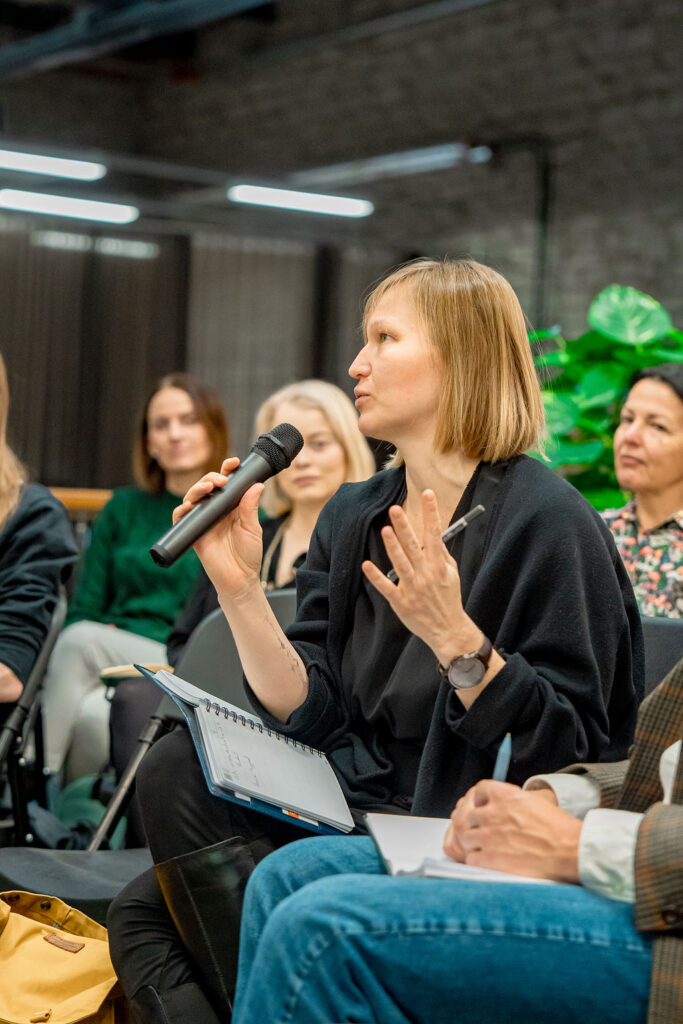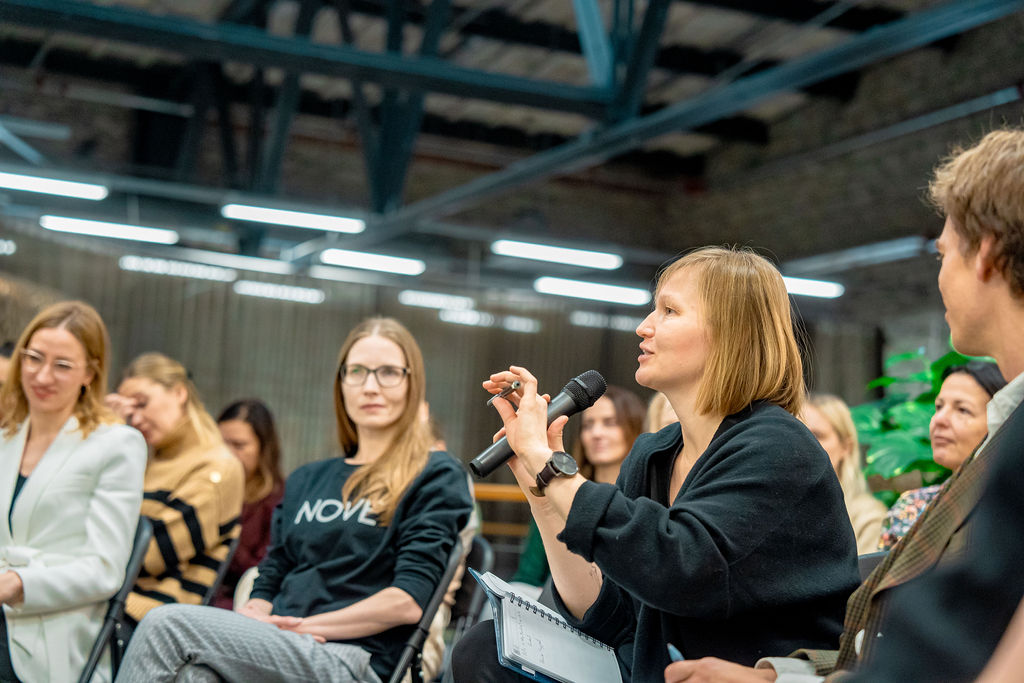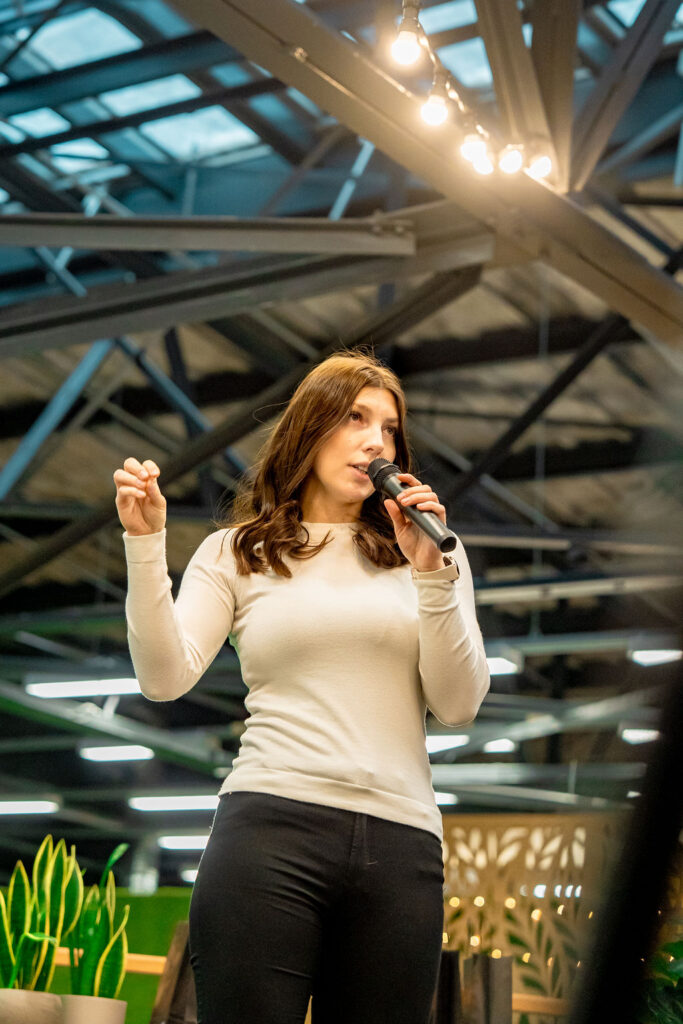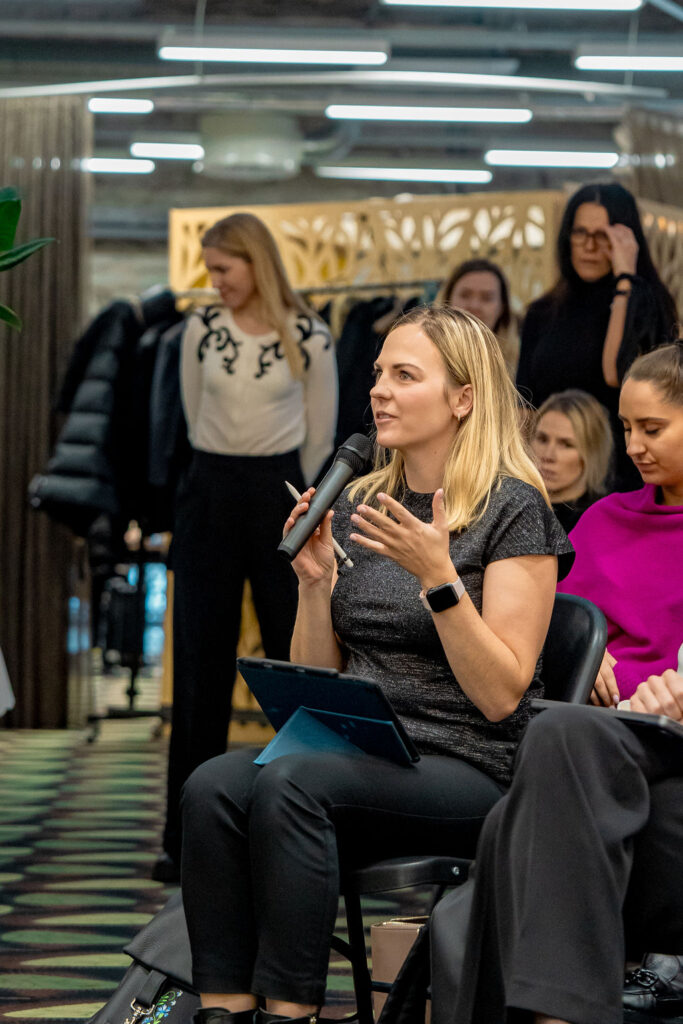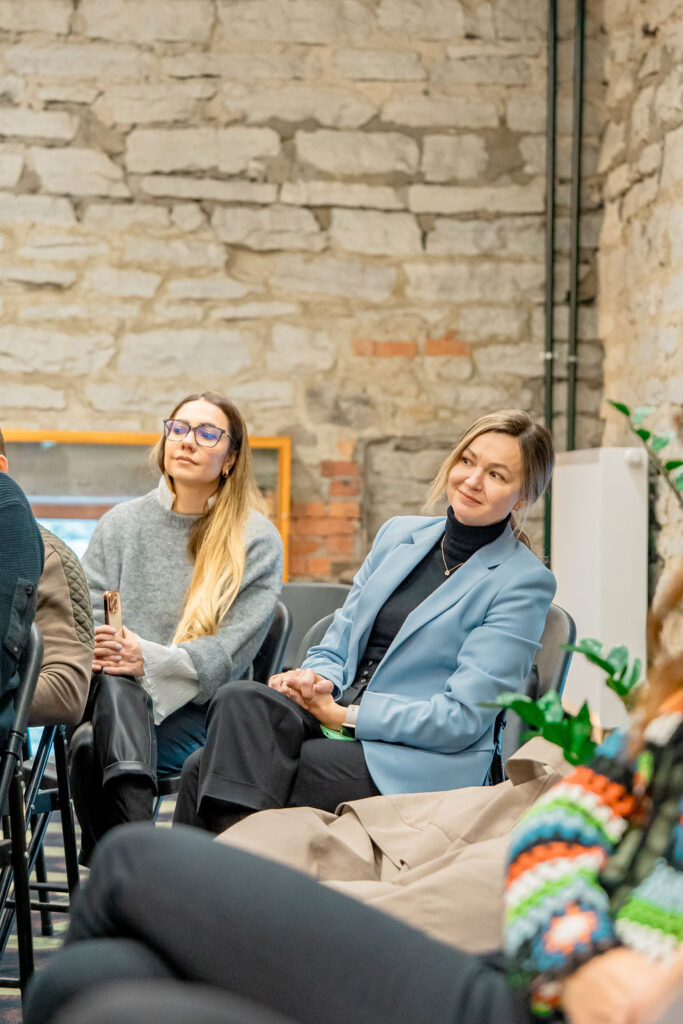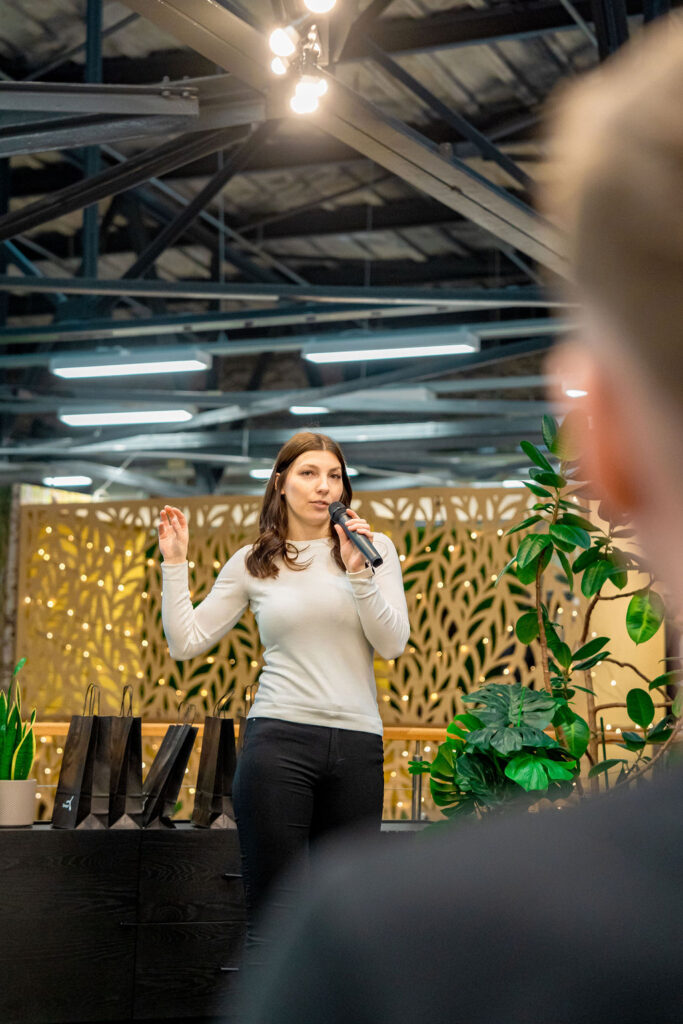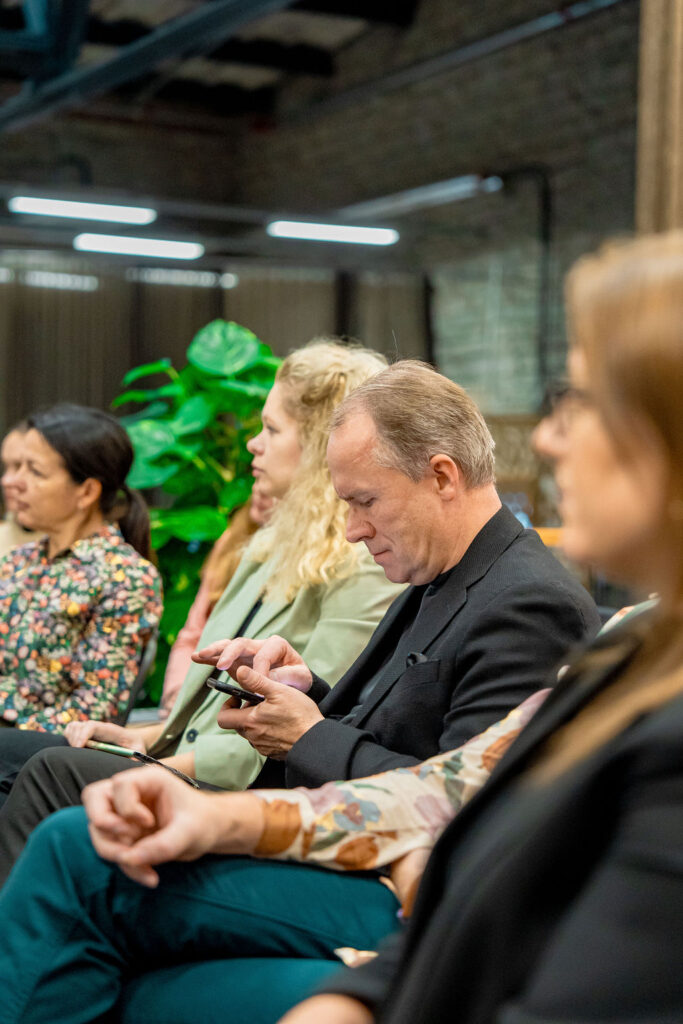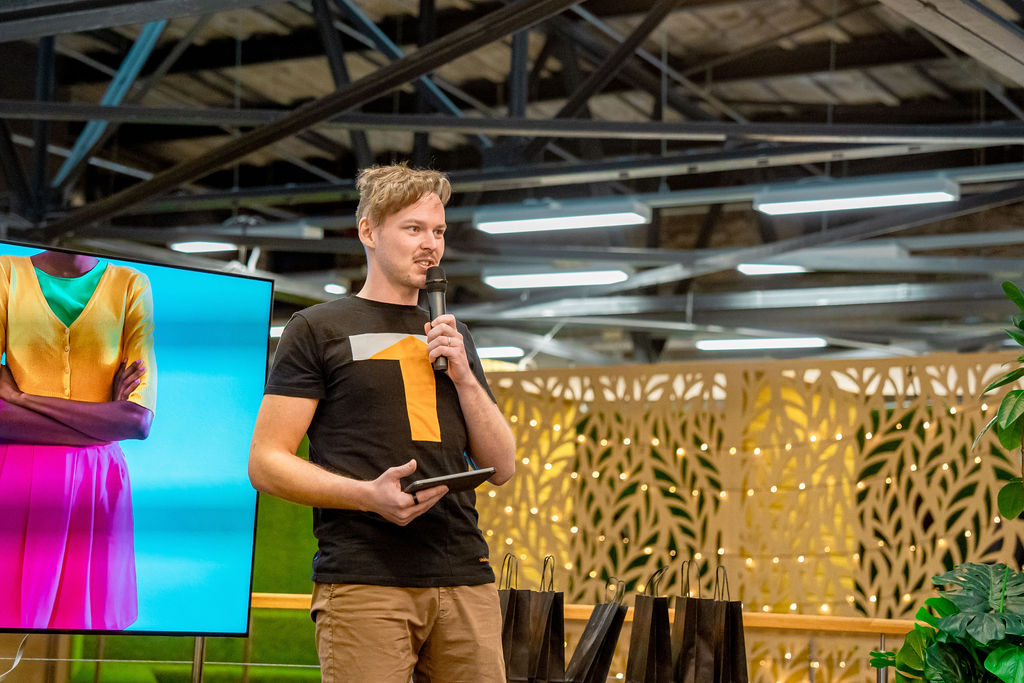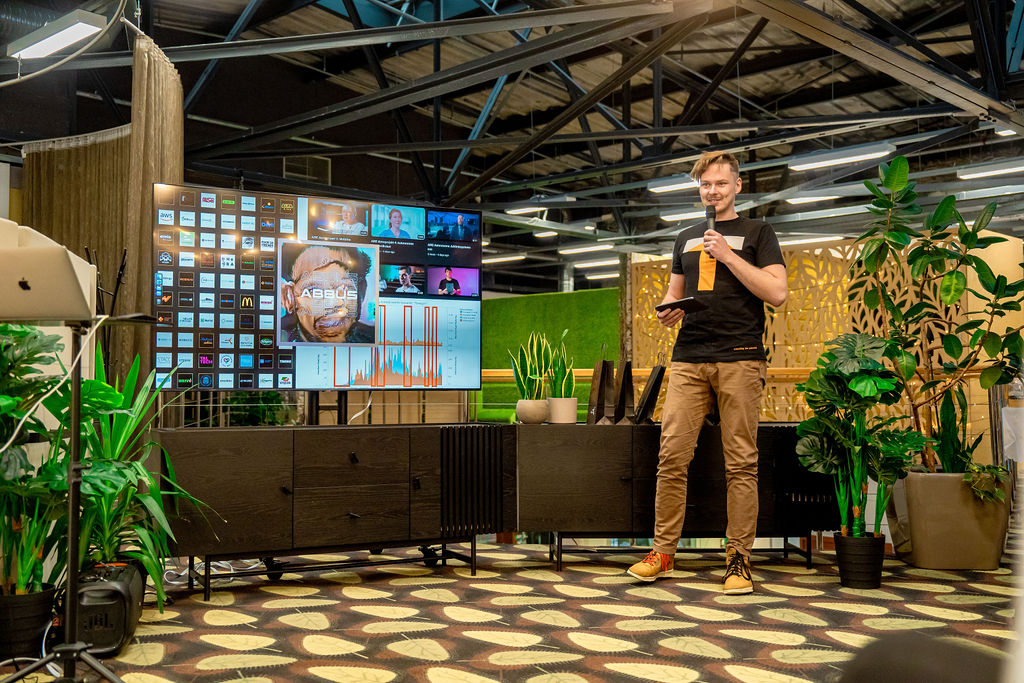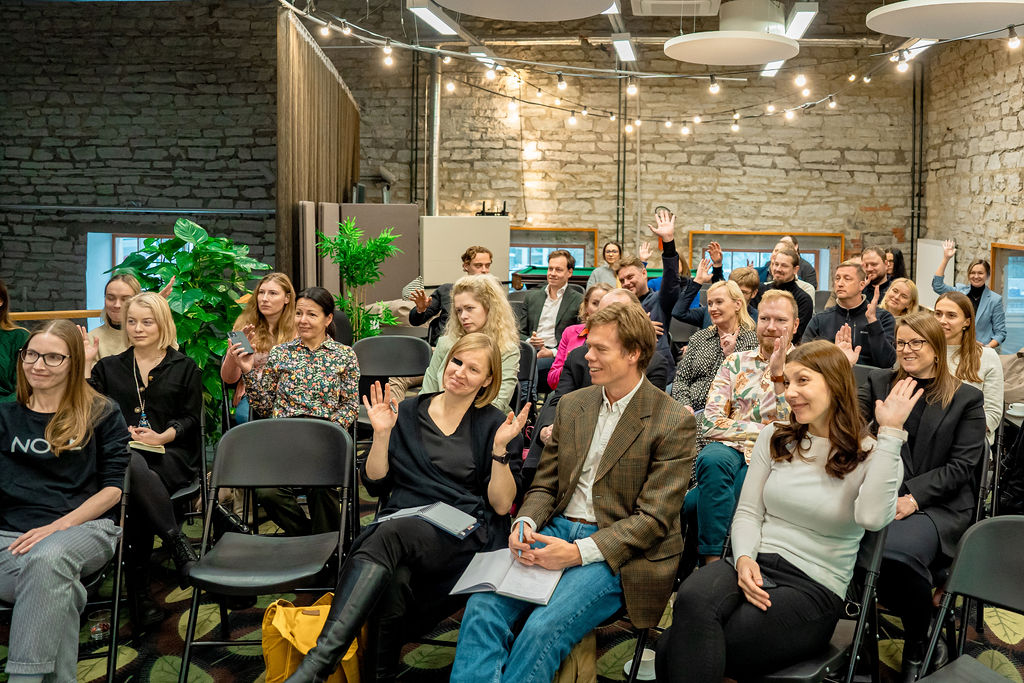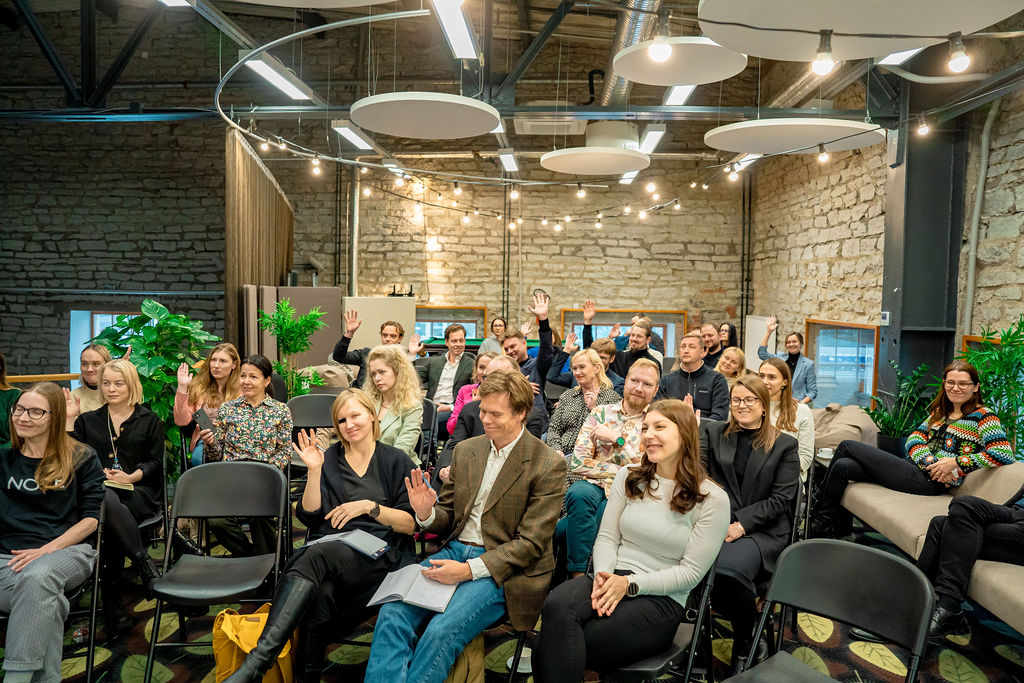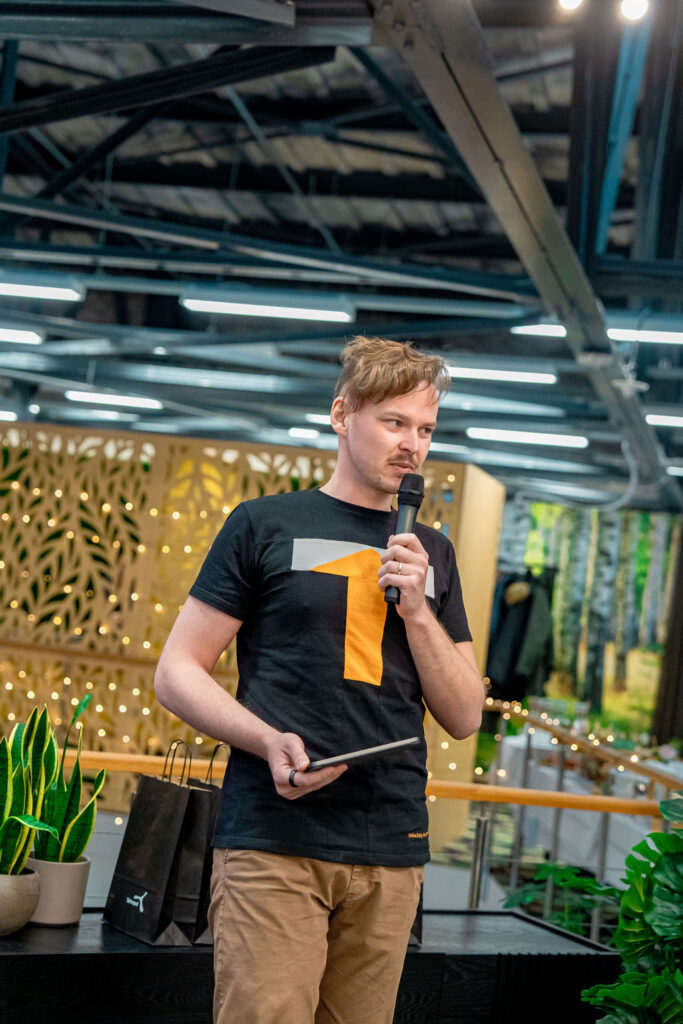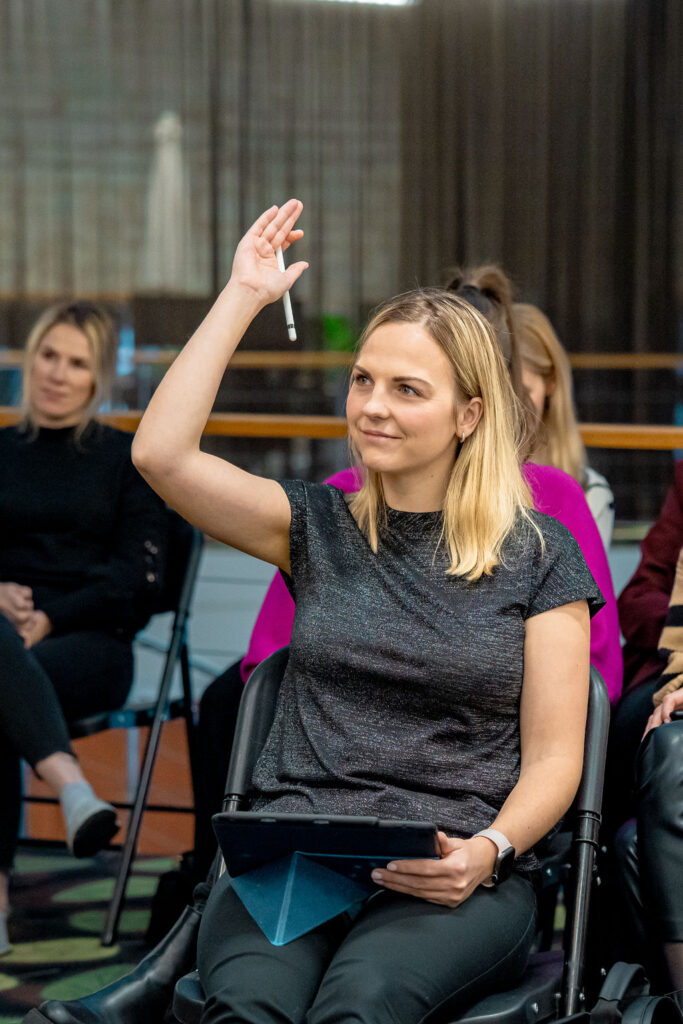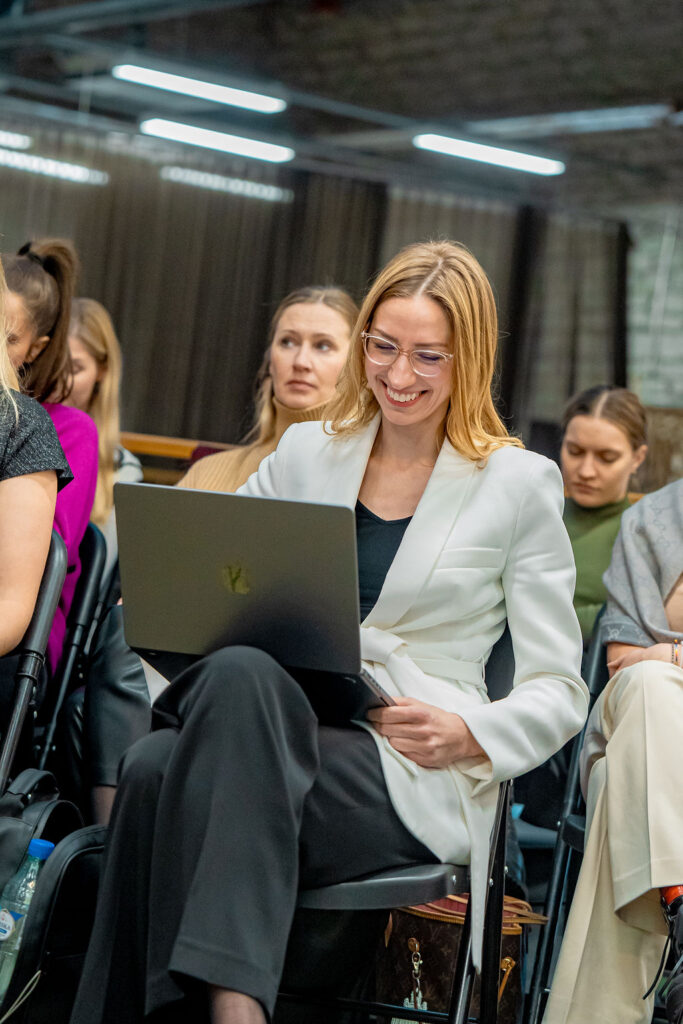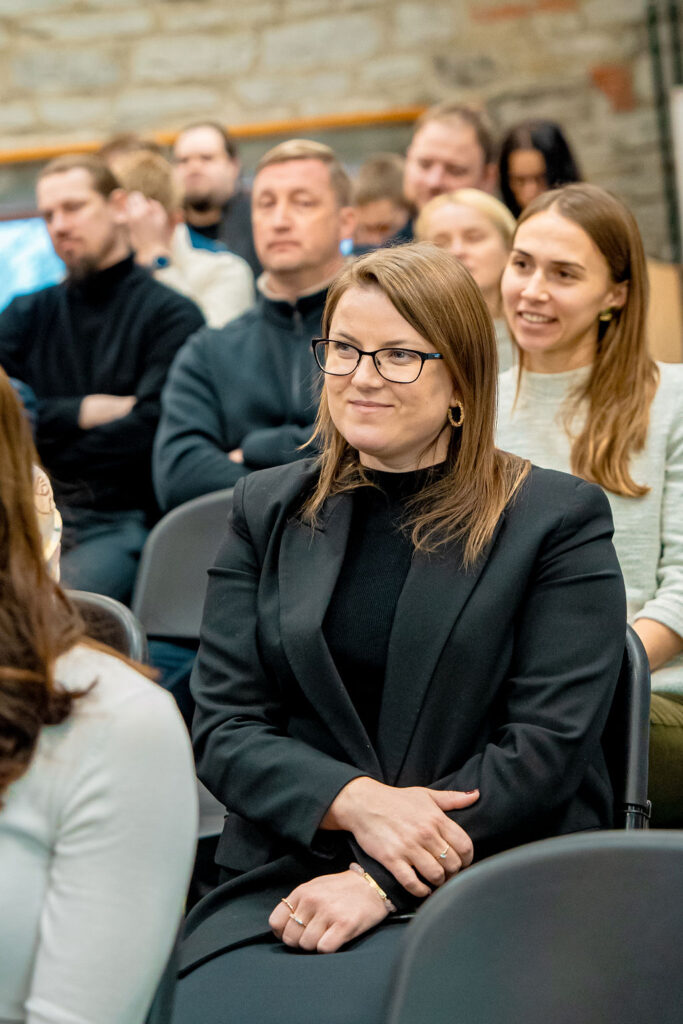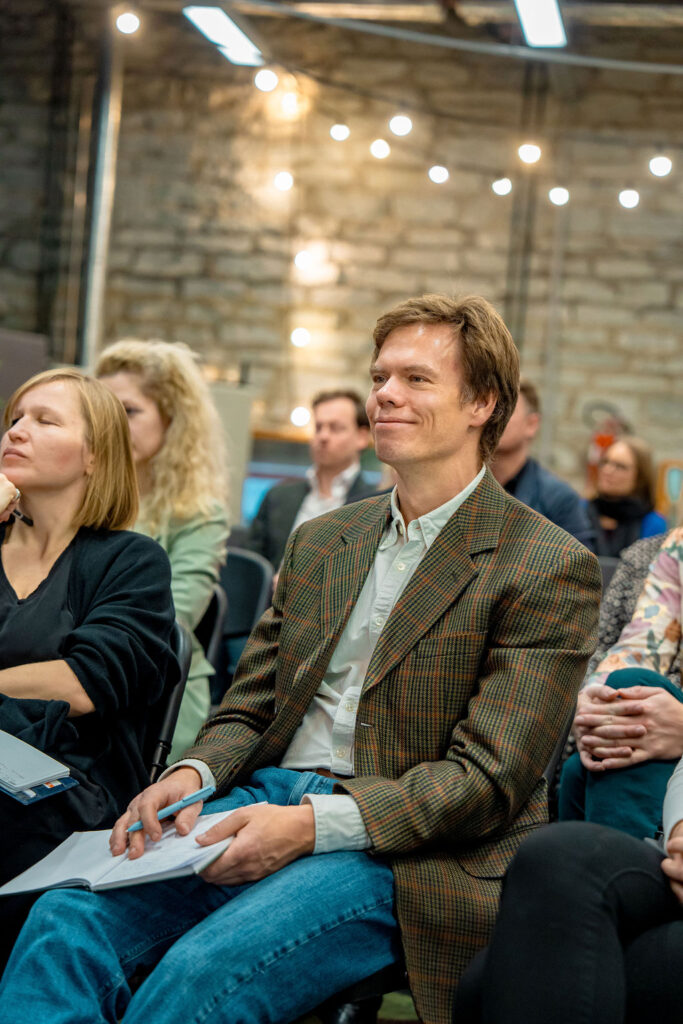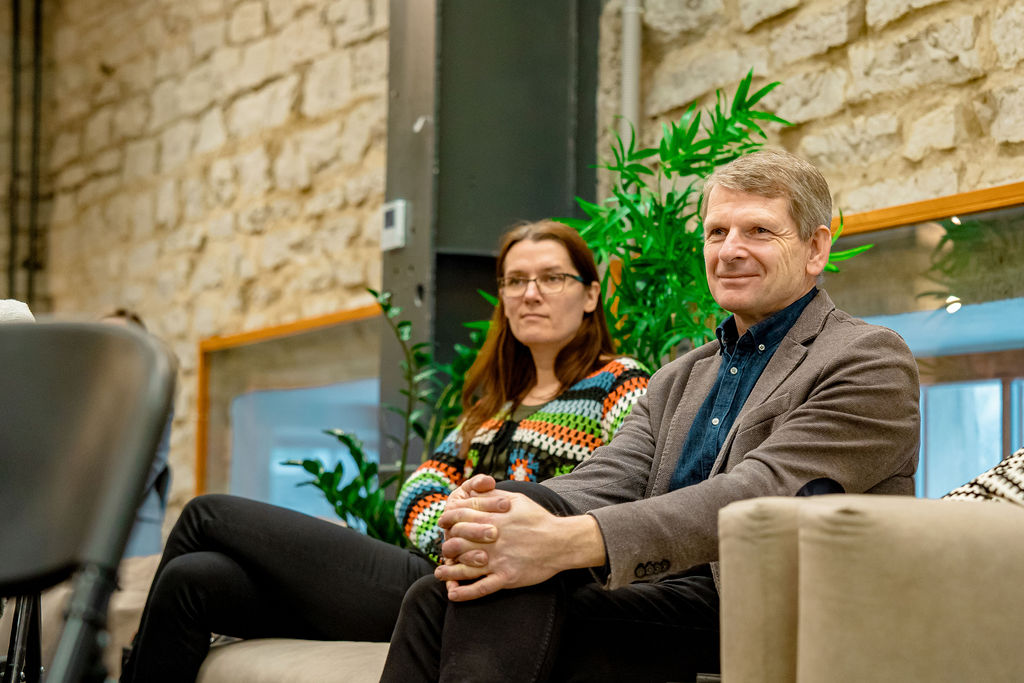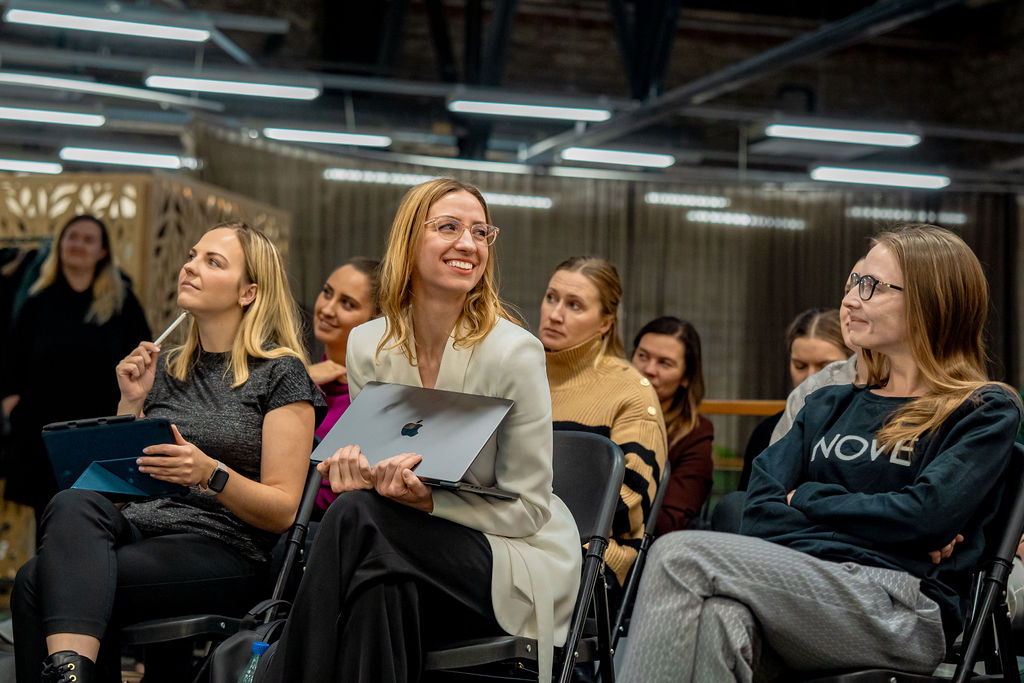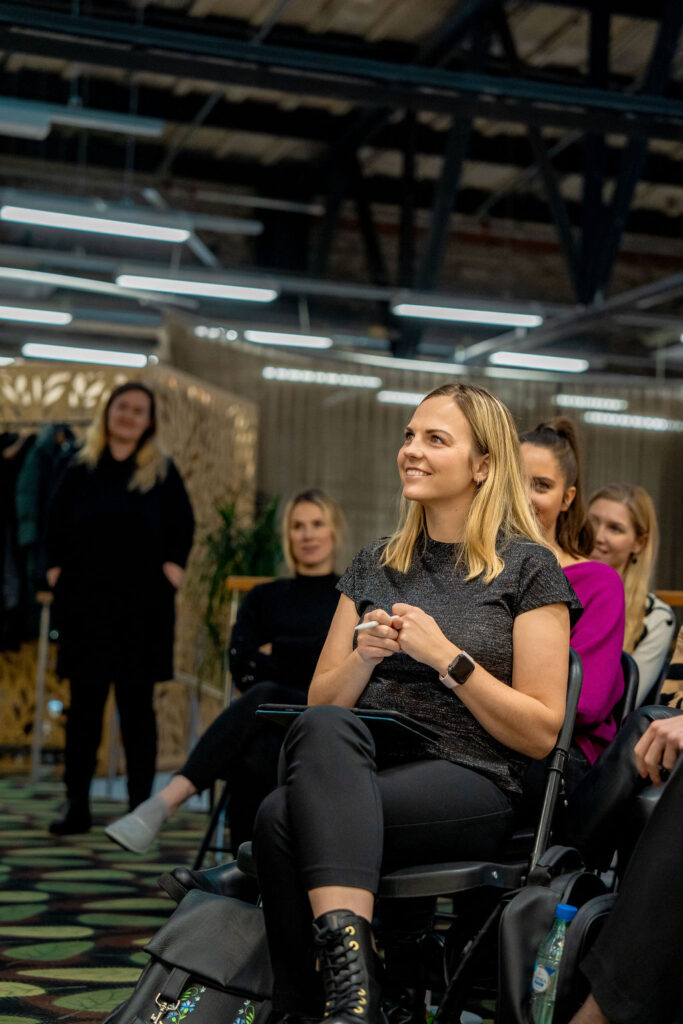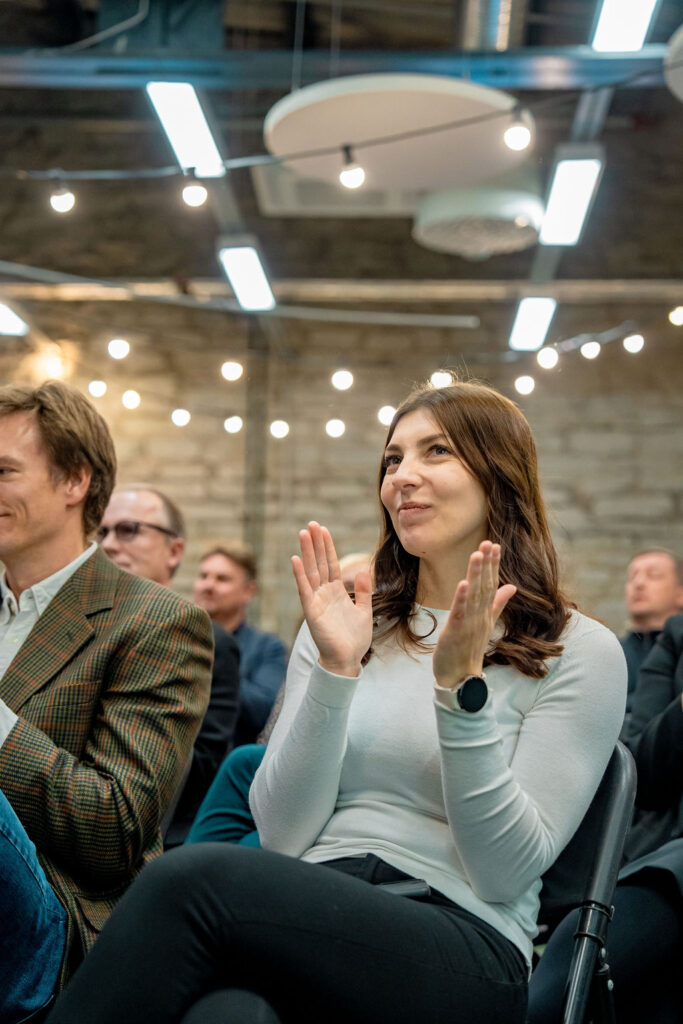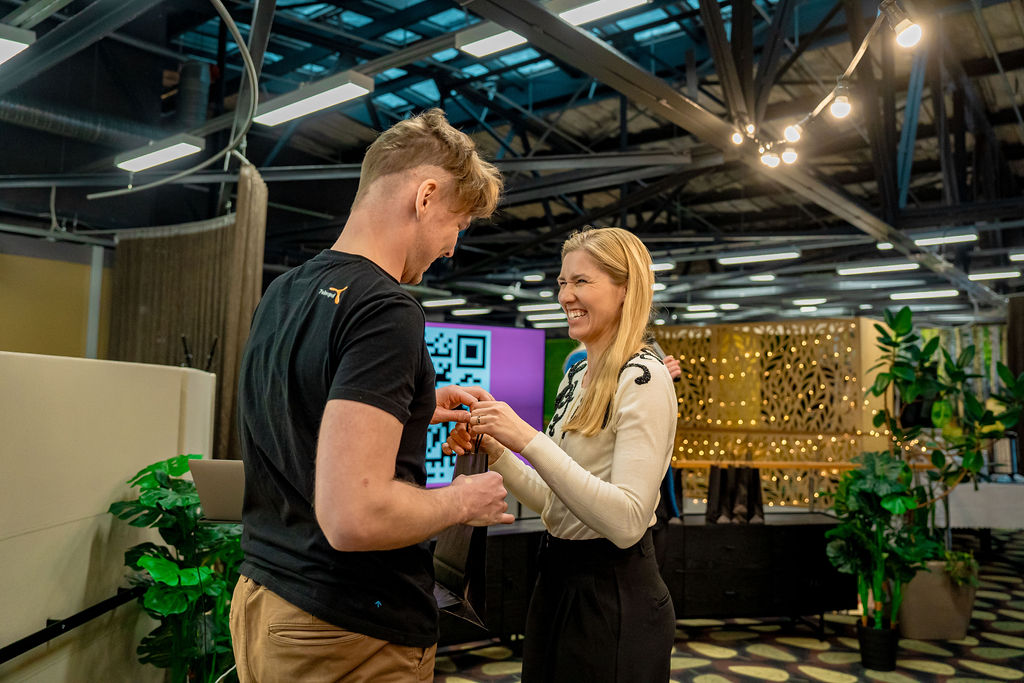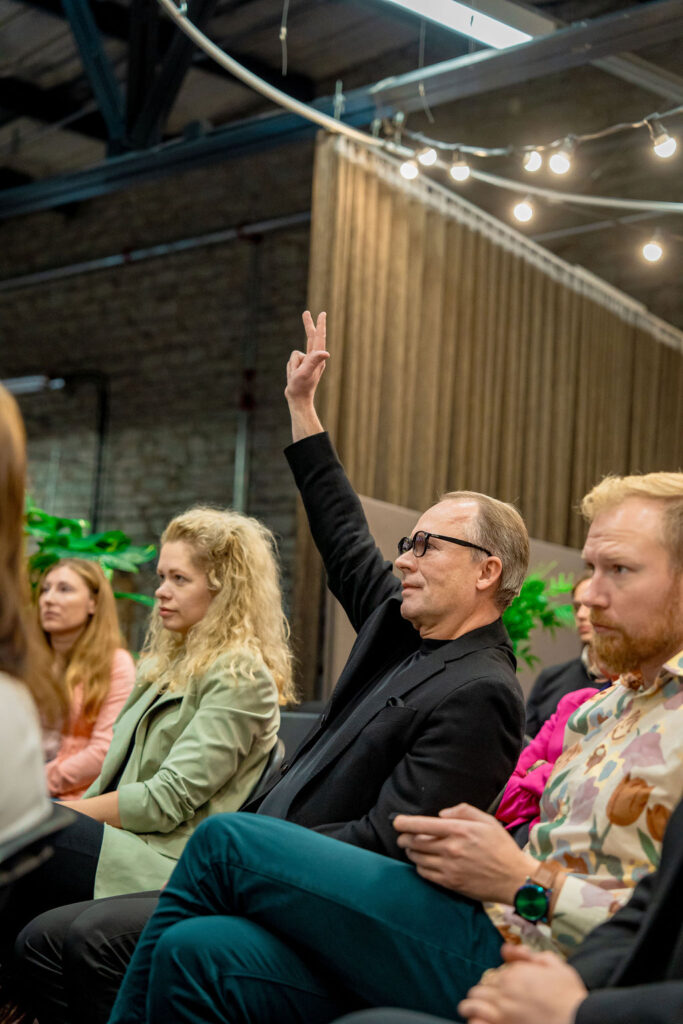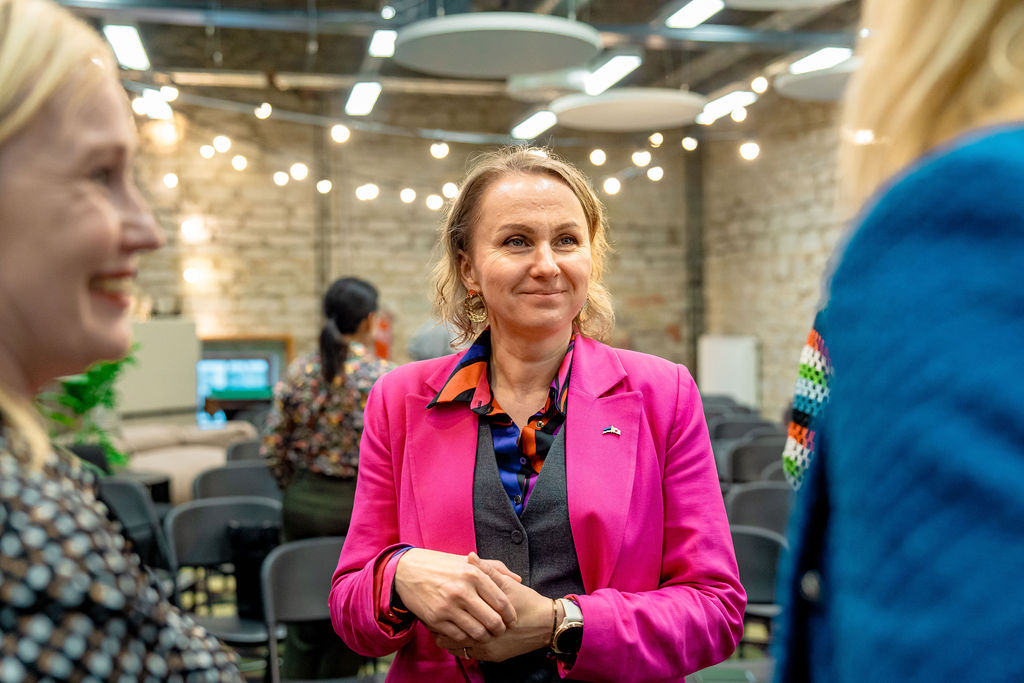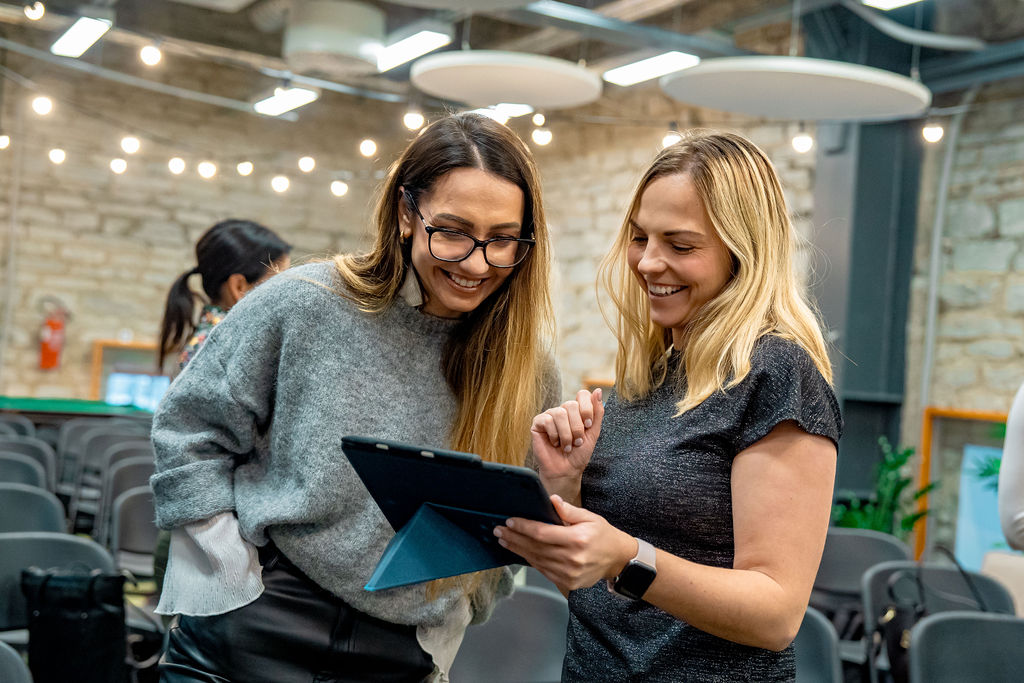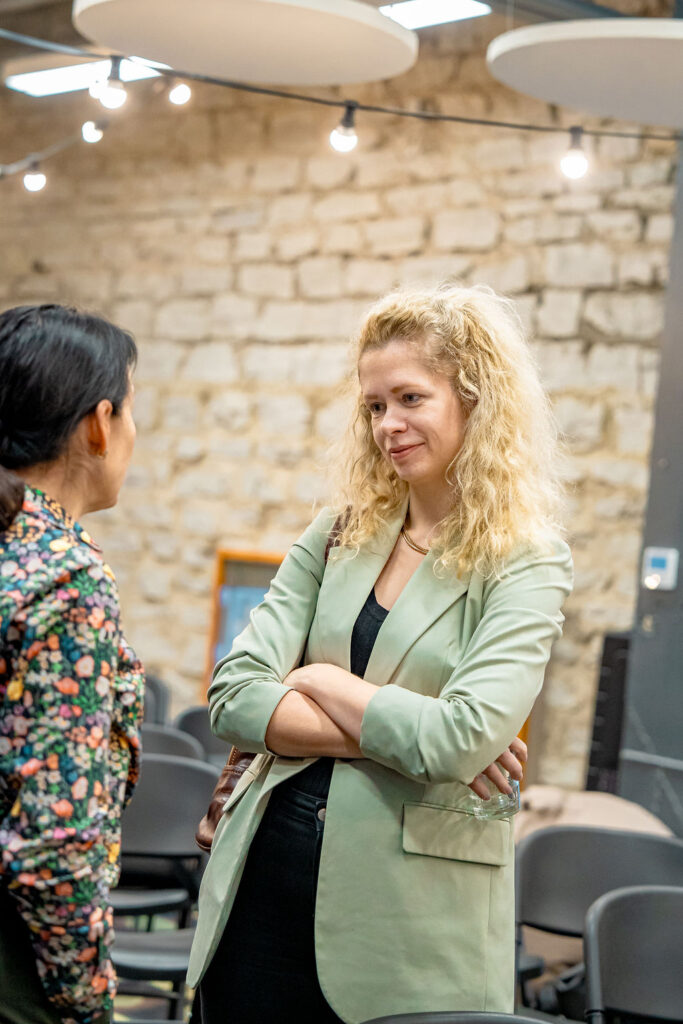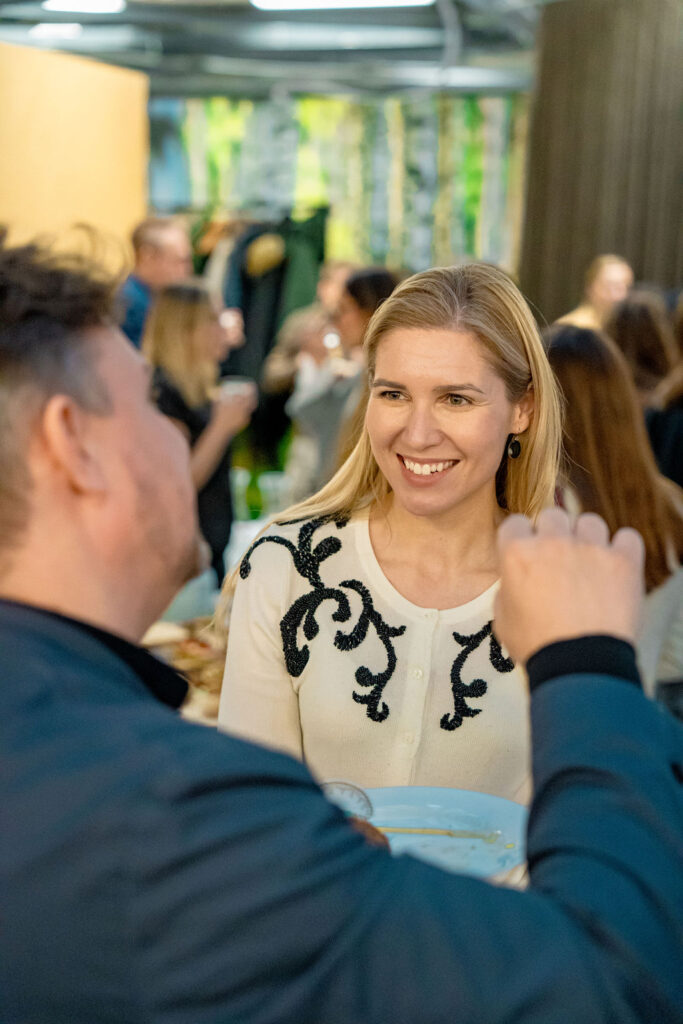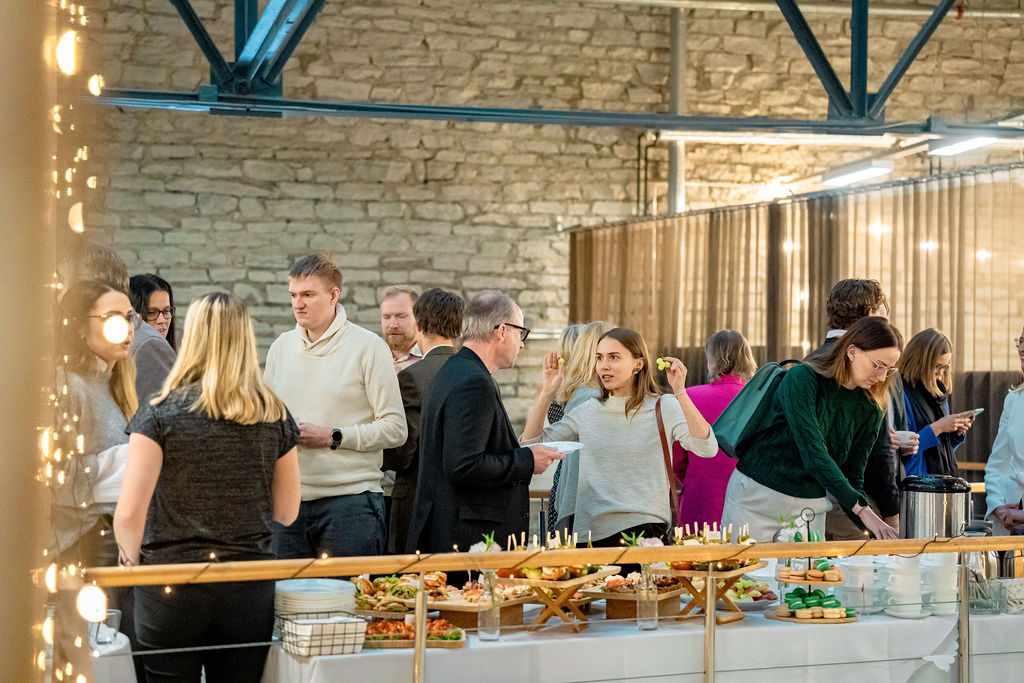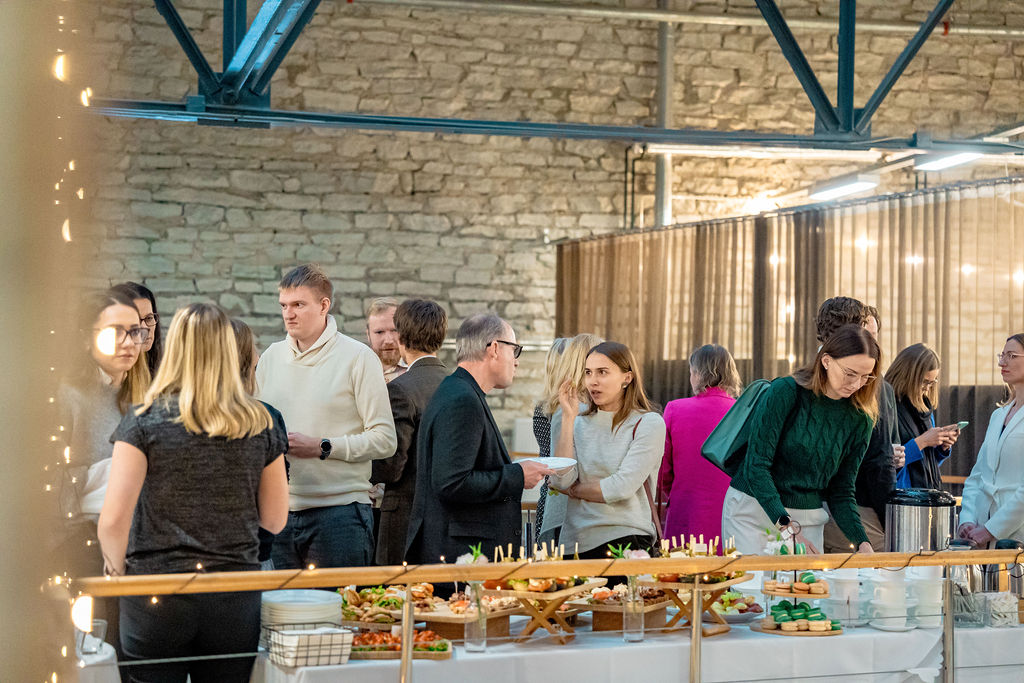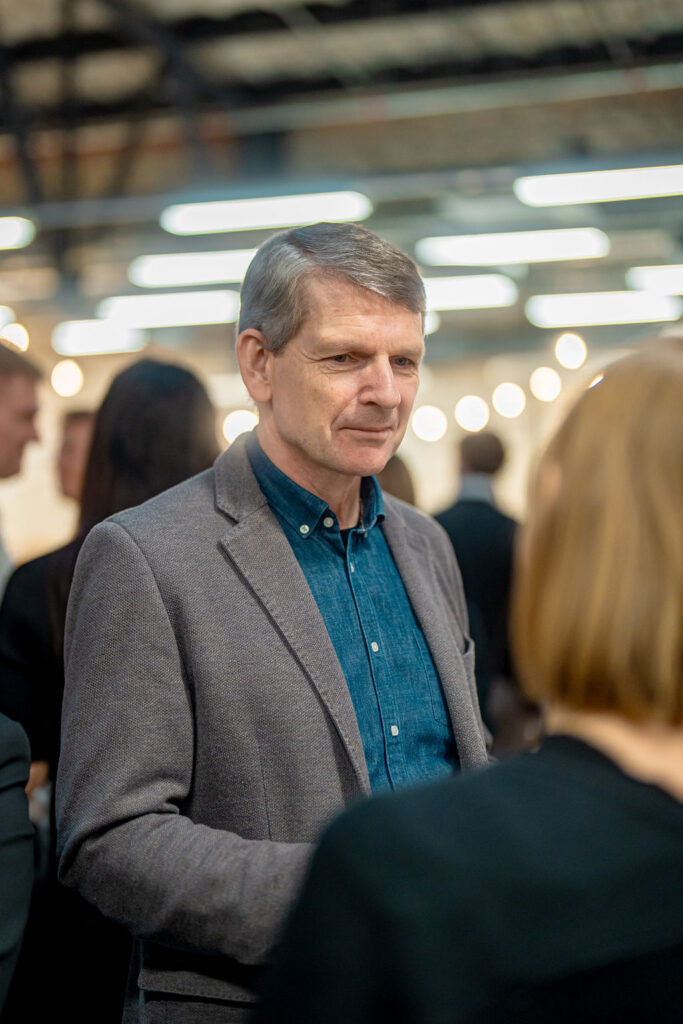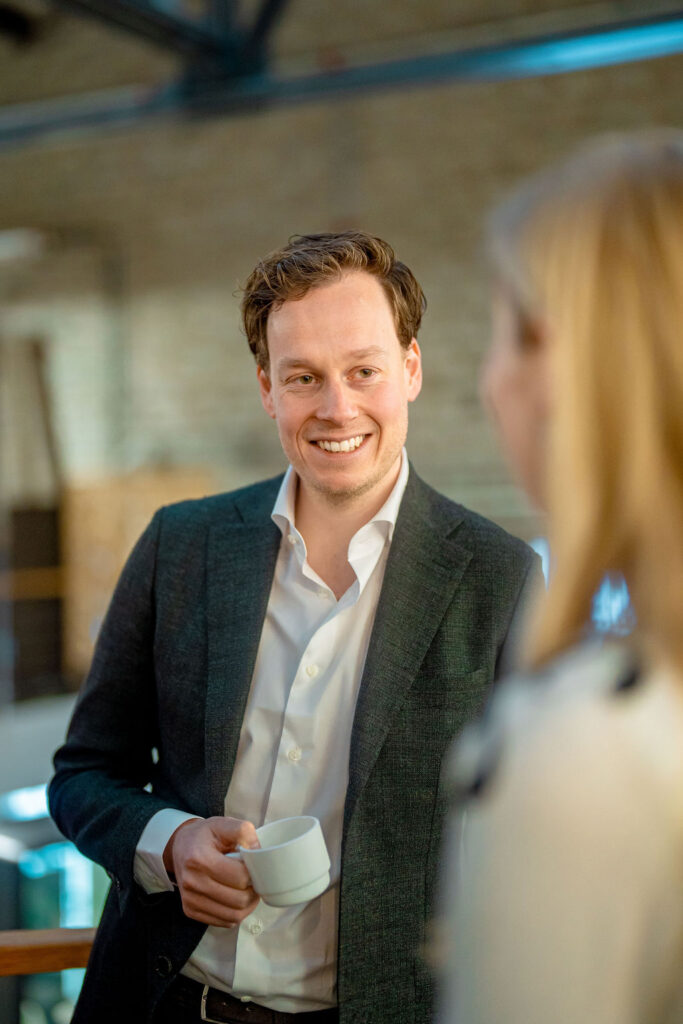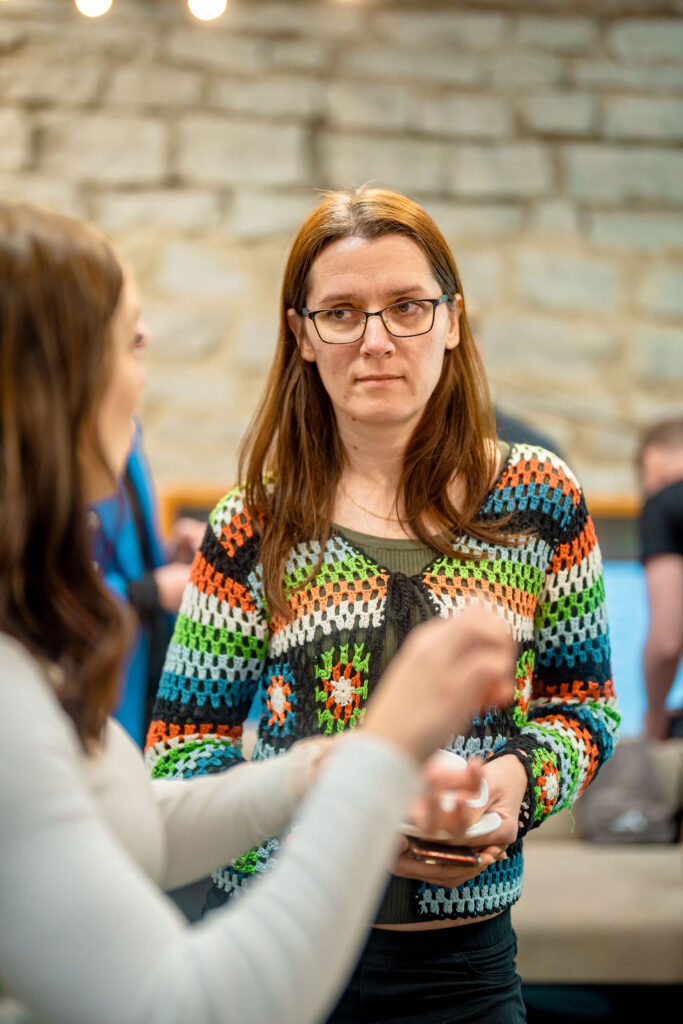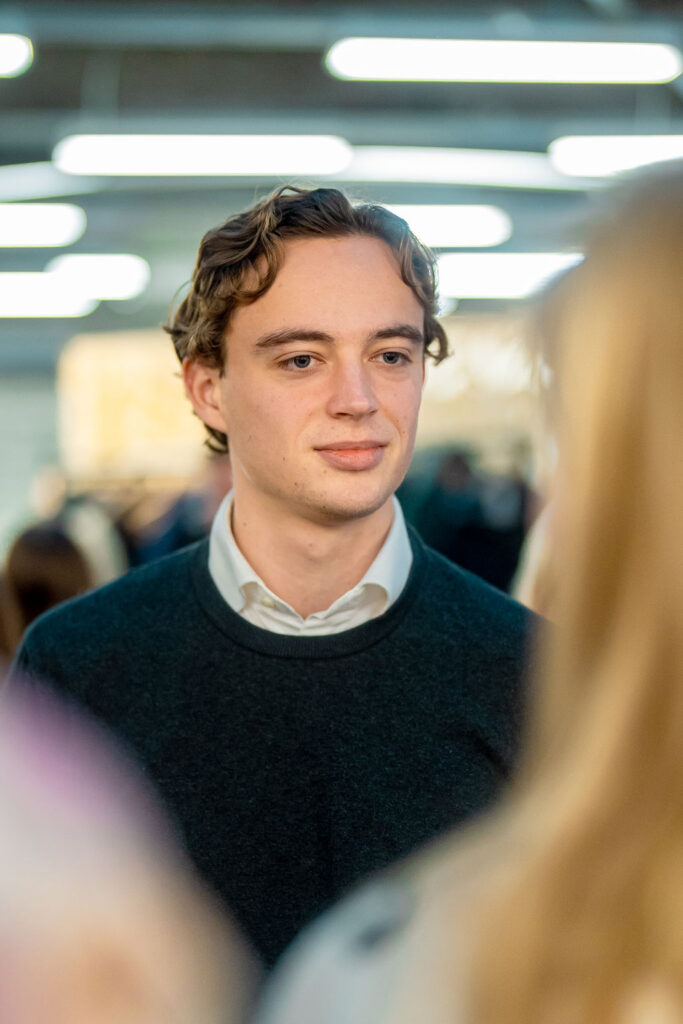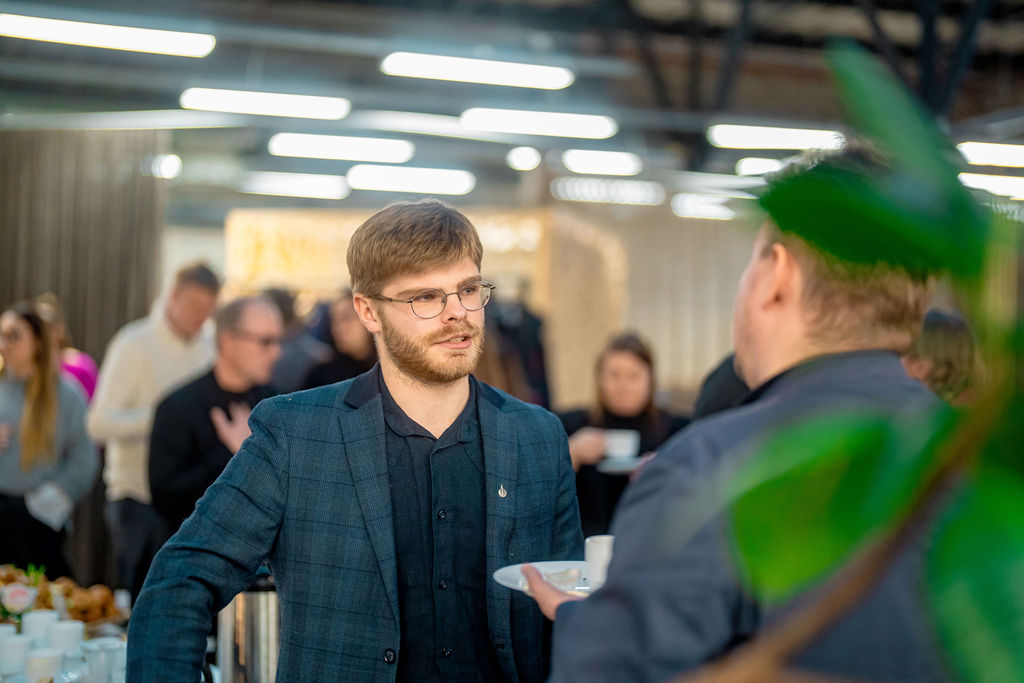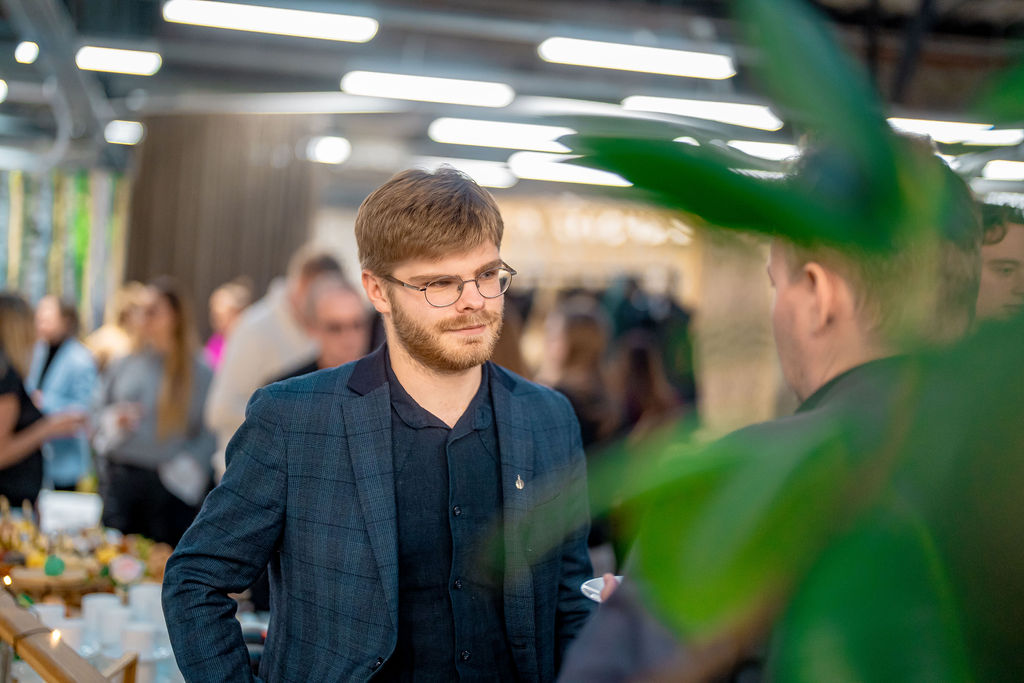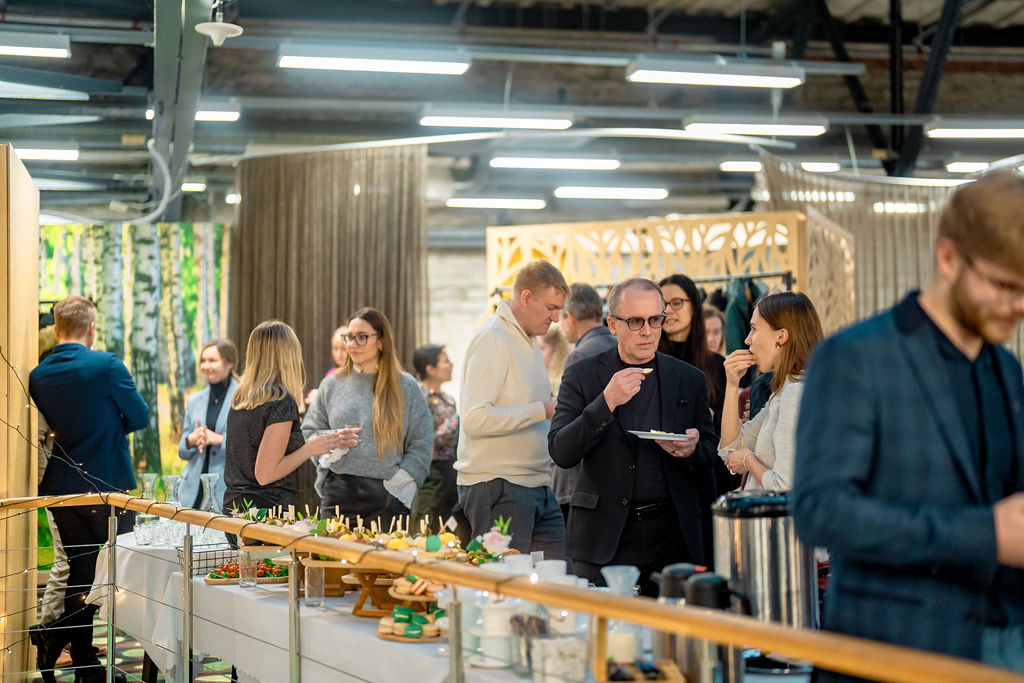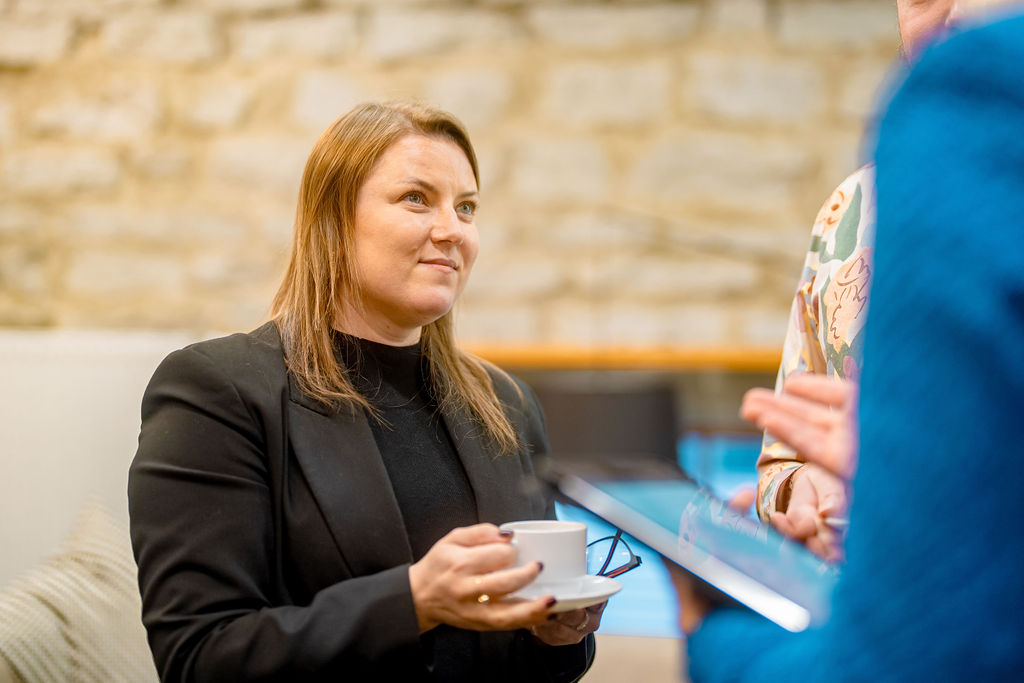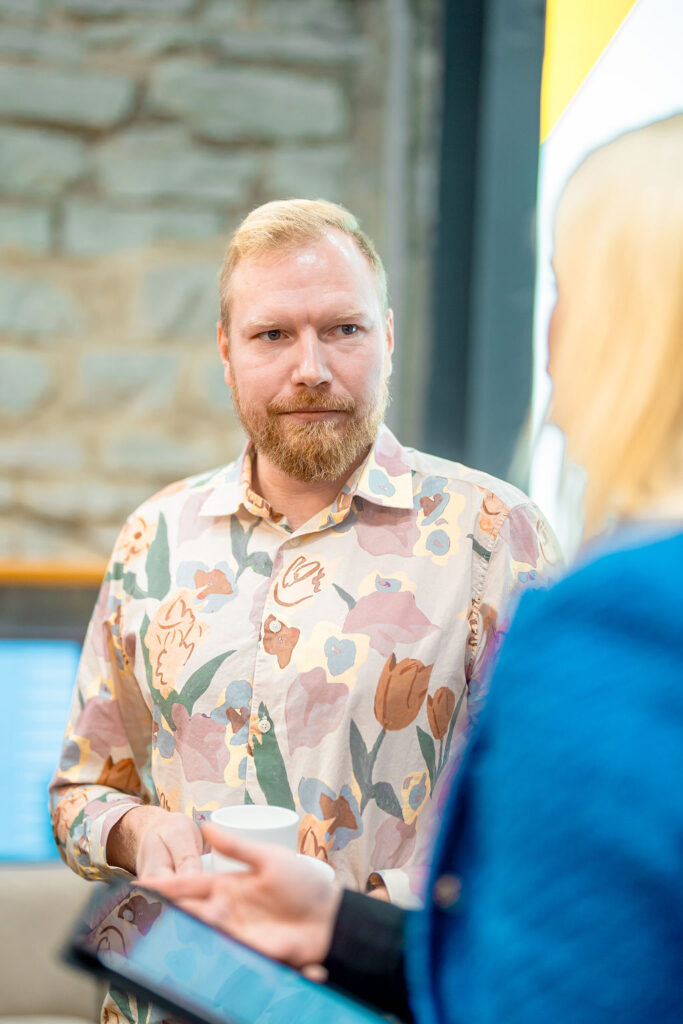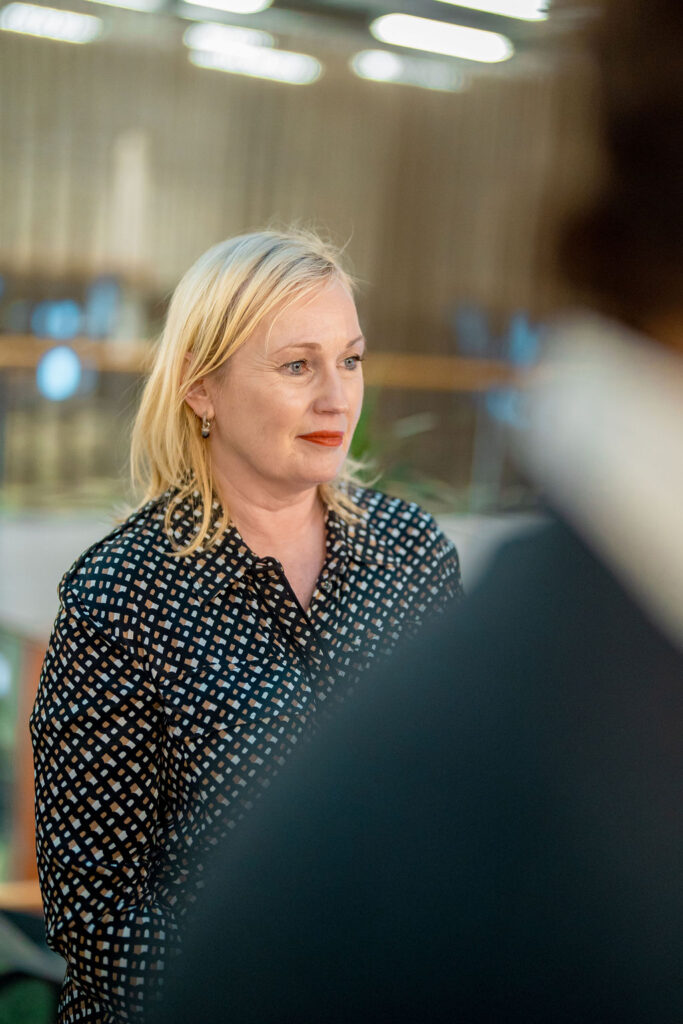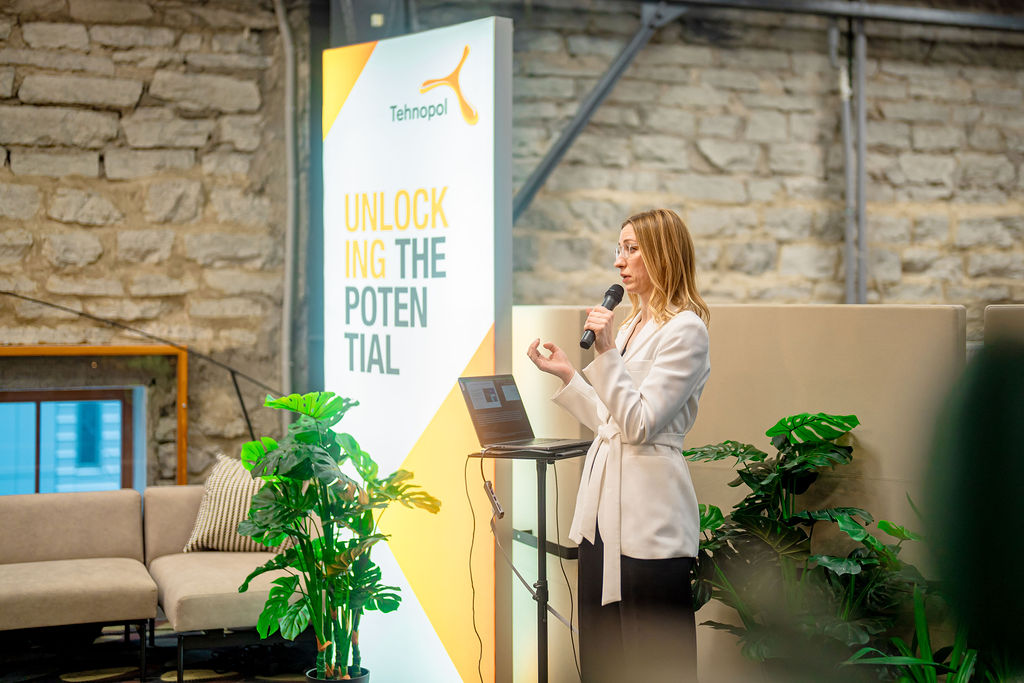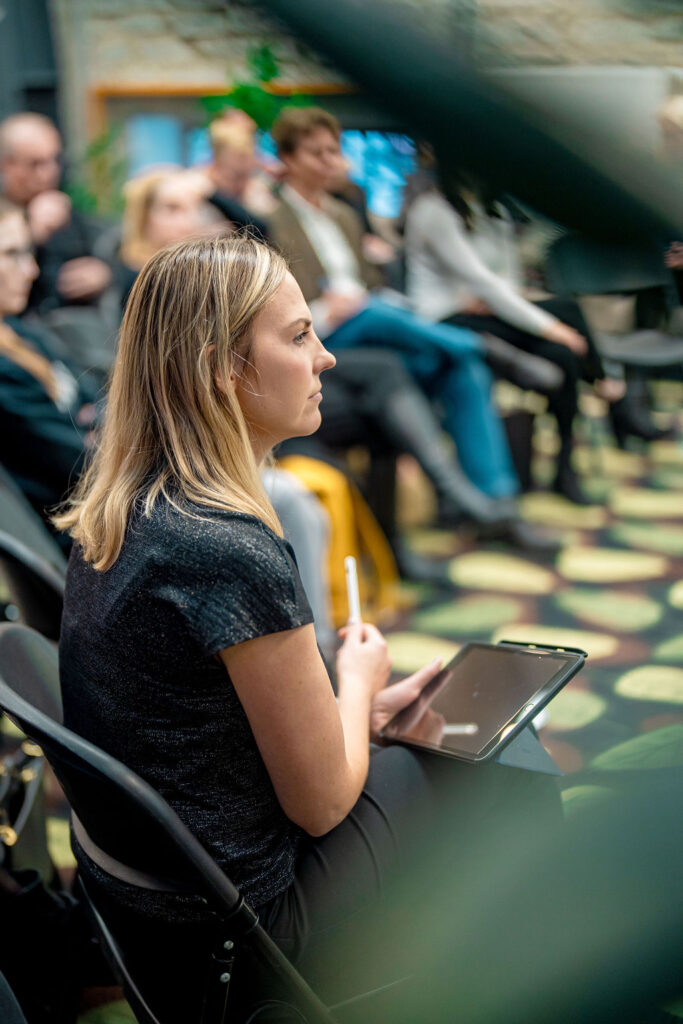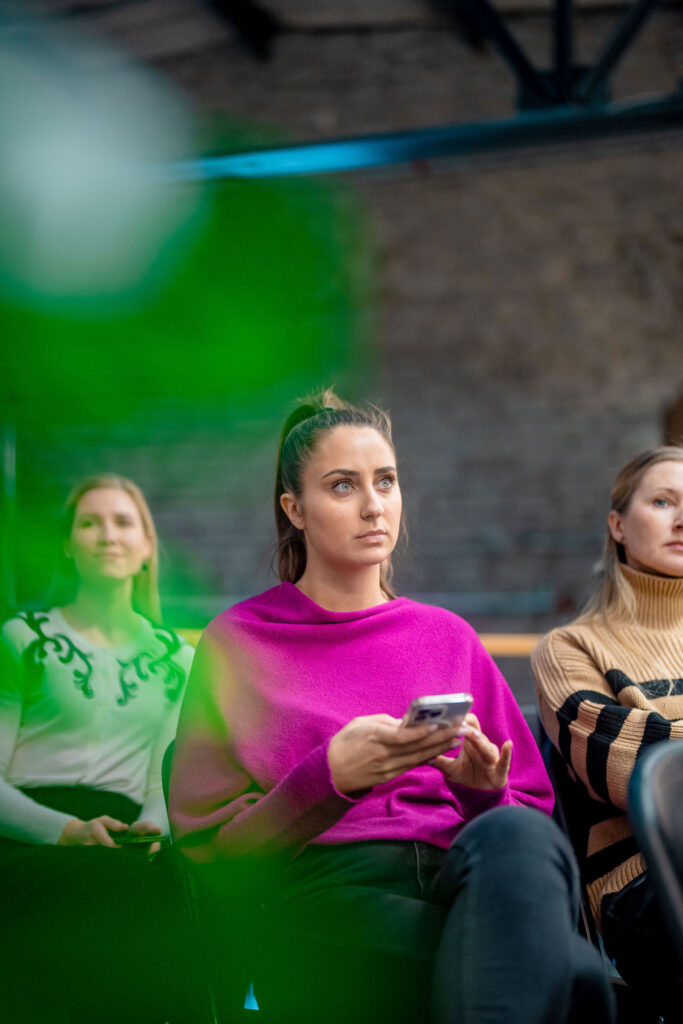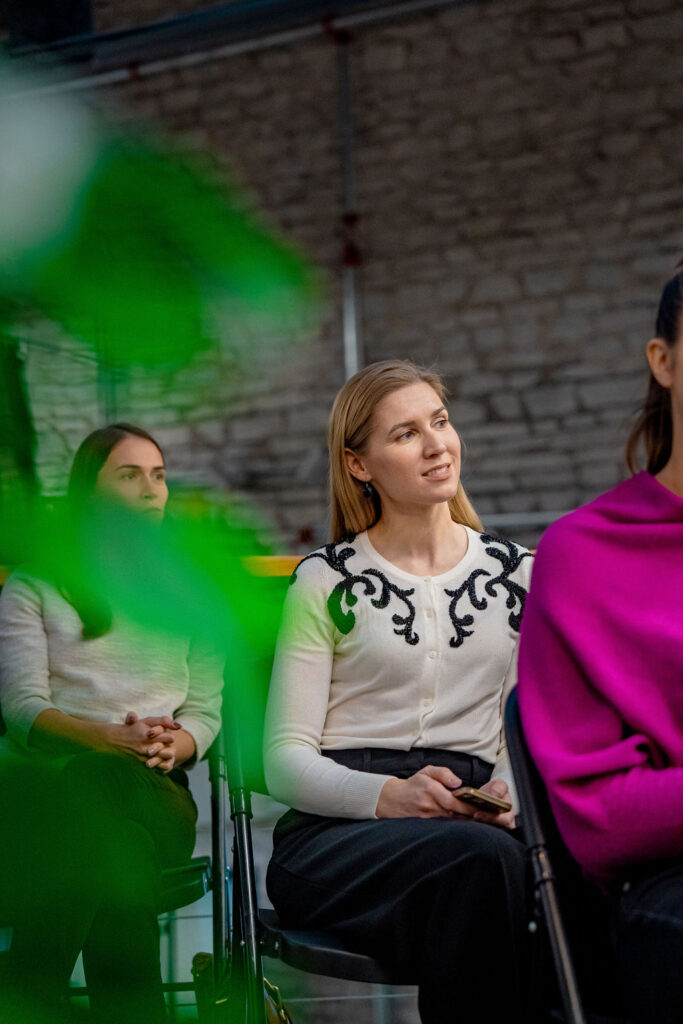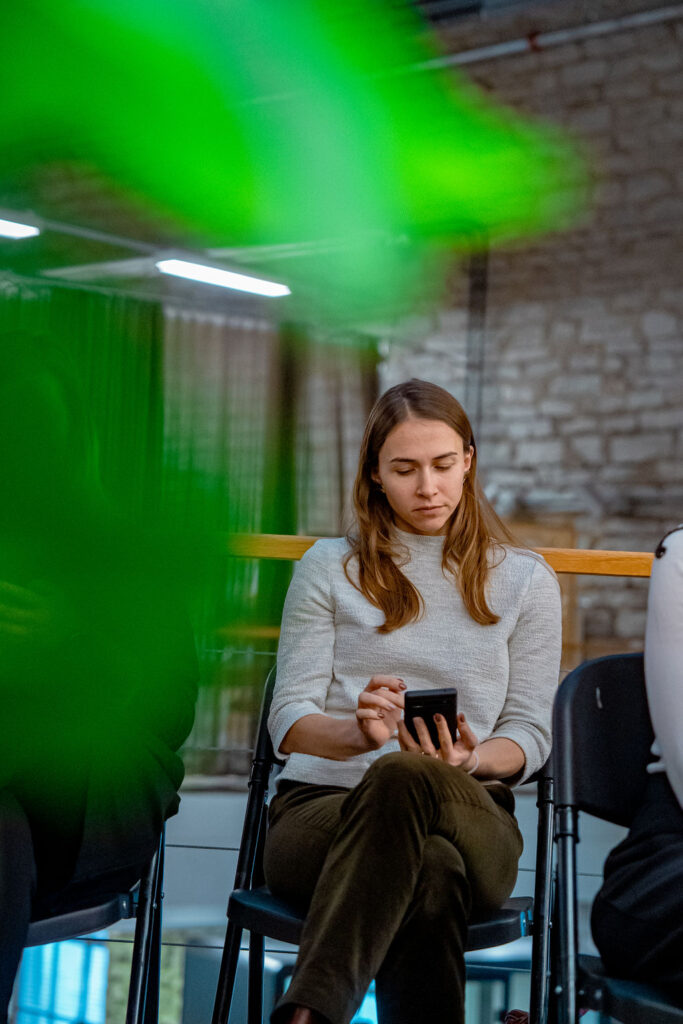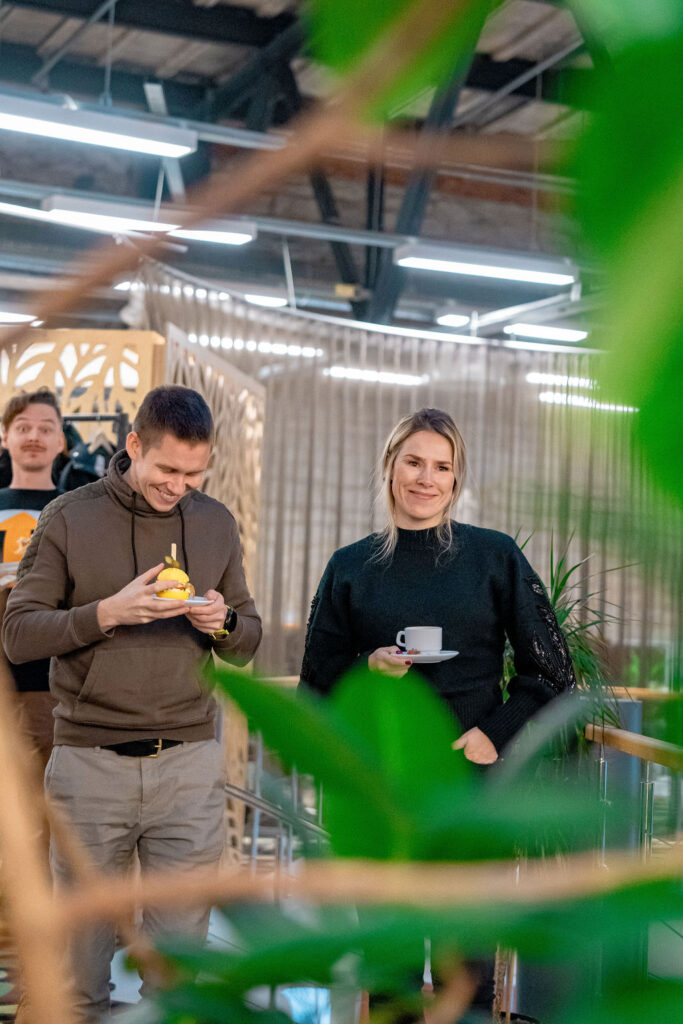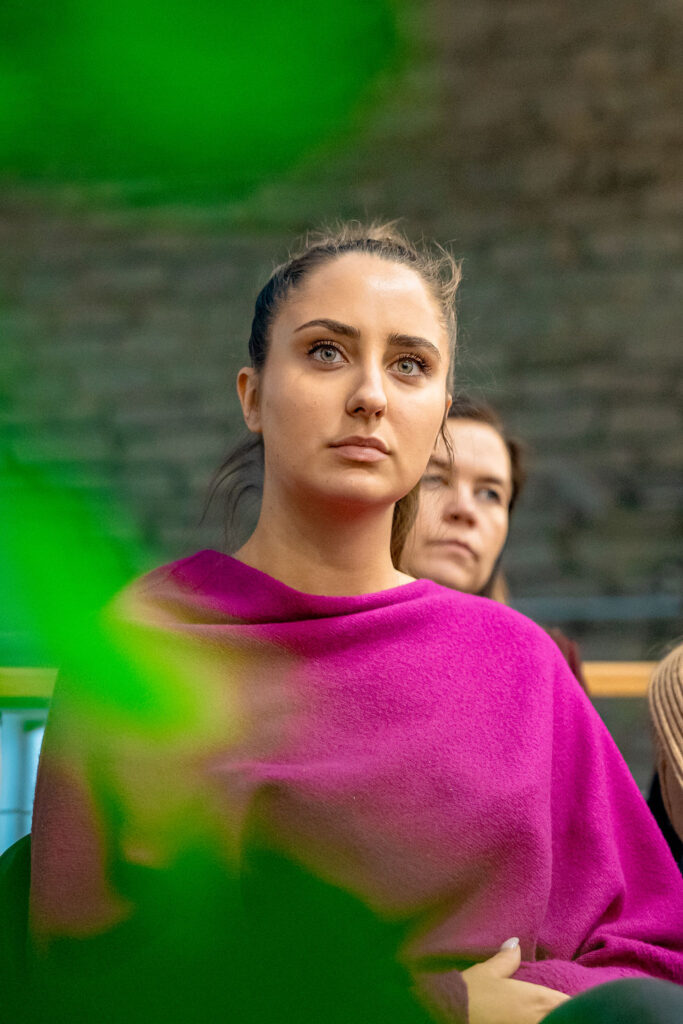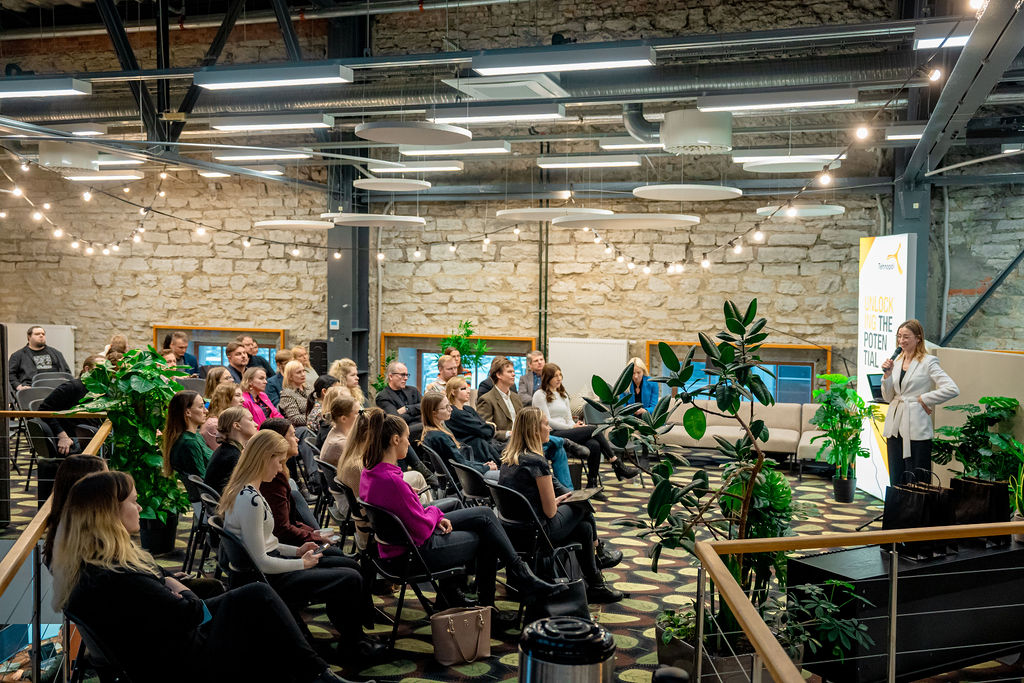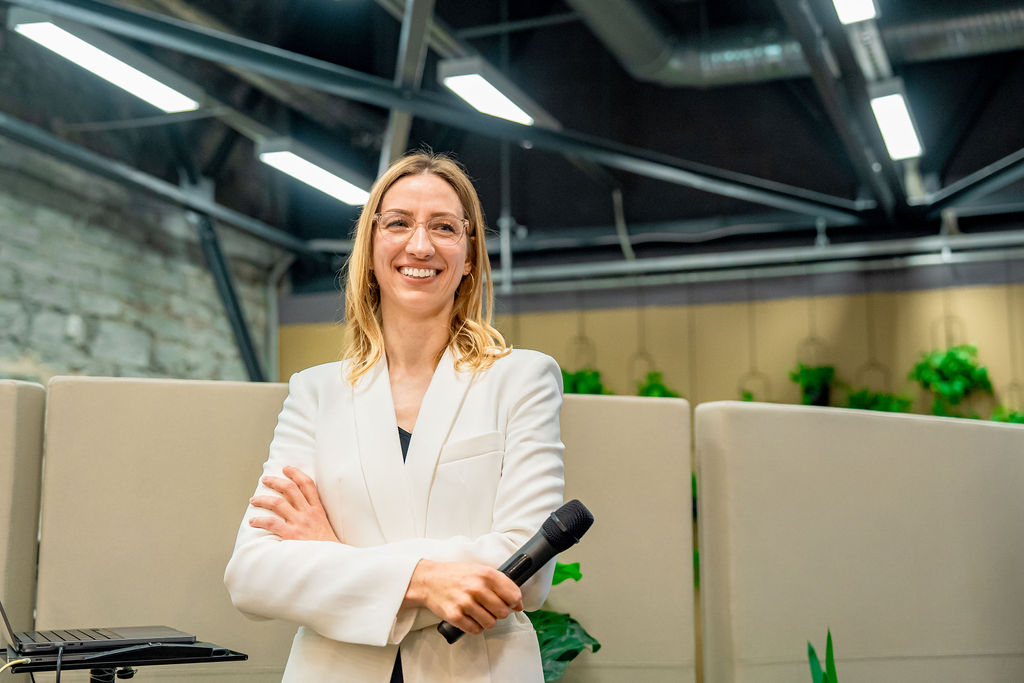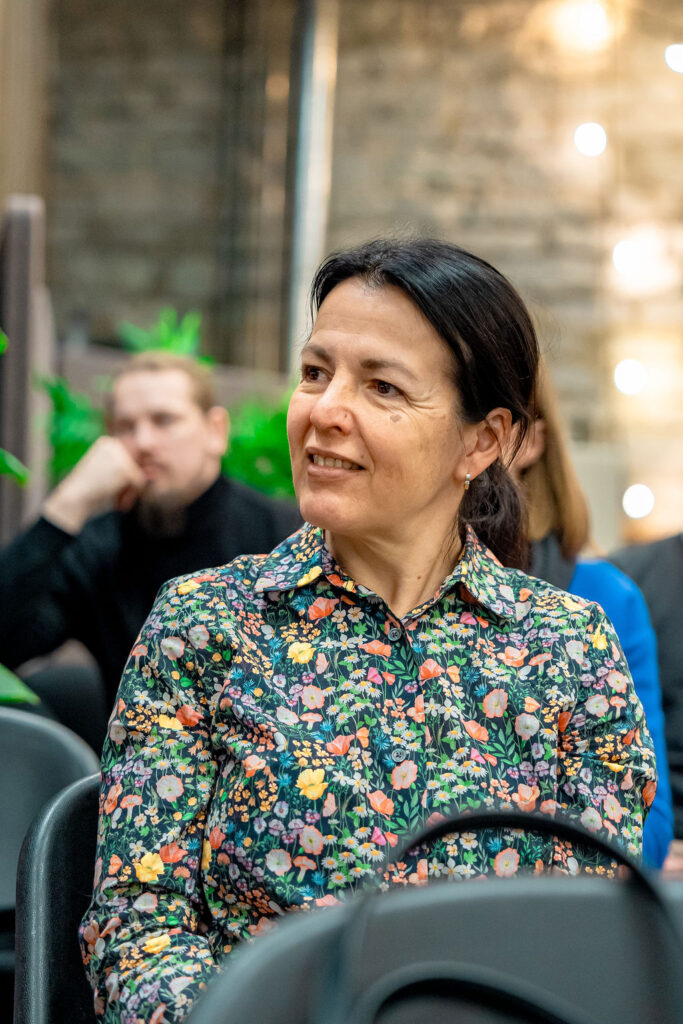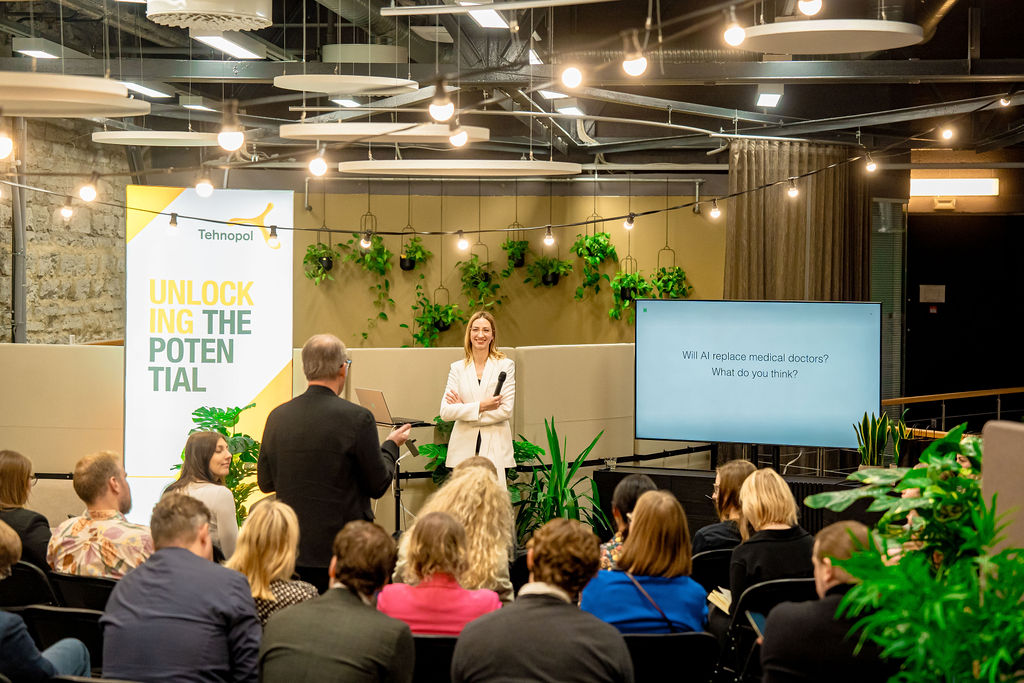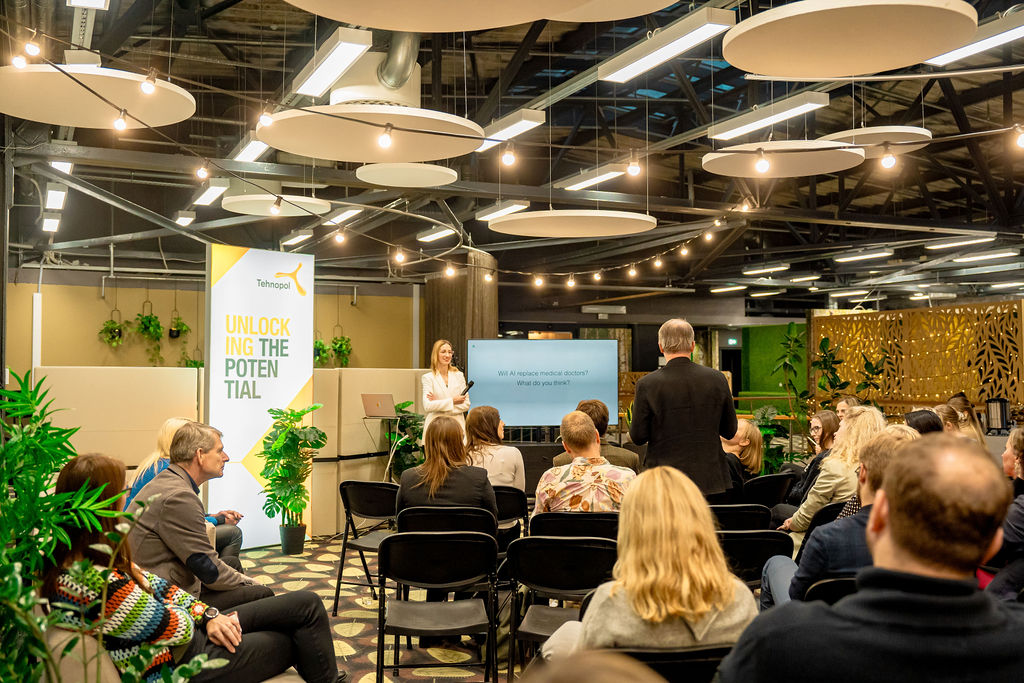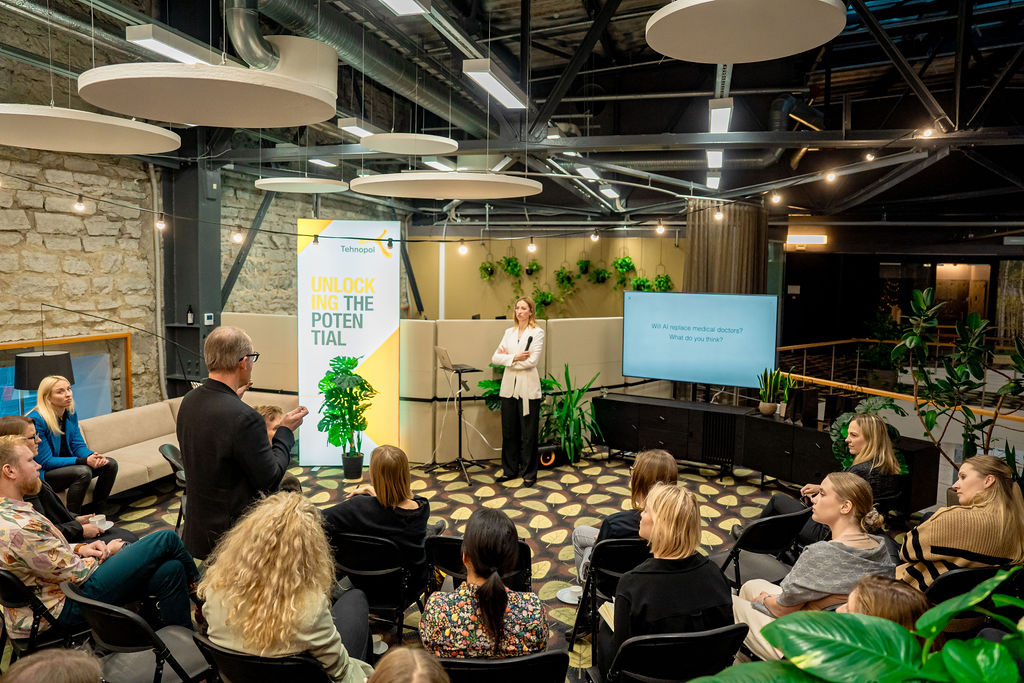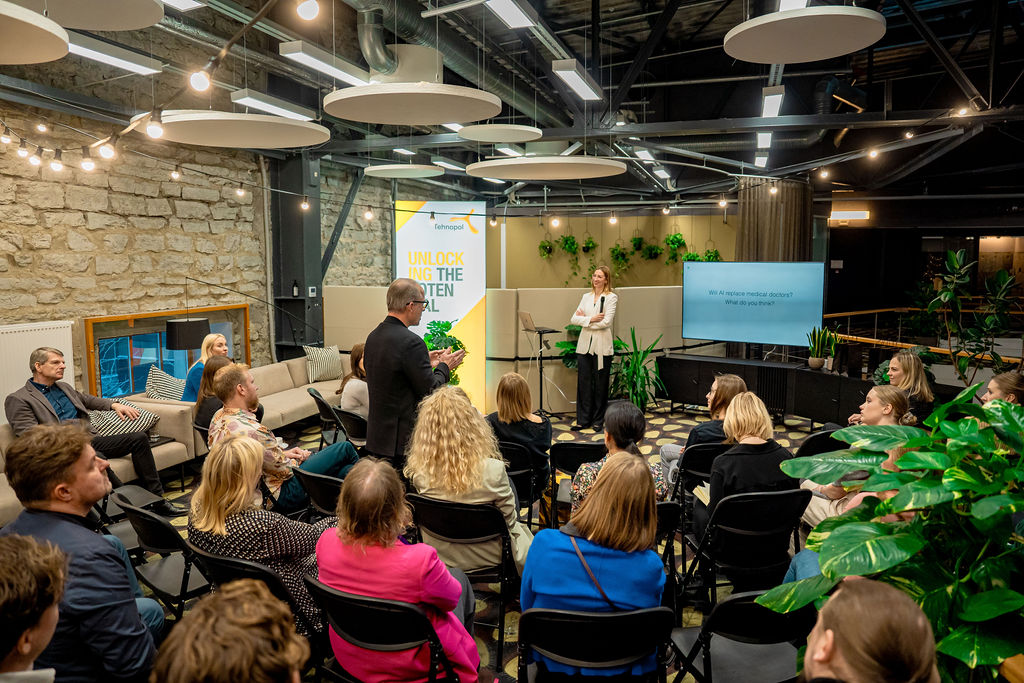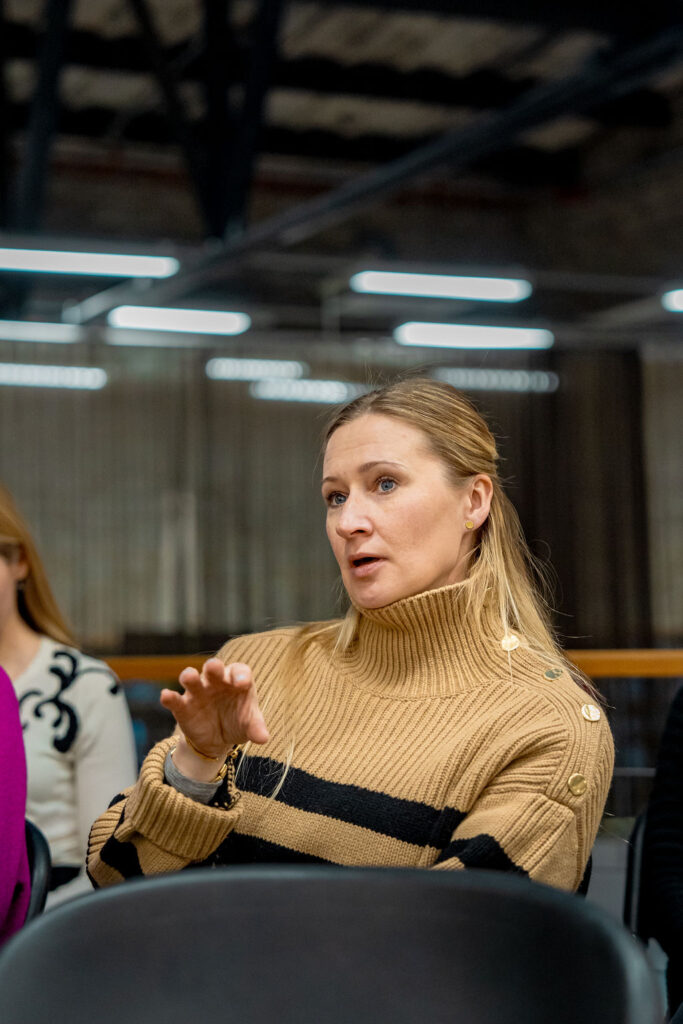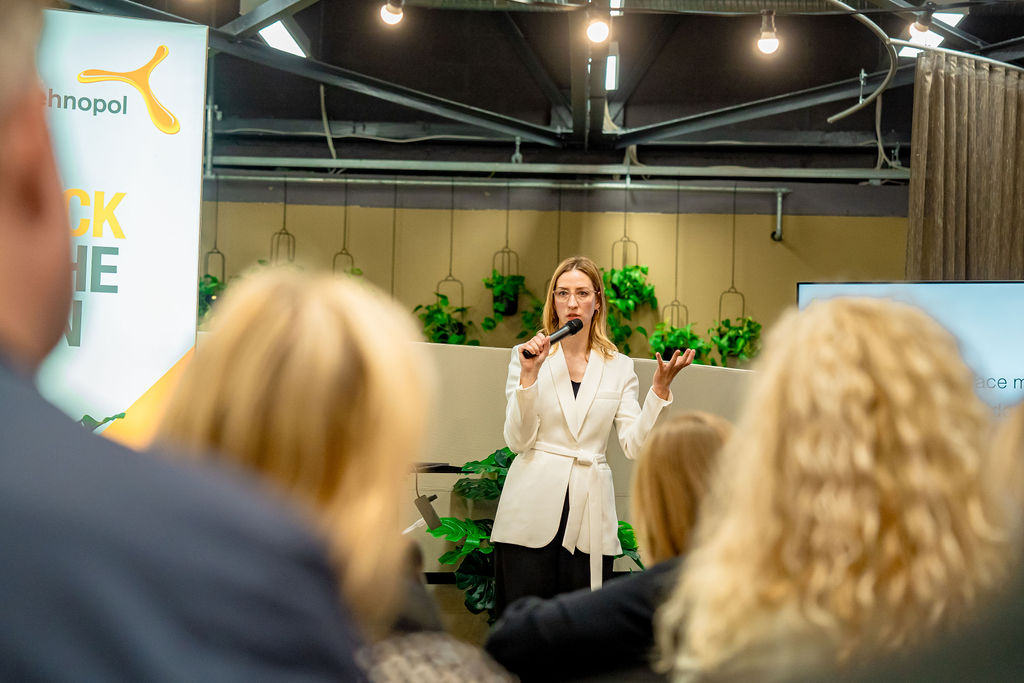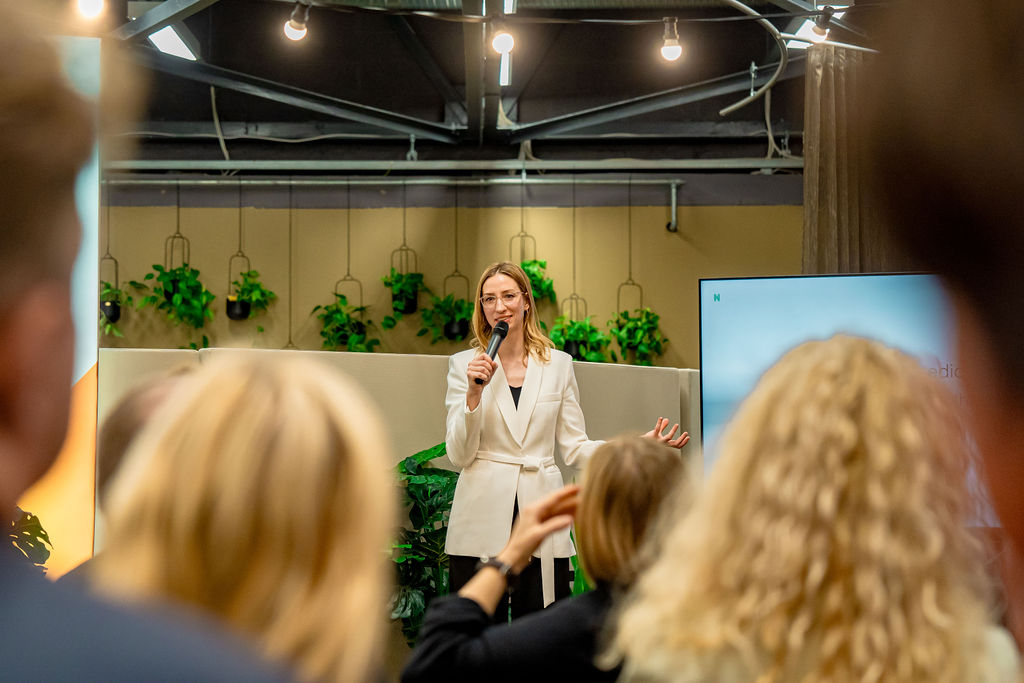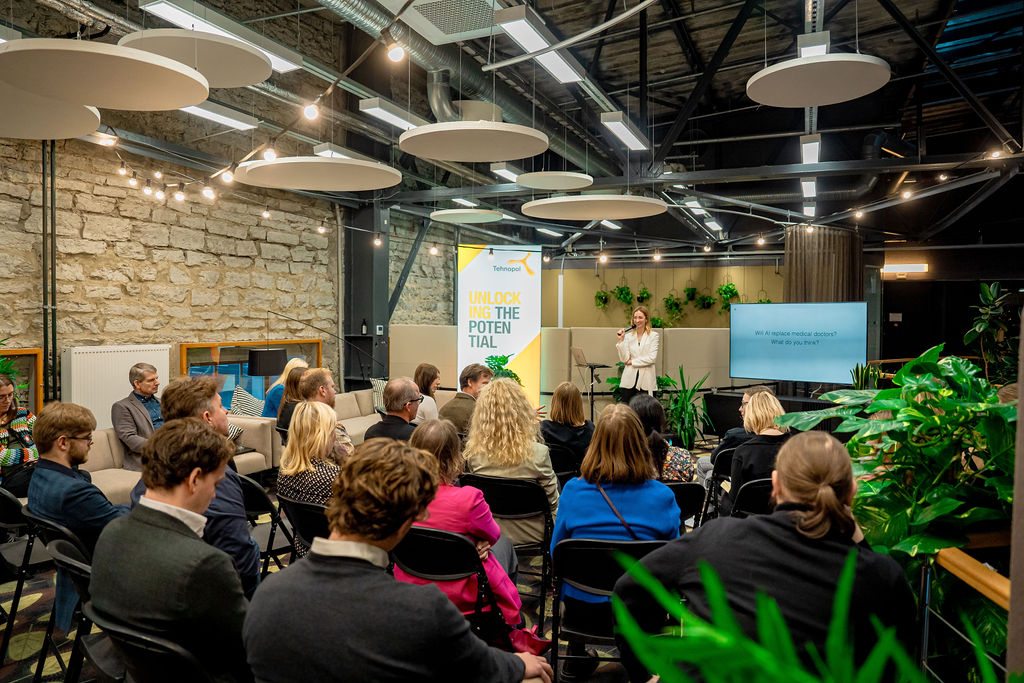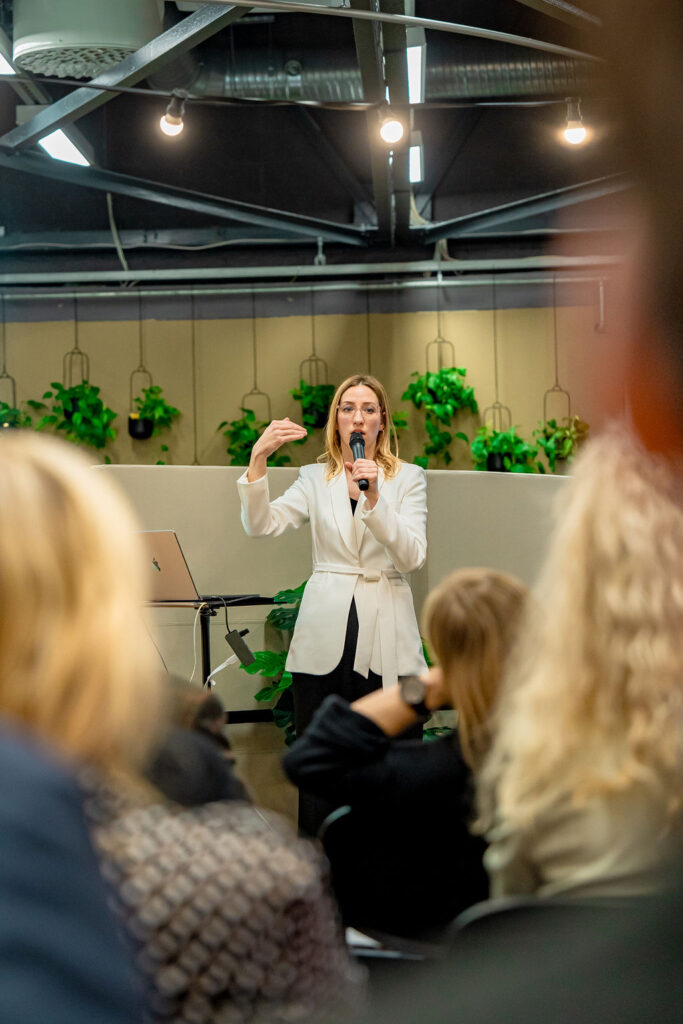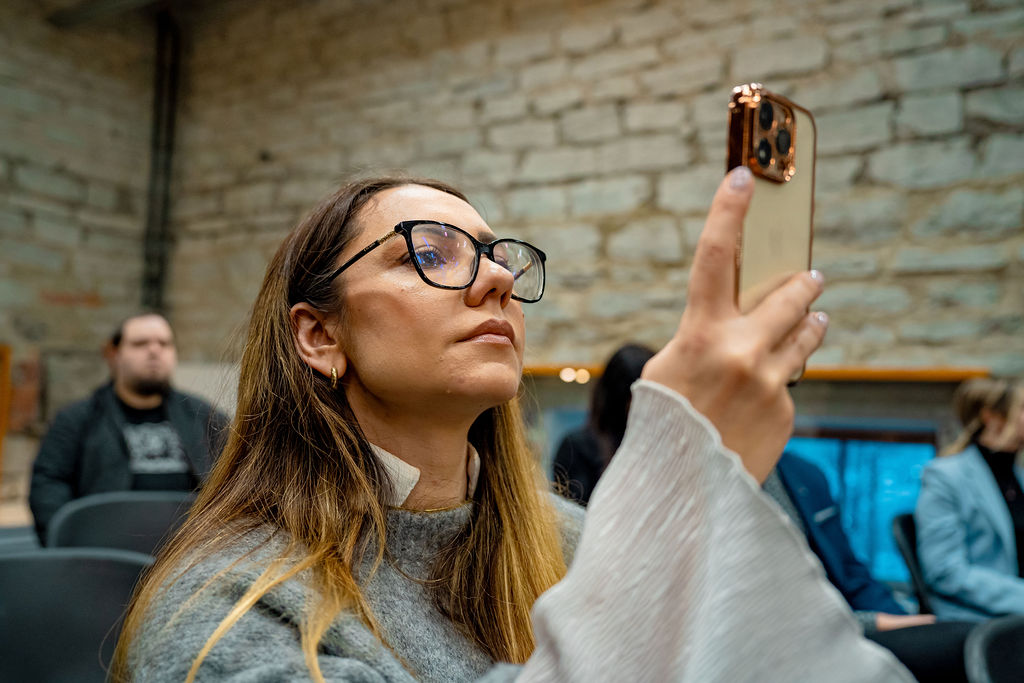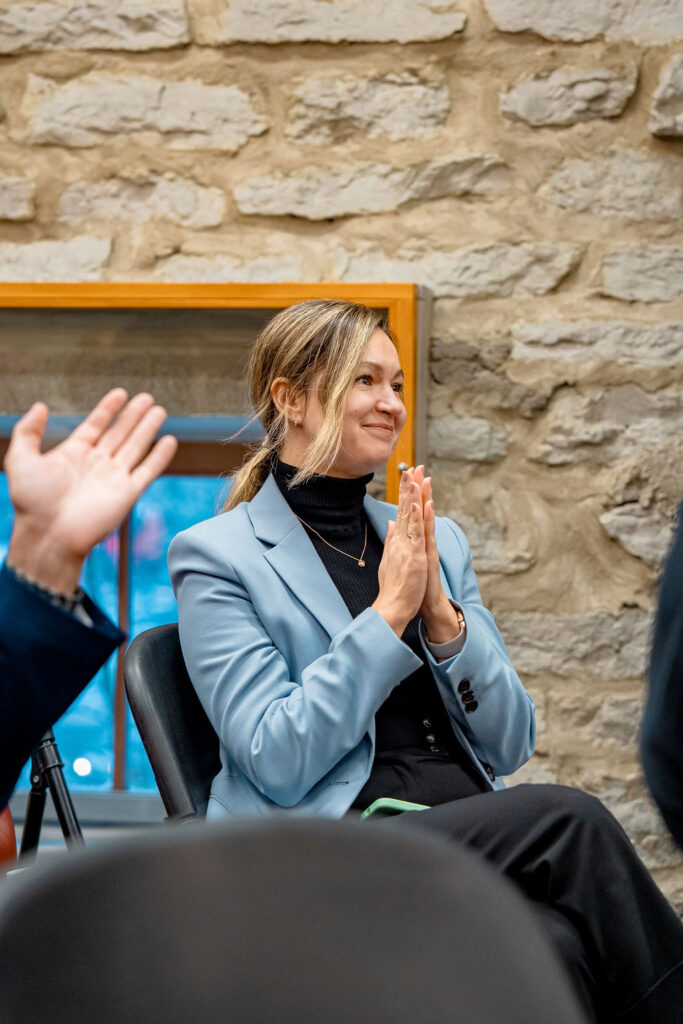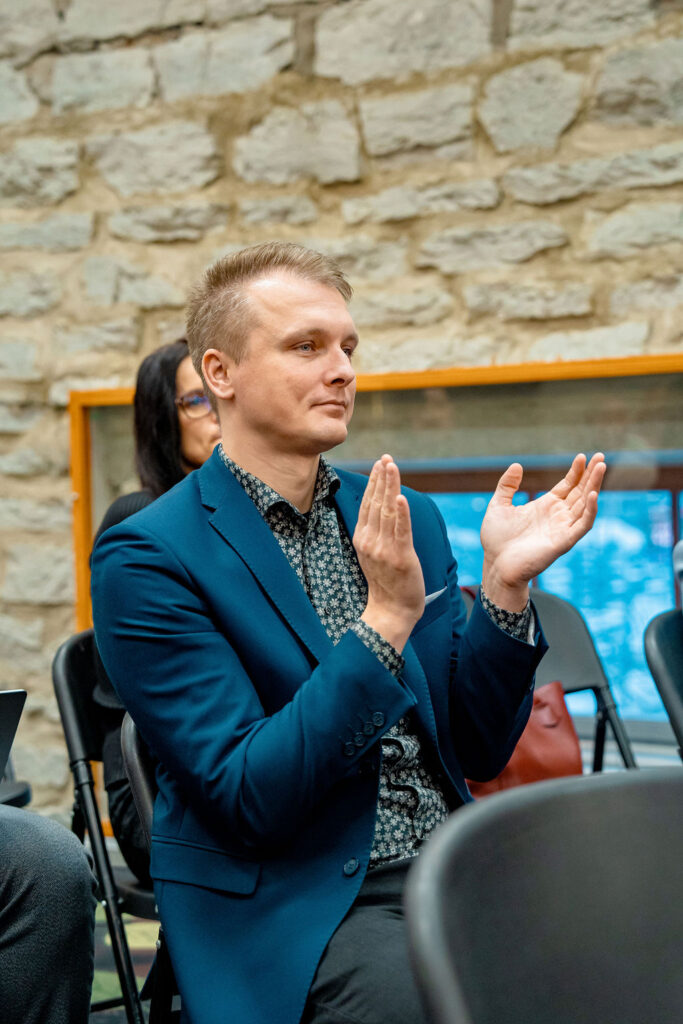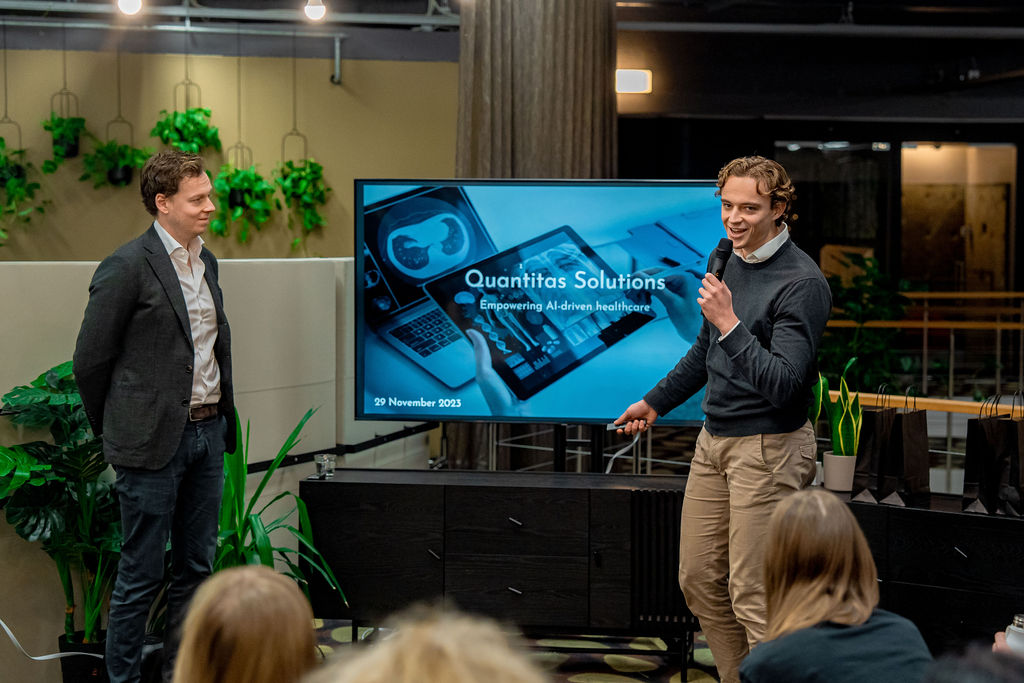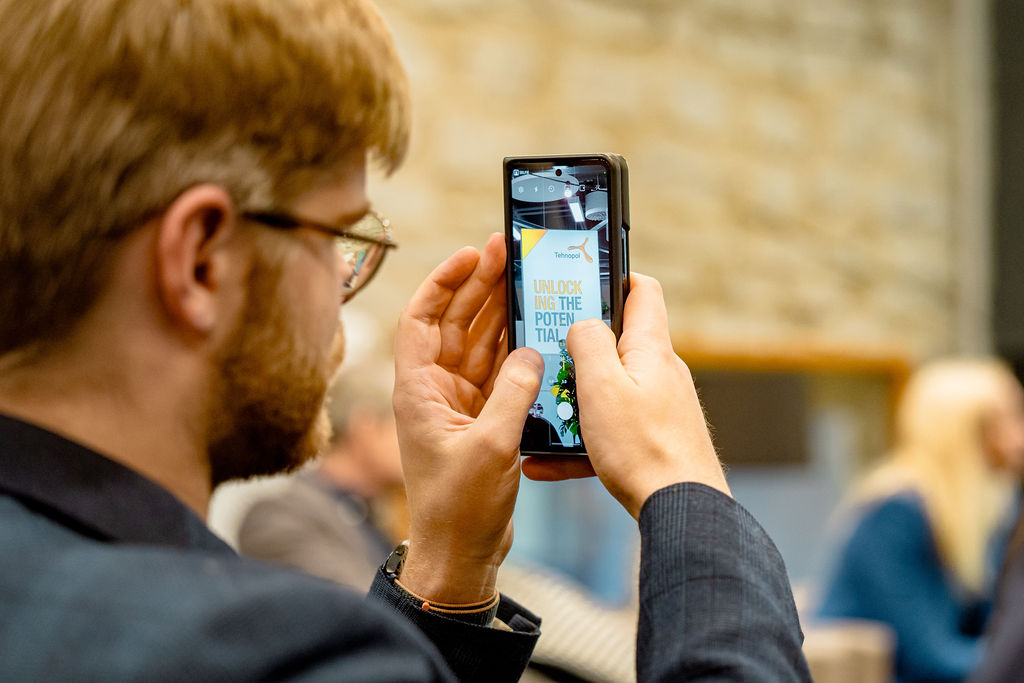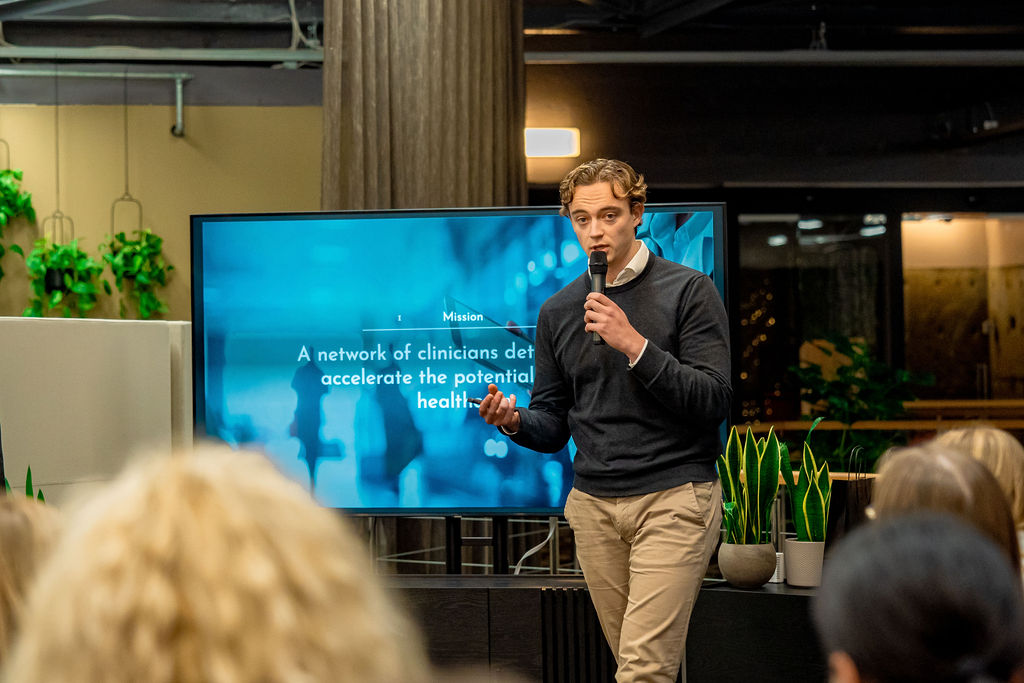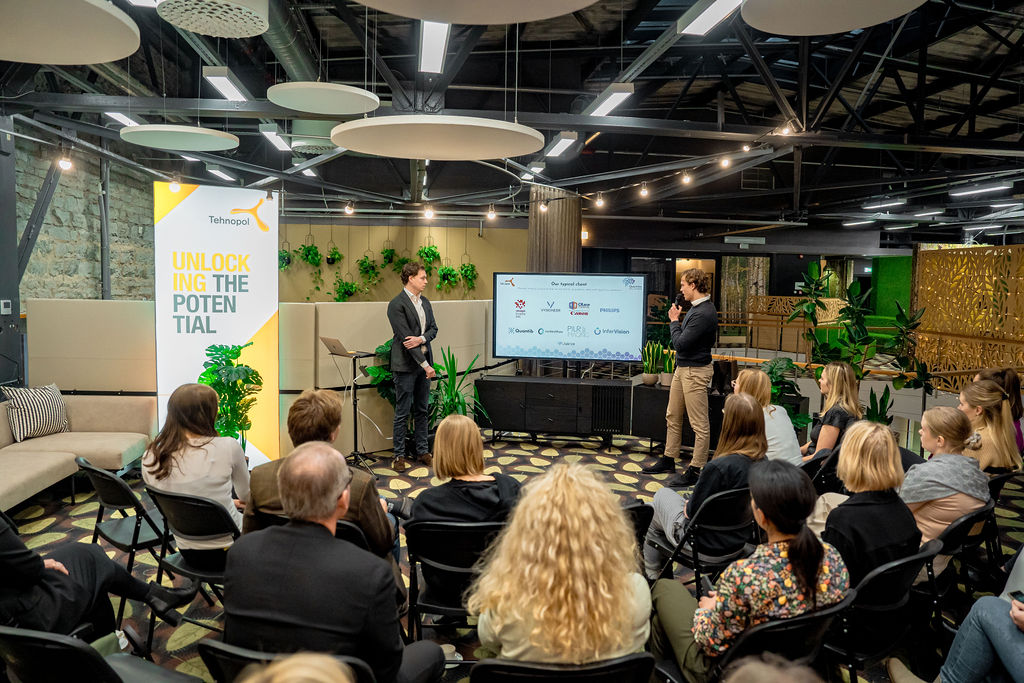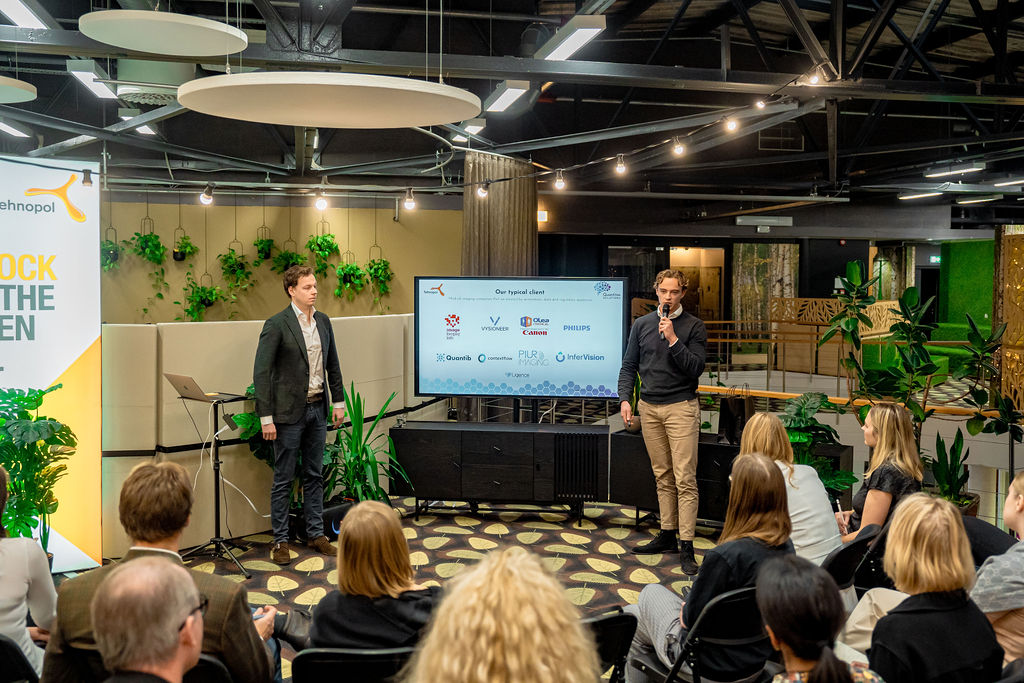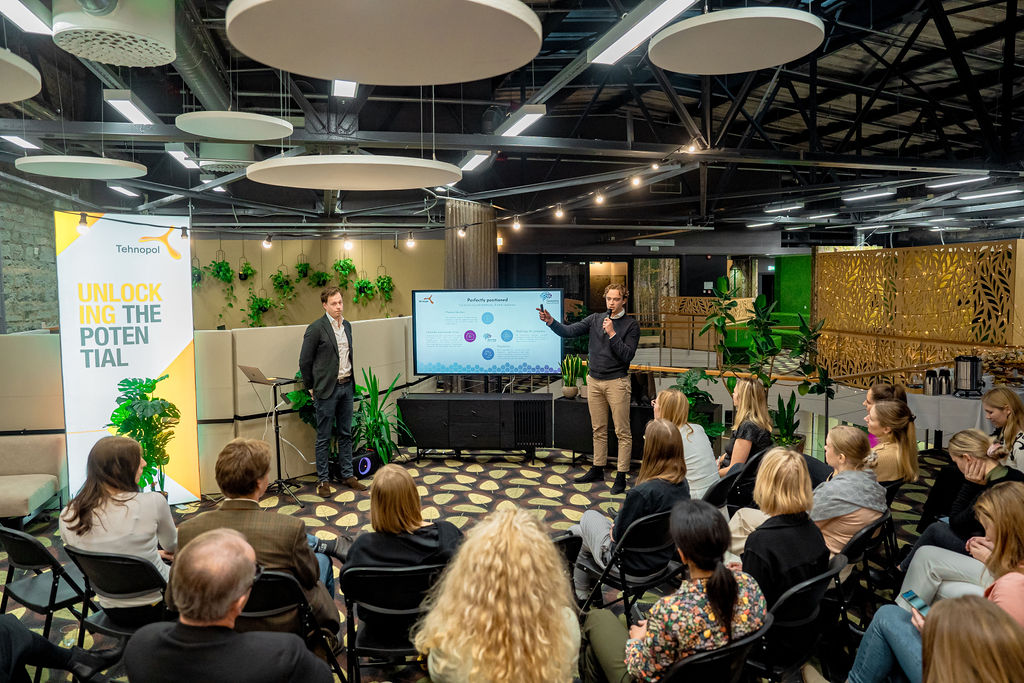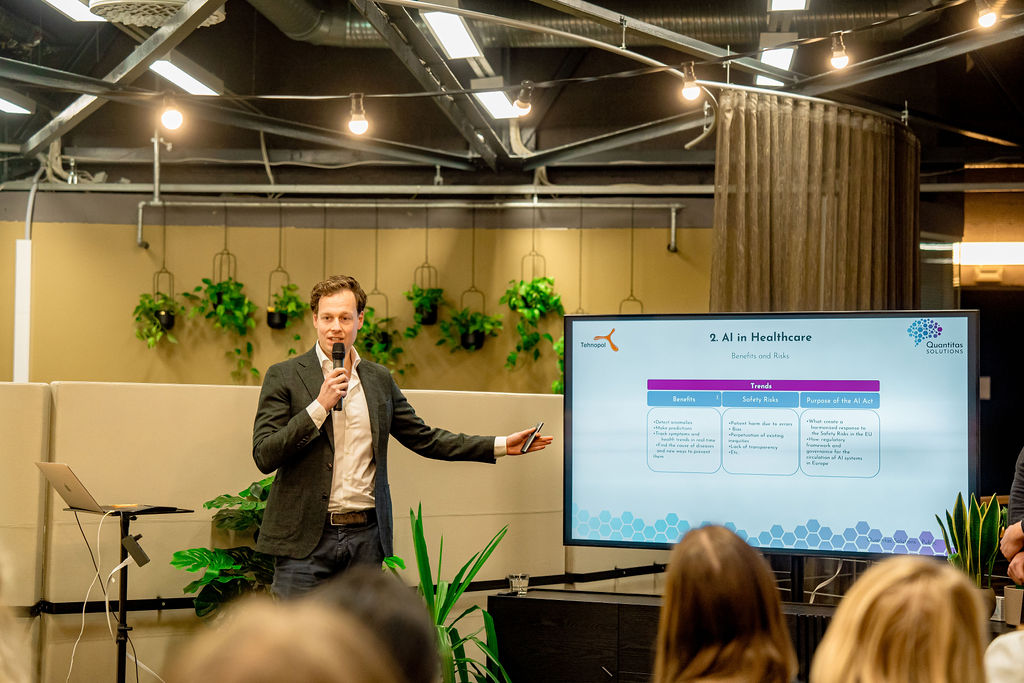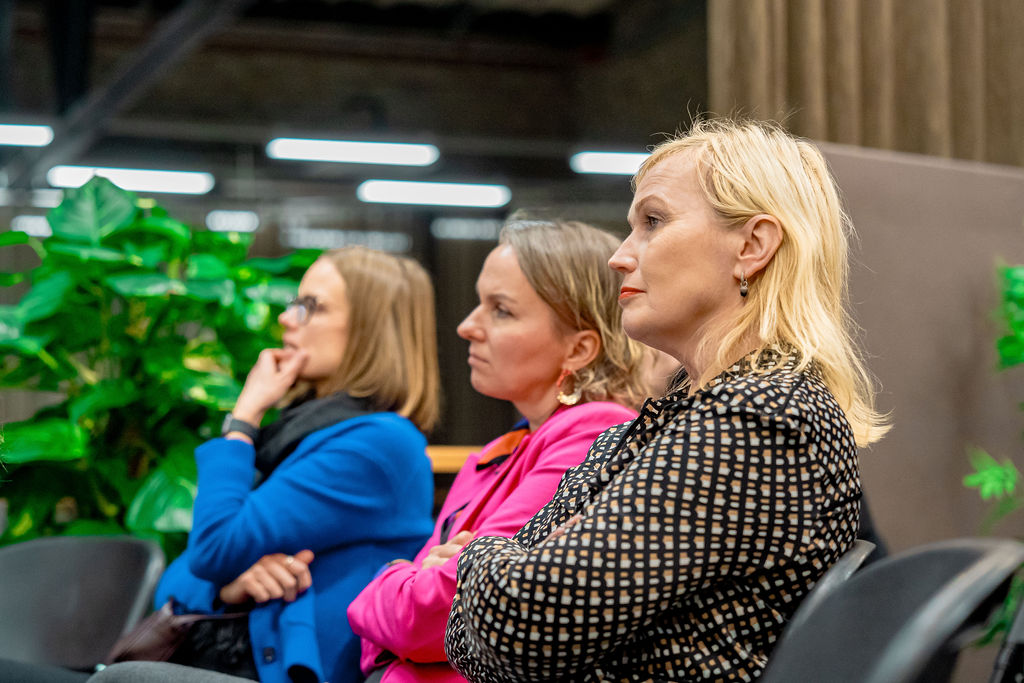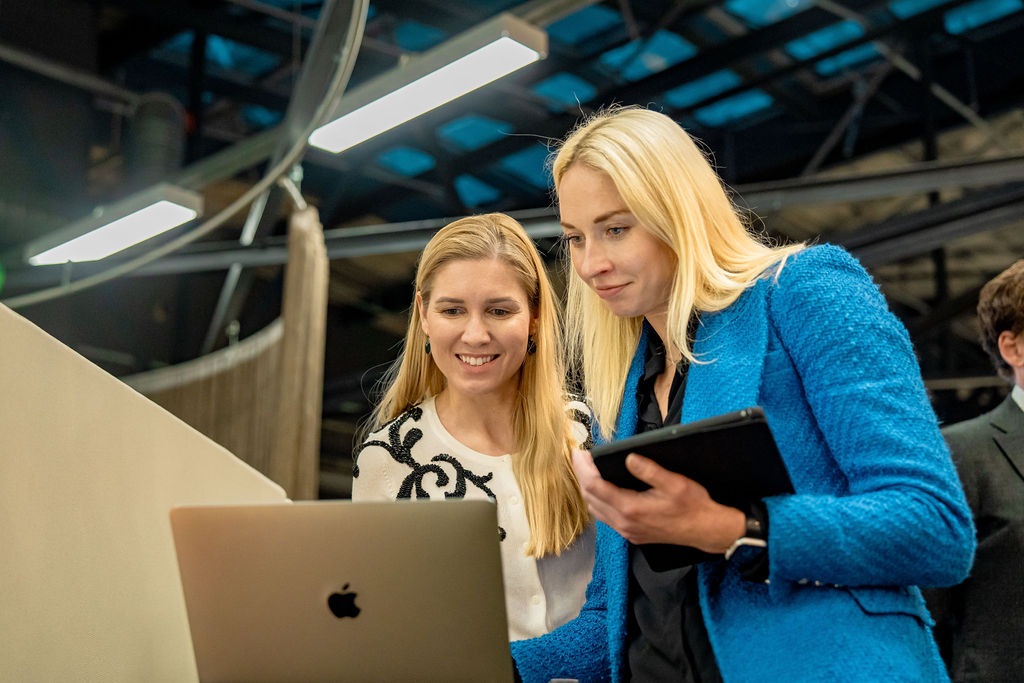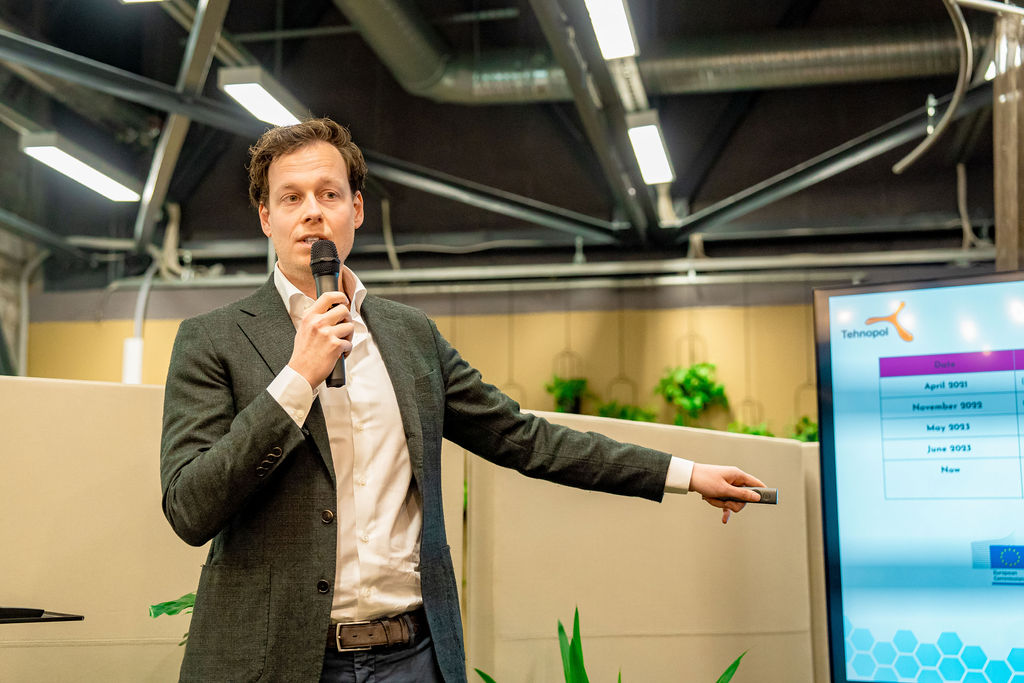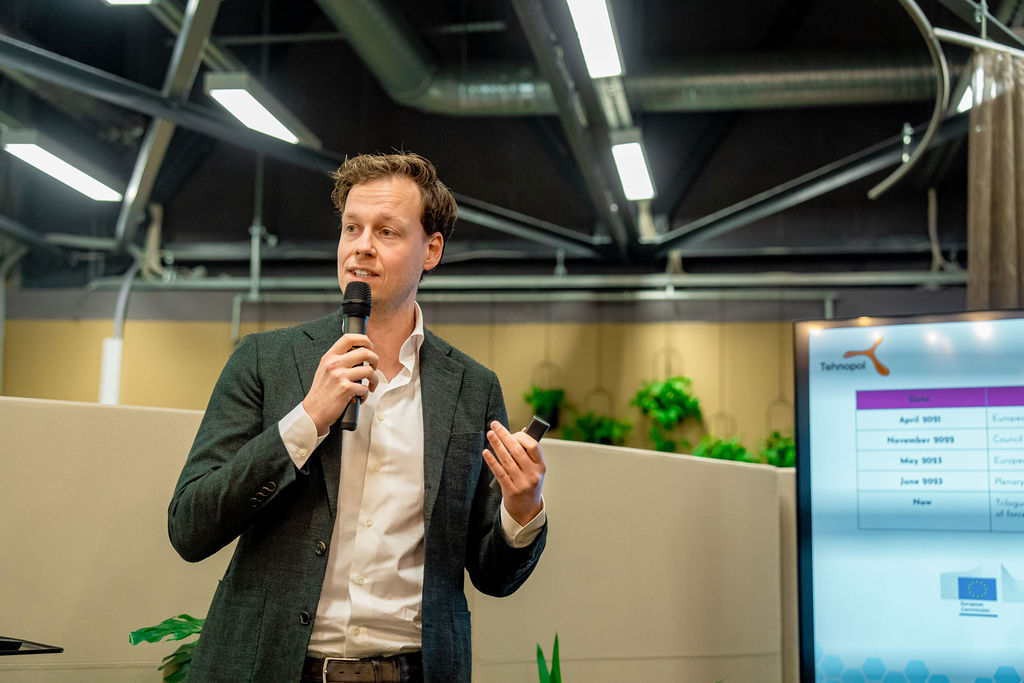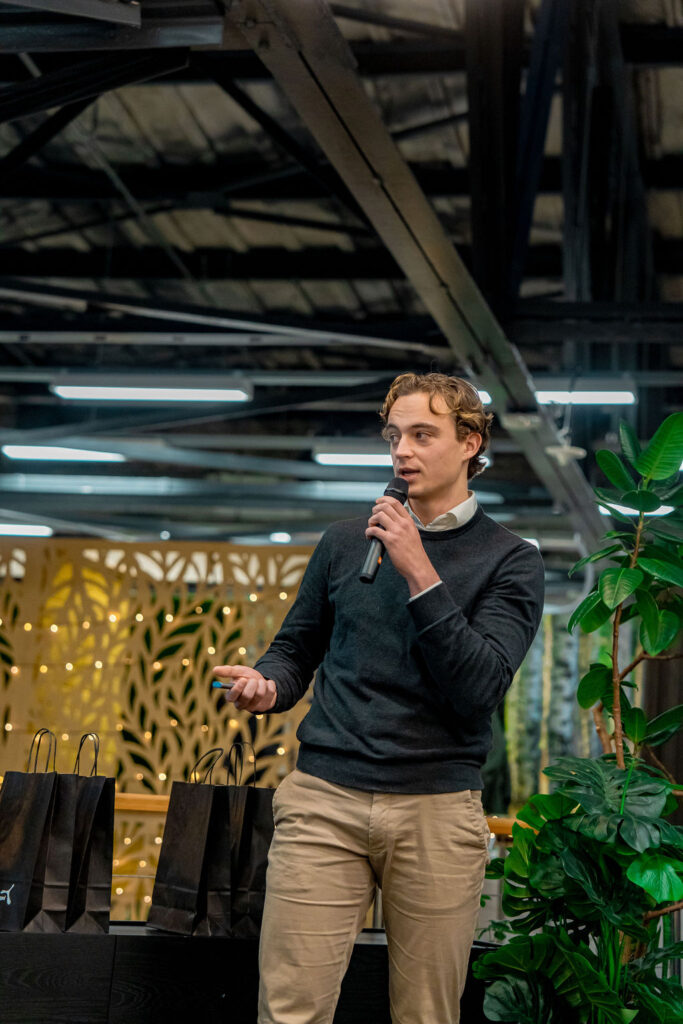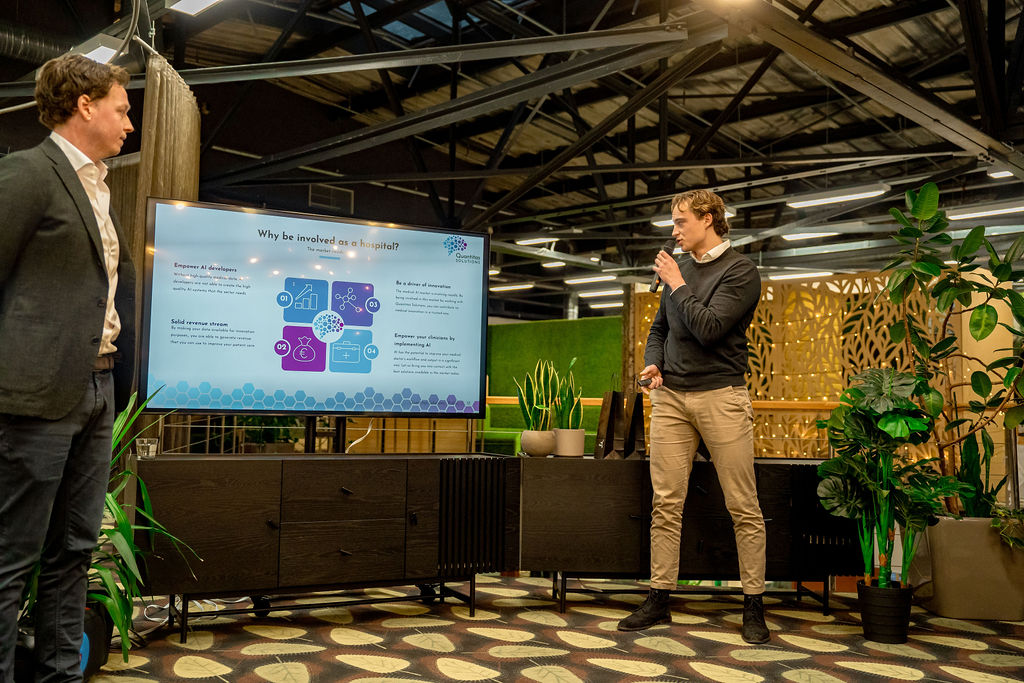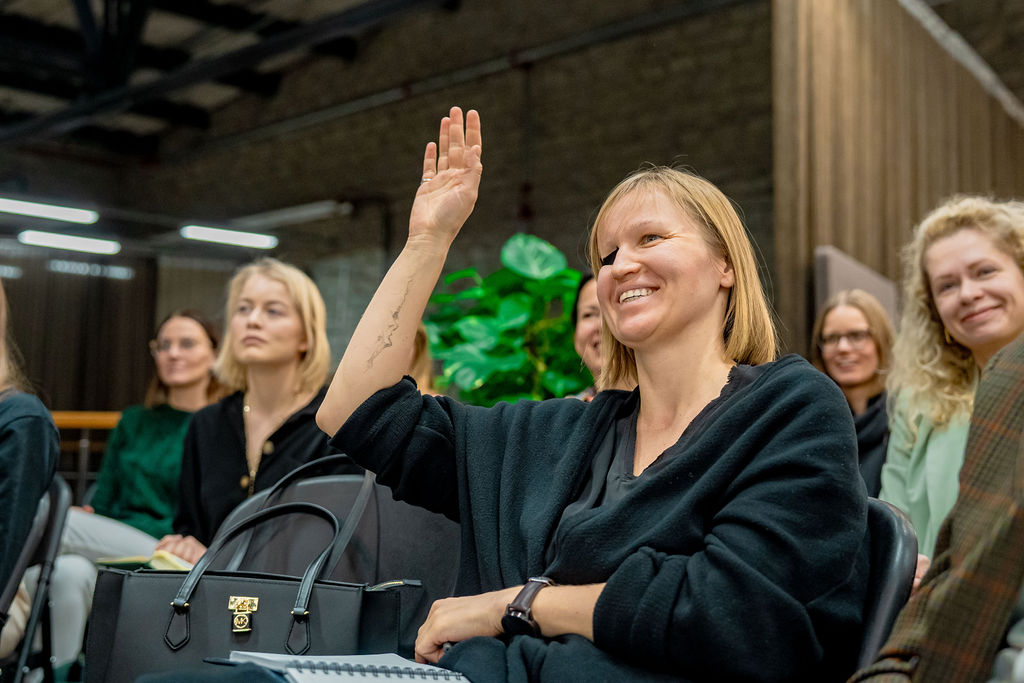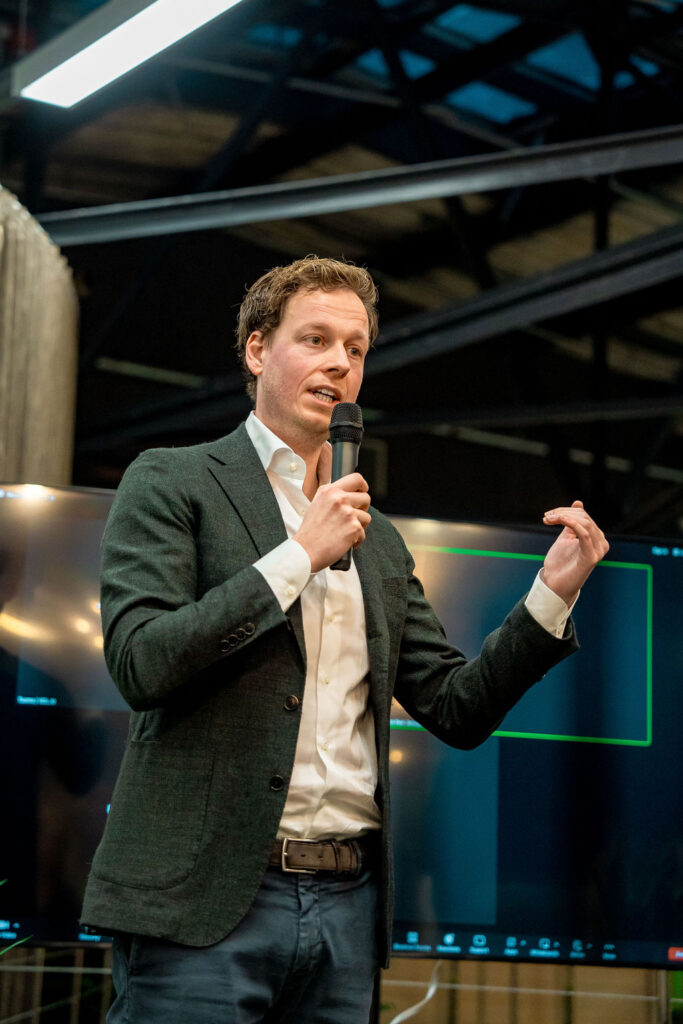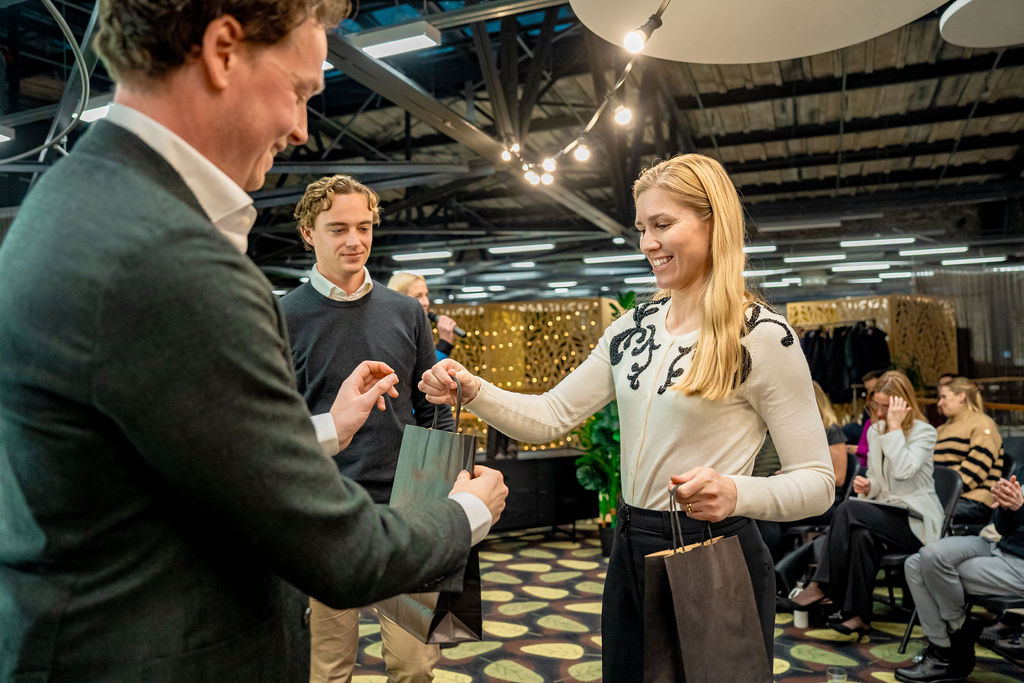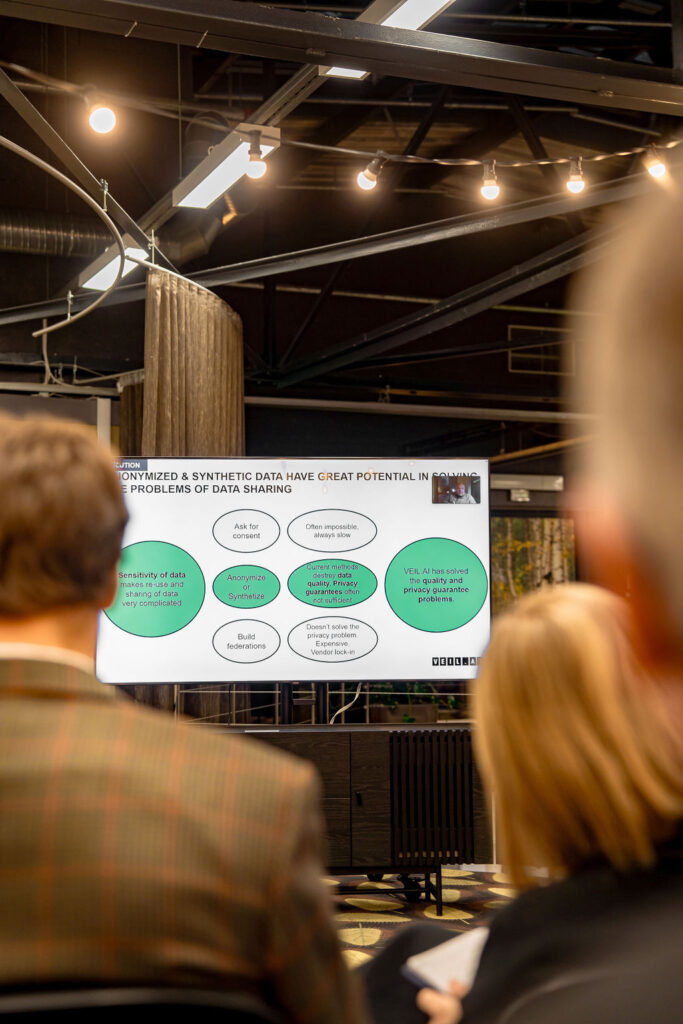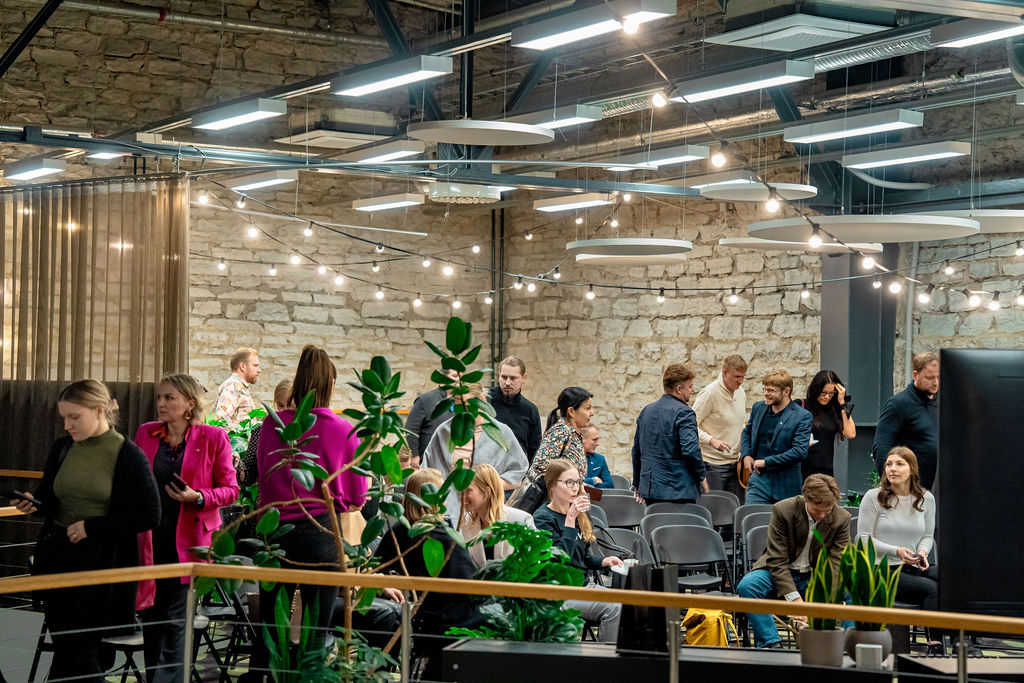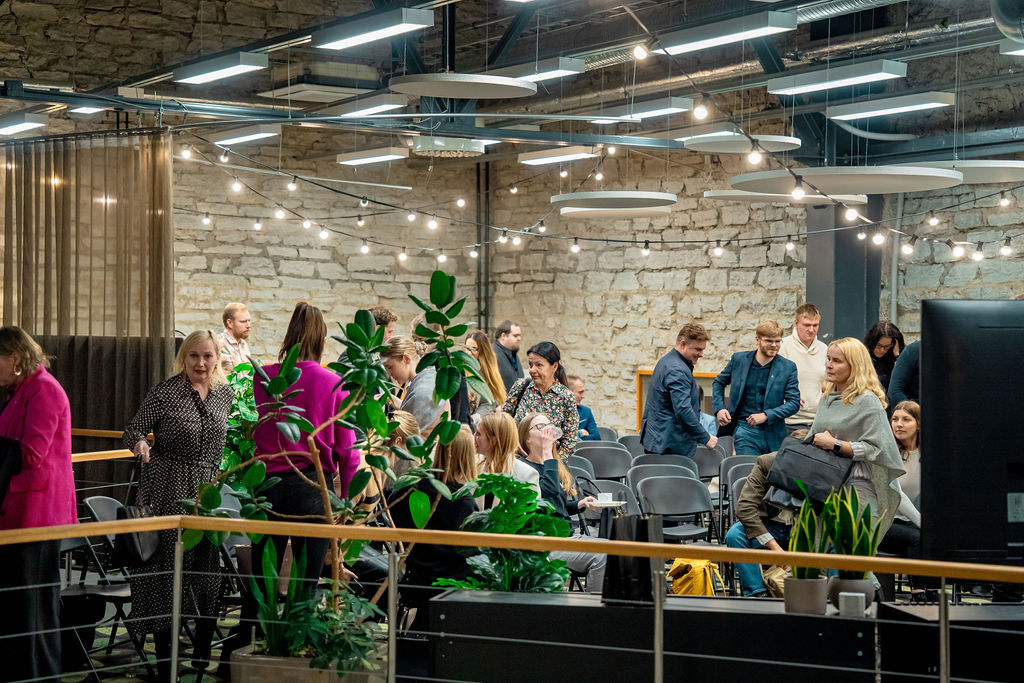sTARTUp Day was packed with inspiring talks and great company
The startup sector from Estonia and beyond gathered on January 24-26 in Tartu to exchange ideas, network, hangout and let’s be honest – party (just a little) – during sTARTUp Day 2024. Tehnopol Science and Business Park and Startup Incubator were also present and we are glad that there were so many inquiries about our various accelerator programs.
As always, sTARTUp Day was packed with intreaguing and inspiring talks and presentations, and we of course tried to soak in as many good thoughts and vibes as possible. Here’s an overview of some of the ideas that stood out from different talks.
⚡️Female founders should empower each other more and instead of saying that they are trying to do something, they should say that they are doing it! Stop trying and start doing.
(Carmen Kivisild from Nora.AI and Mari-Ann Meigo Fonseca from Gelatex on empowering women in healthtech)
⚡️Storytelling becomes crucial – If I won’t understand it, I won’t be able to see its potential and I won’t invest in it. Deeptech startups need to simplify their ideas, so that investors can get a clear understanding of what they are bringing to the table.
(Linda Võeras from Karma Ventures and Alessandro Braglia from Seraphim Space Accelerator on raising money)
⚡️We need to make cities great again for us and for other species. More emphasis should be place on small, multi-functional structures; we should fight against awful urban planning; we must cut back on using cars and promote public transport instead, or prioritize walking and cycling. Public spaces should be built for locals, not for commuters.
(Photographer Tõnu Runnel on attractive cities)
⚡️Three simple things to bear in mind, or the art of surviving: the urgency of now (there’s never a perfect time for anything; do something today that you have been postponing); the significance of who (people over fame, pivots and money); the necessity of pause (take a break before life breaks you). Live a life that is worth telling a story at the end. Thrive, not just survive.
(Peep-Ain Saar from Arco Vara KVB on the art of surviving)
⚡️Building a strategy is non-linear, you cannot copy-paste and hope it works in a different context. Every market and its needs are different, there’s no one solution for all.
(Luiz Fittipaldi from Bolt on building a long-term strategy)
⚡️Encouraging innovation and agile approach go hand-in-hand with taking risks. Would you like to have a team that delivers in a mediocre way? The startup sector is full of talent, but how do you onboard these people if your company is mediocre?
(Kadri Tammai from Tehnopol on will corporates beat startups)
⚡️Brand is a story and companies are telling it every day with their products, websites and clothes. Design always carries a message.
(Andres Kuusik from the University of Tartu on corporate branding)
⚡️Marketing goals should support the business goals (which should come from the founder or the management). The whole company must be working towards the same goals. Your task at the marketing team, is to choose those actions that have the biggest impact on your company’s goals.
(Marelle Ellen from grit. podcast on growth strategies from top Estonian startups)
⚡️There is no business on a dead planet – the startups, and actually all companies, need to think about their environmental impact today.
(Ragmar Saksing from Tehnopol on ESG)
In addition to collecting good ideas and experiencing the overall nice vibes of the conference, we are glad to congratulate some of the startups that we have worked with and that received funding or other kinds of bonuses at the sTARTUp Day Pitching:
- Up to €125,000 investment from Baltic Sandbox Ventures: Wayren
Wayren is developing a connectivity agnostic communication platform for rapidly deploying mission-critical networks. Wayren is among the alumni of the Startup Incubator growth program. - €10,000 equity-free cash from Swedbank & legal support from TRINITI: GaltTec
GaltTec makes small and powerful electric power sources for portable devices using a proprietary fuel cell technology. It is the only Estonian startup that got accepted to the NATO DIANA Innovation Accelerator. - €1000 equity-free cash from Sparkup Tartu Science Park: Triumf Health.
Triumf Health develops a mobile game for children to improve their health. They are the member of the Tehnopol Healthtech Community.
Thanks to all who visited our booth and let us lift them up (to check out the demo area)! And a huge thanks to the organizers for yet another successful event!
Check out the official sTARTUp Day galleries in Flickr!
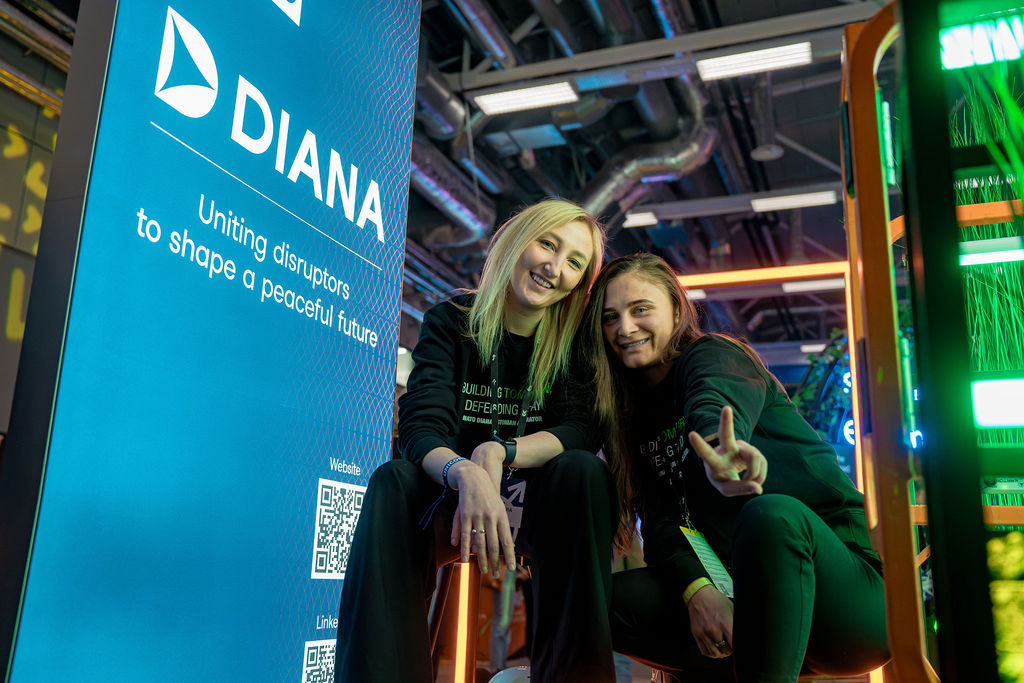
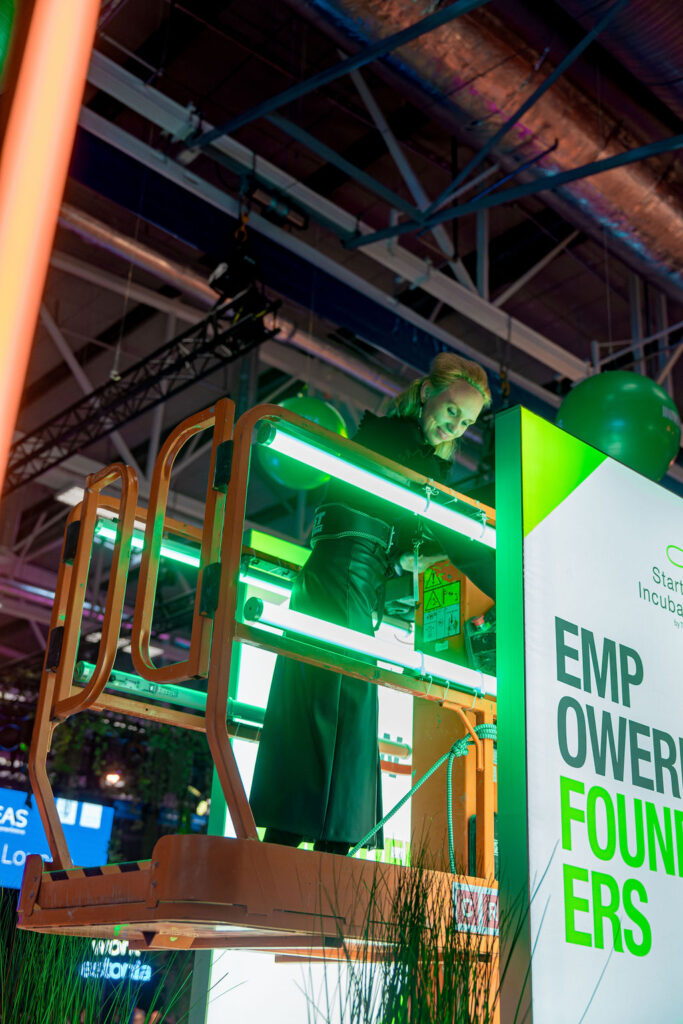
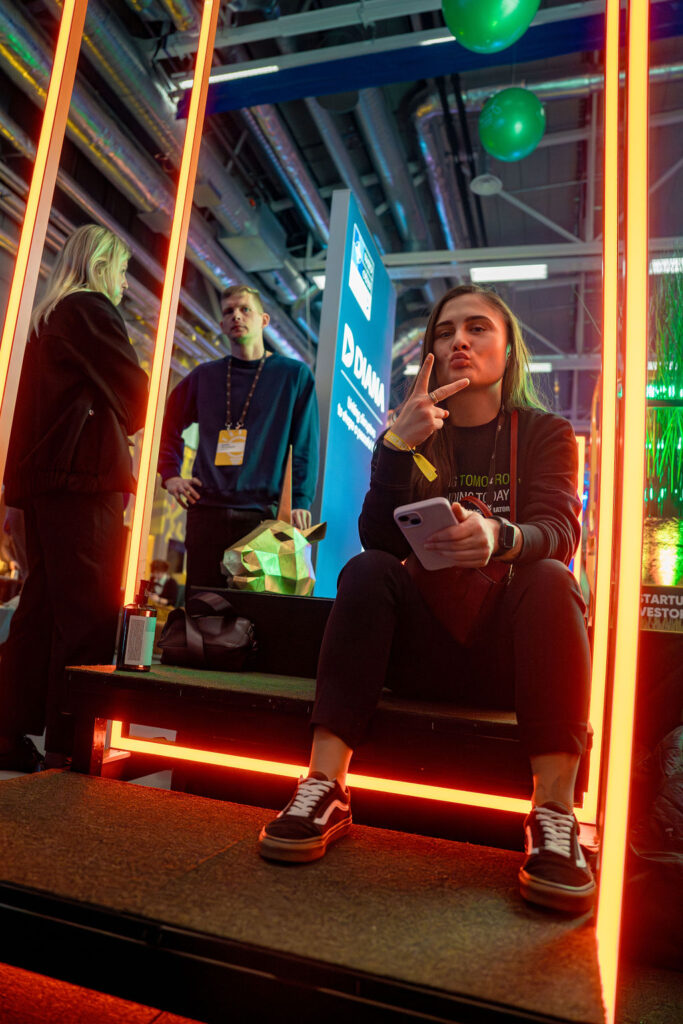
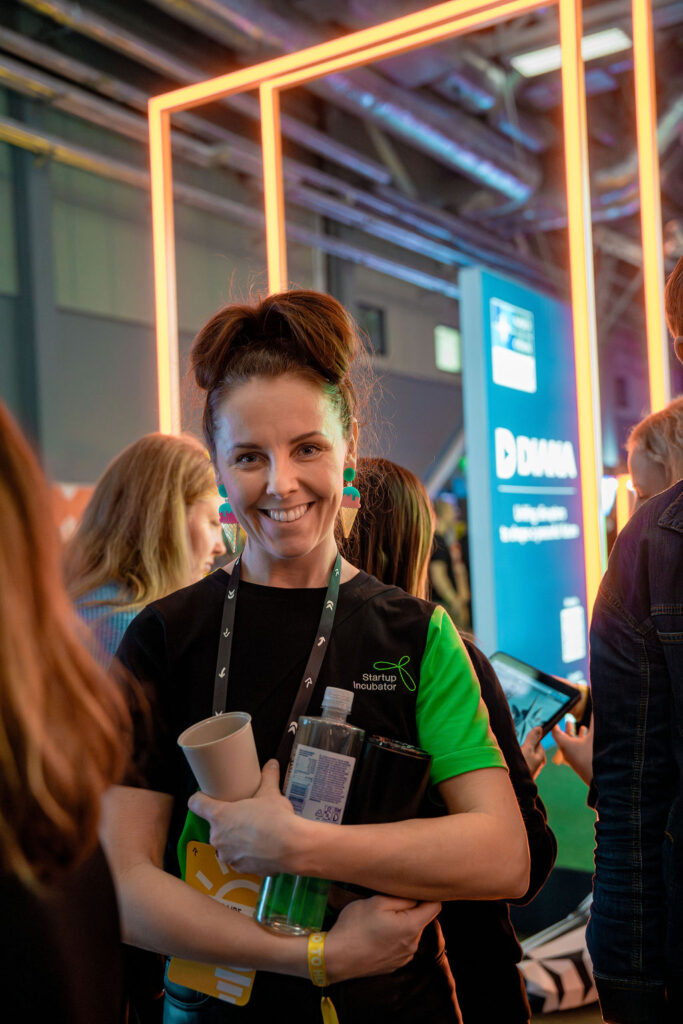
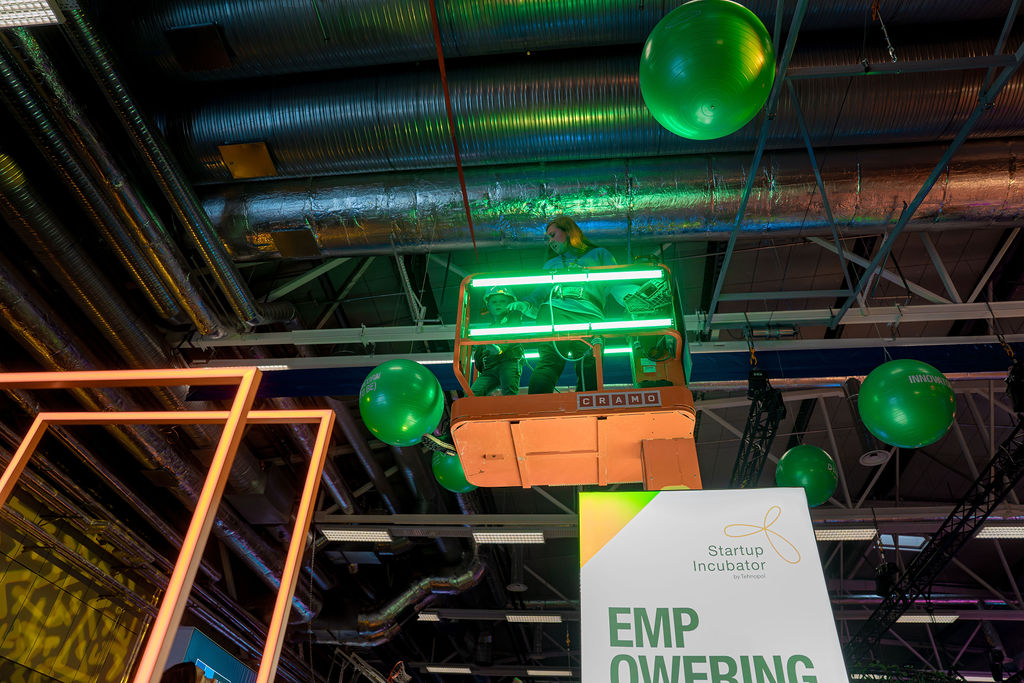
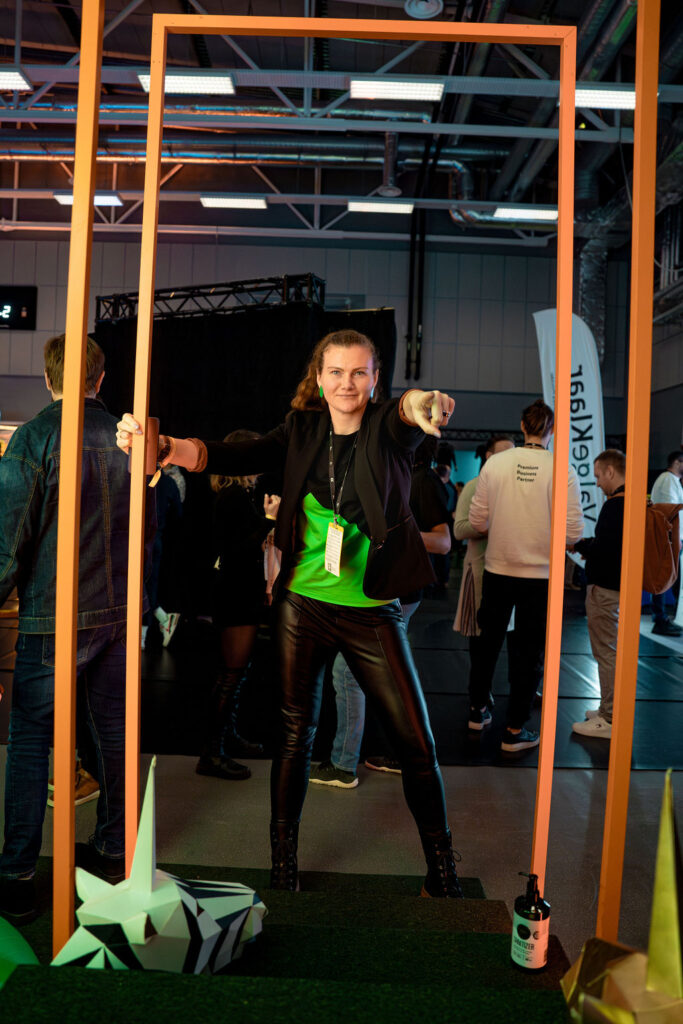
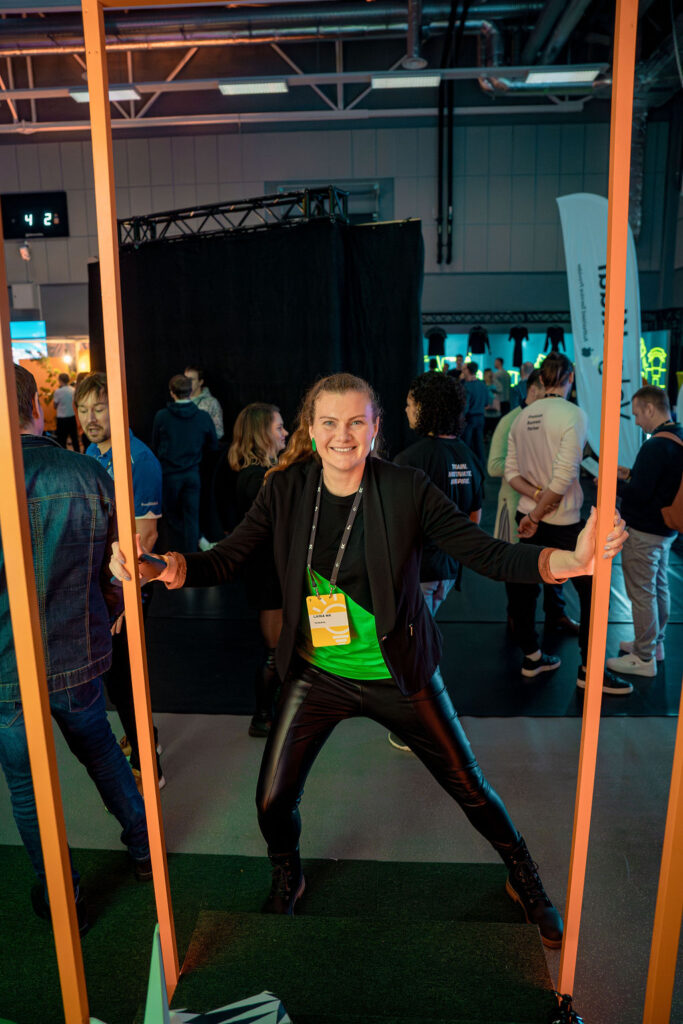
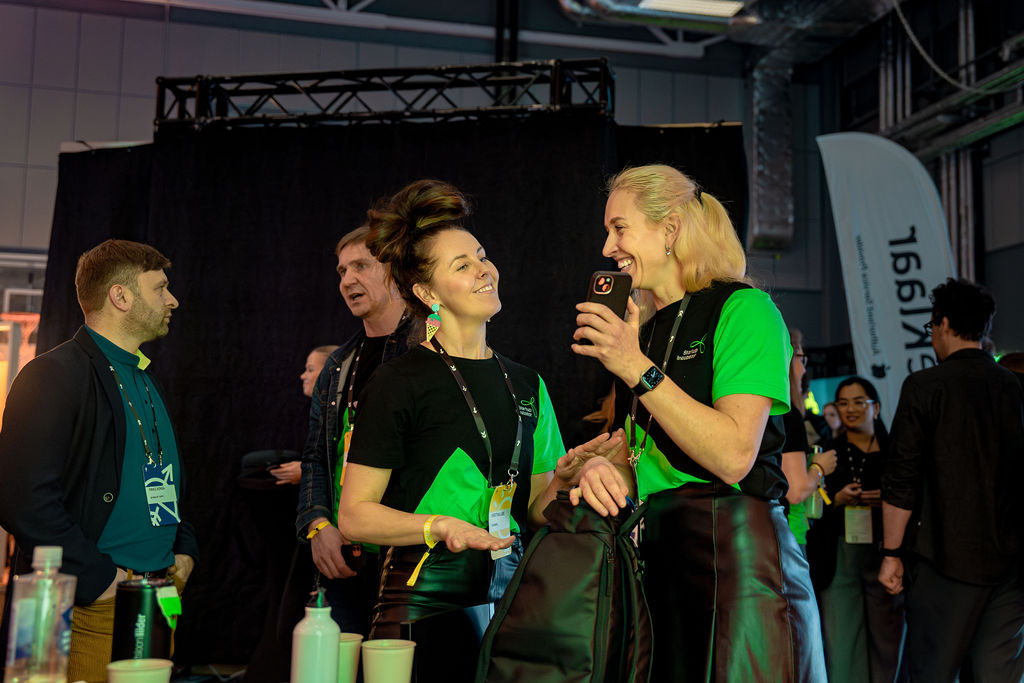
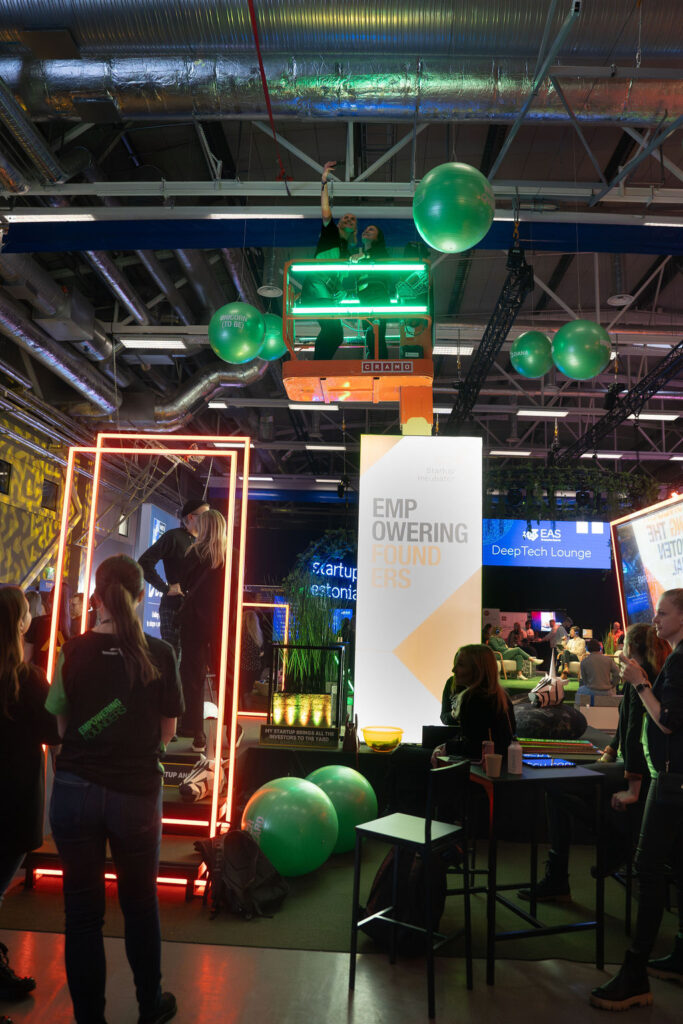
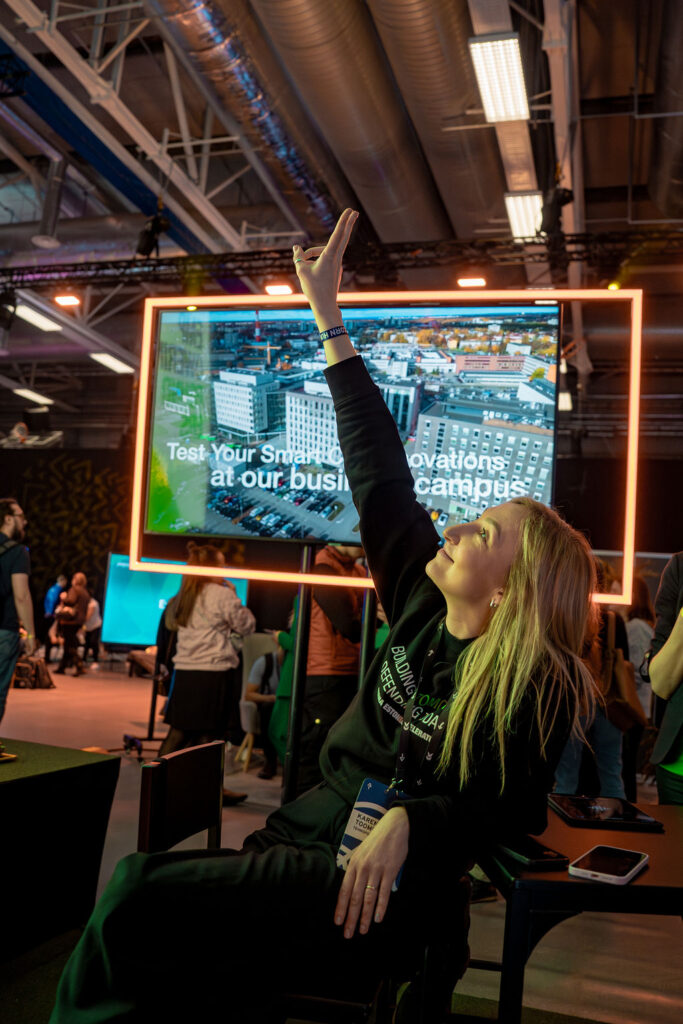
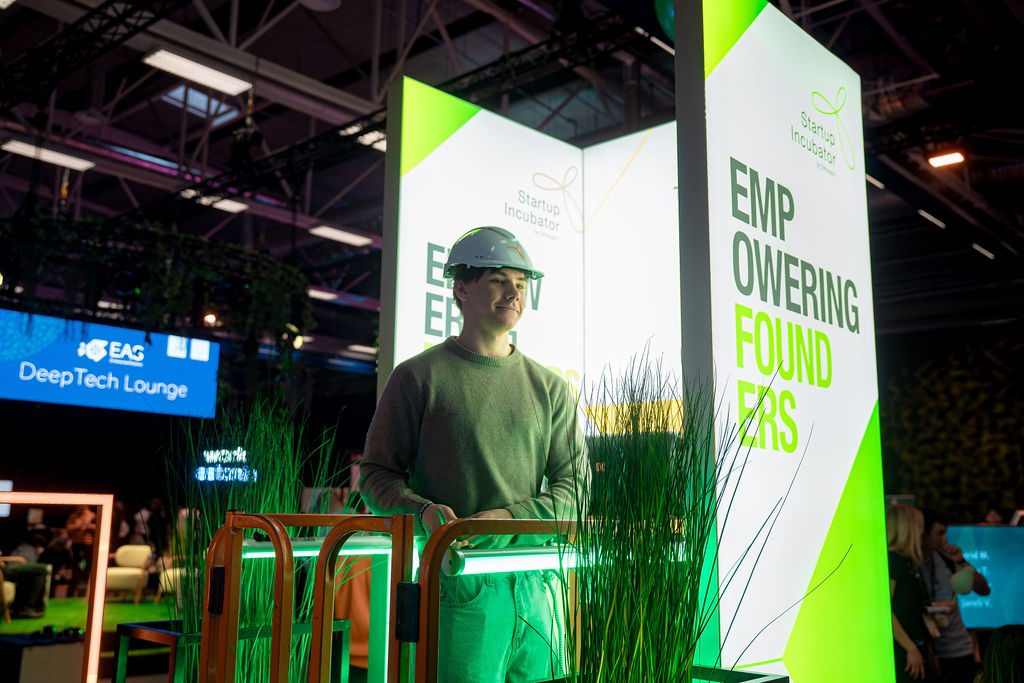
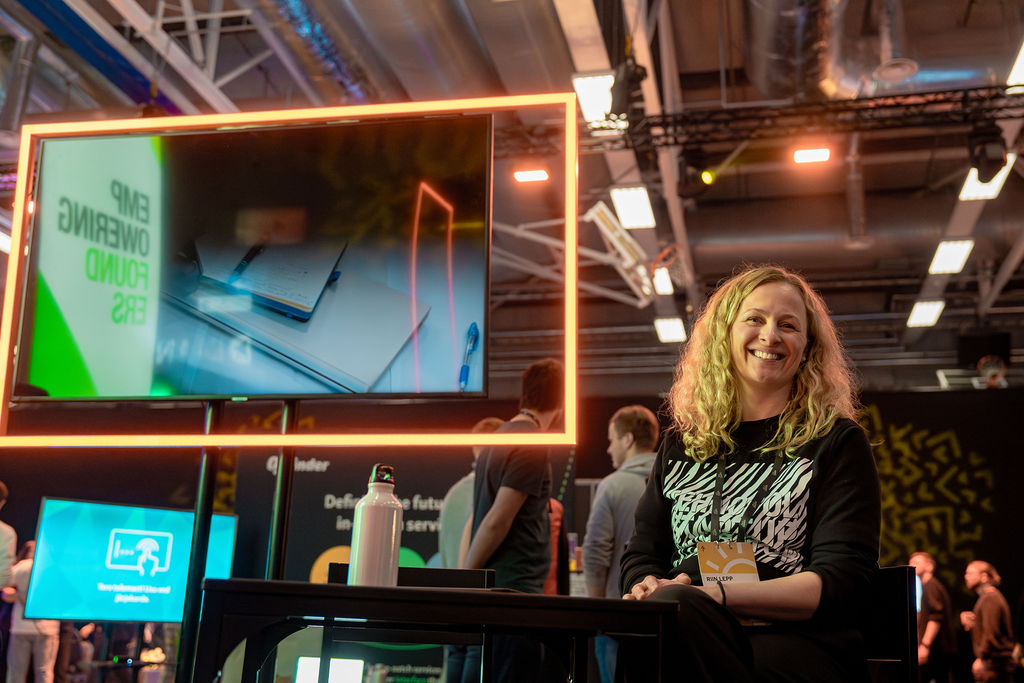
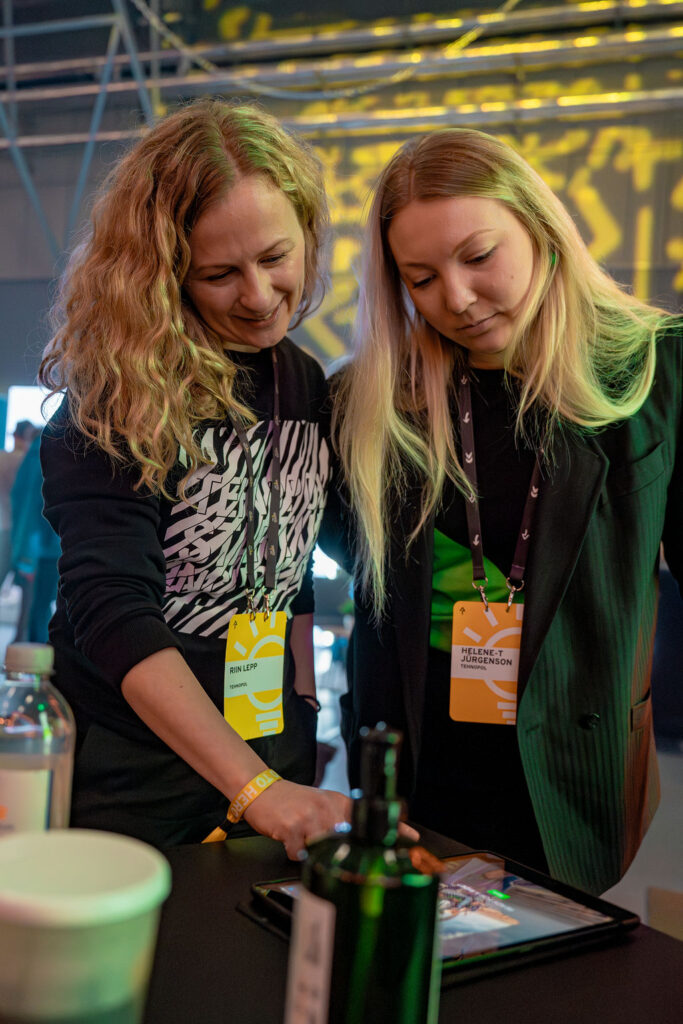
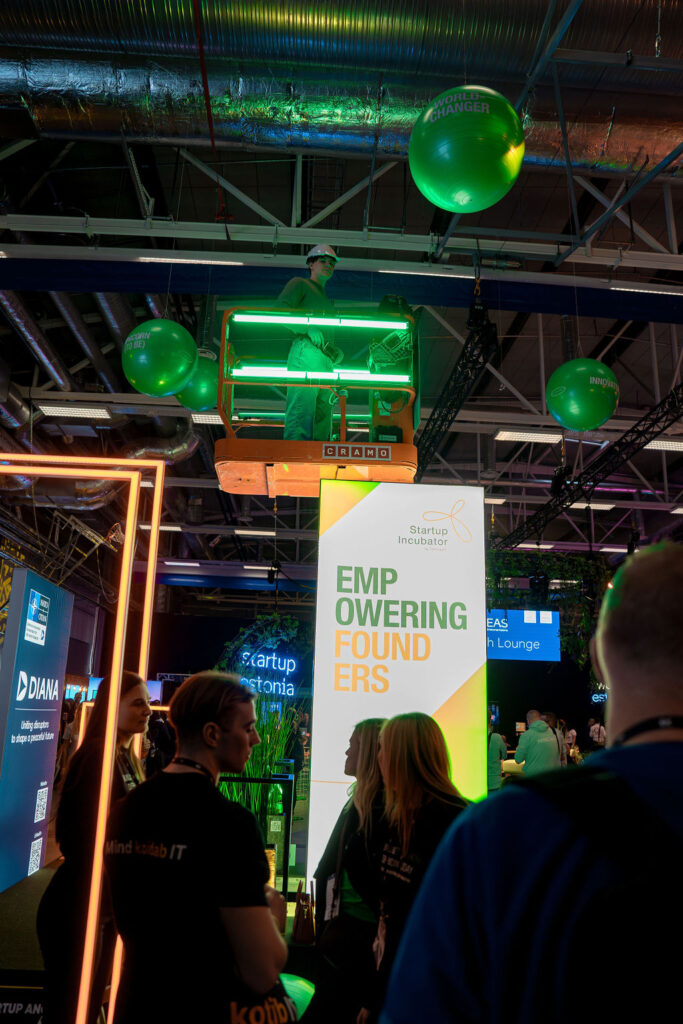
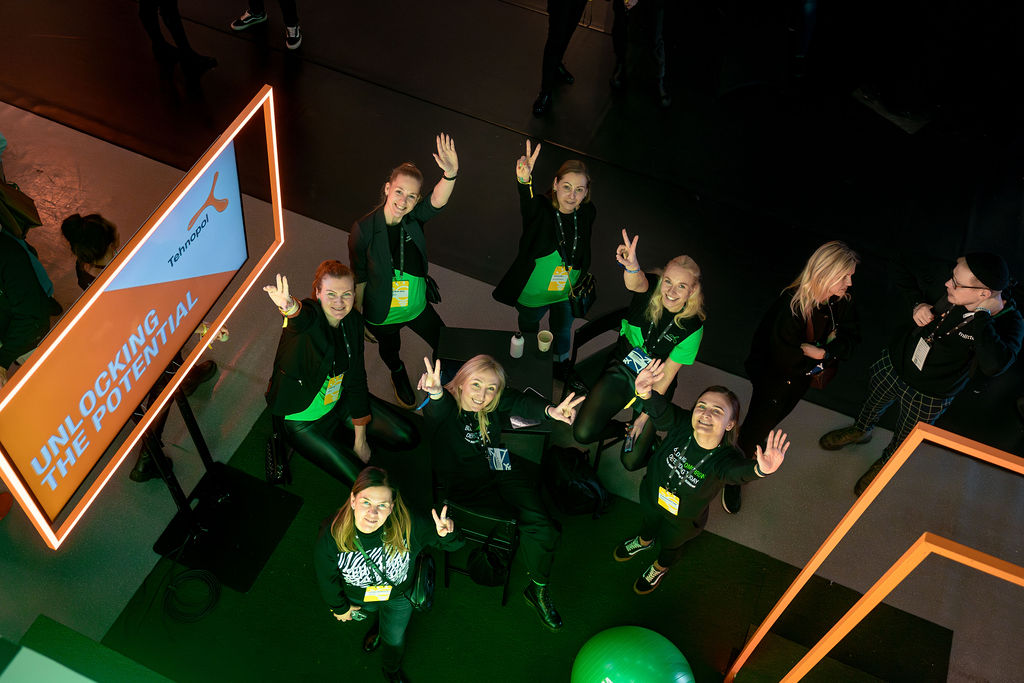
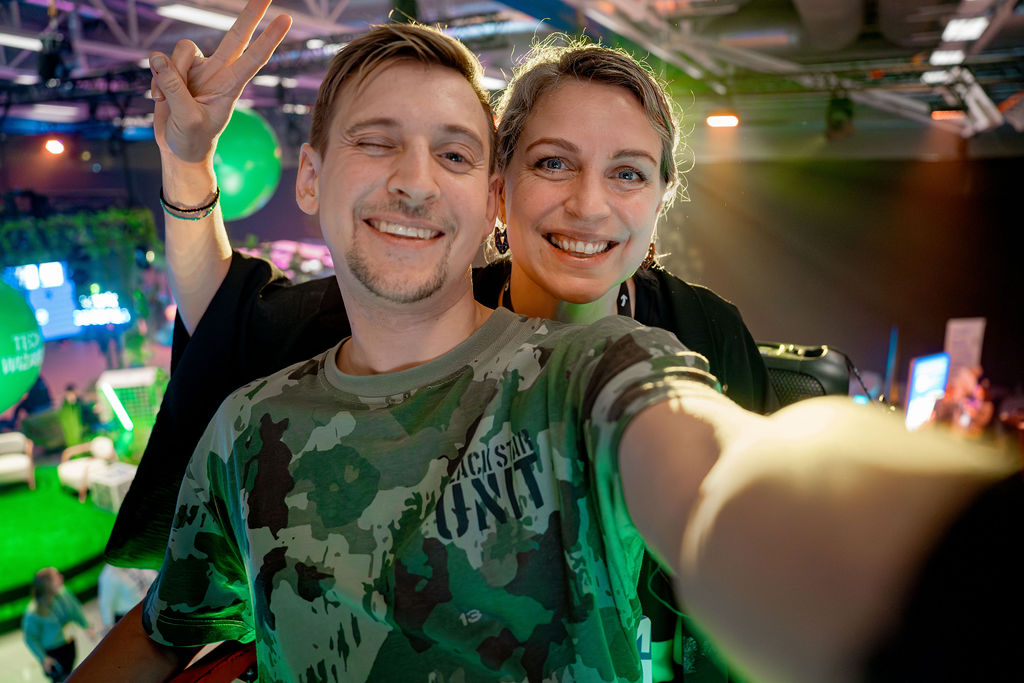
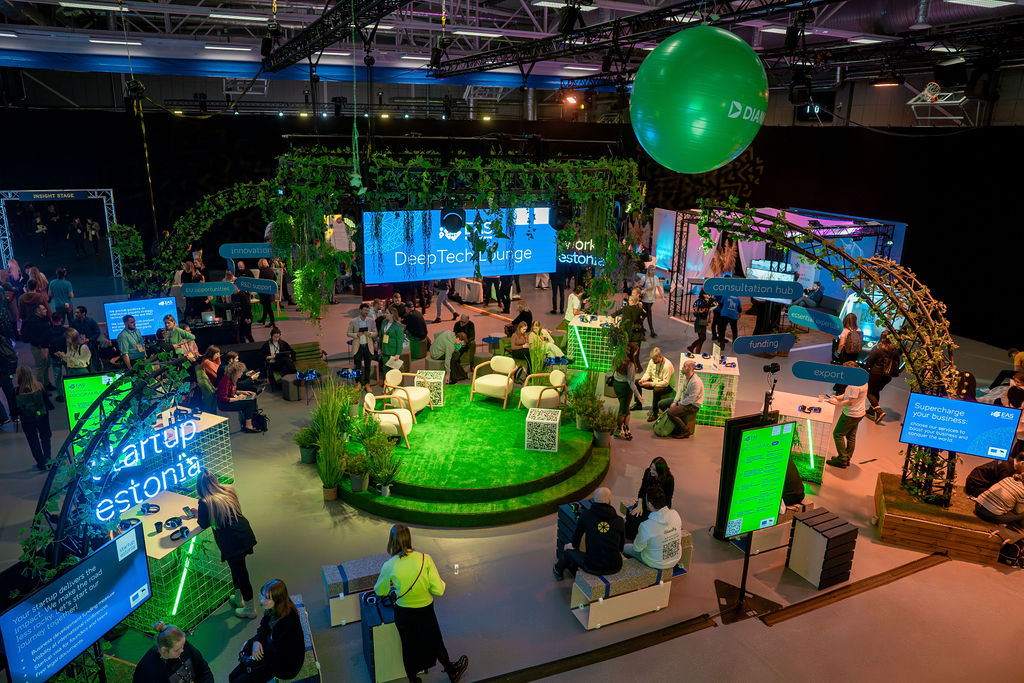
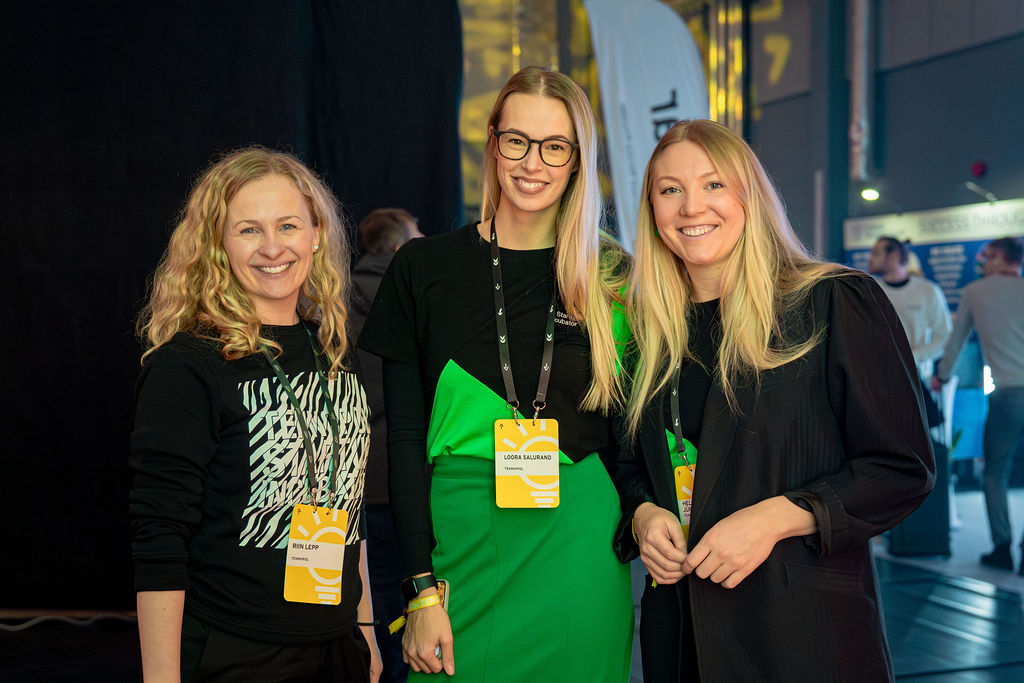
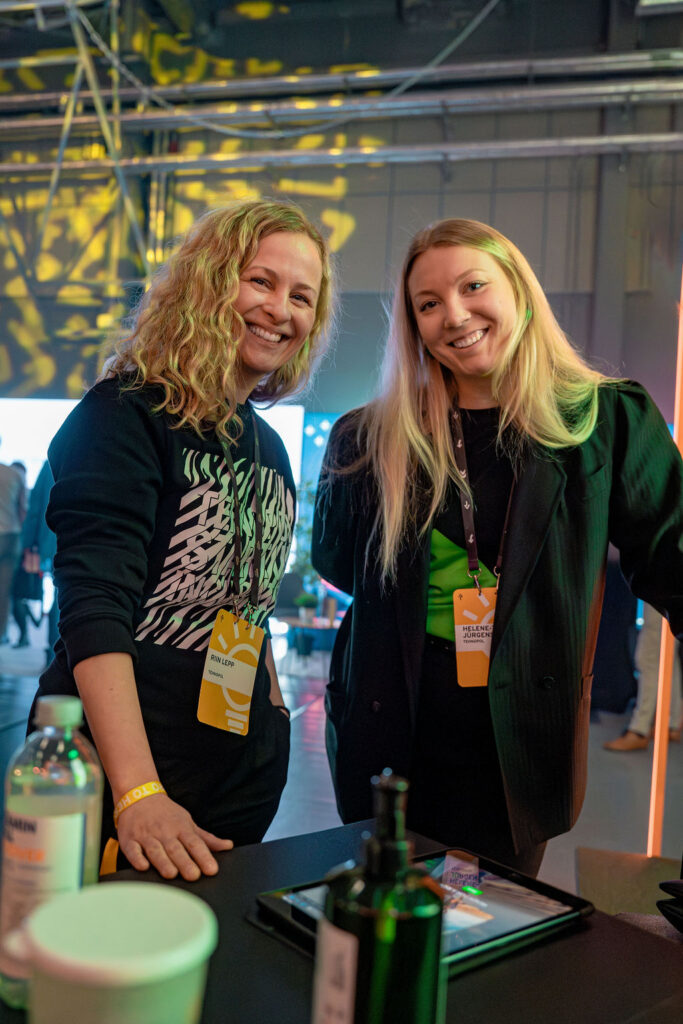
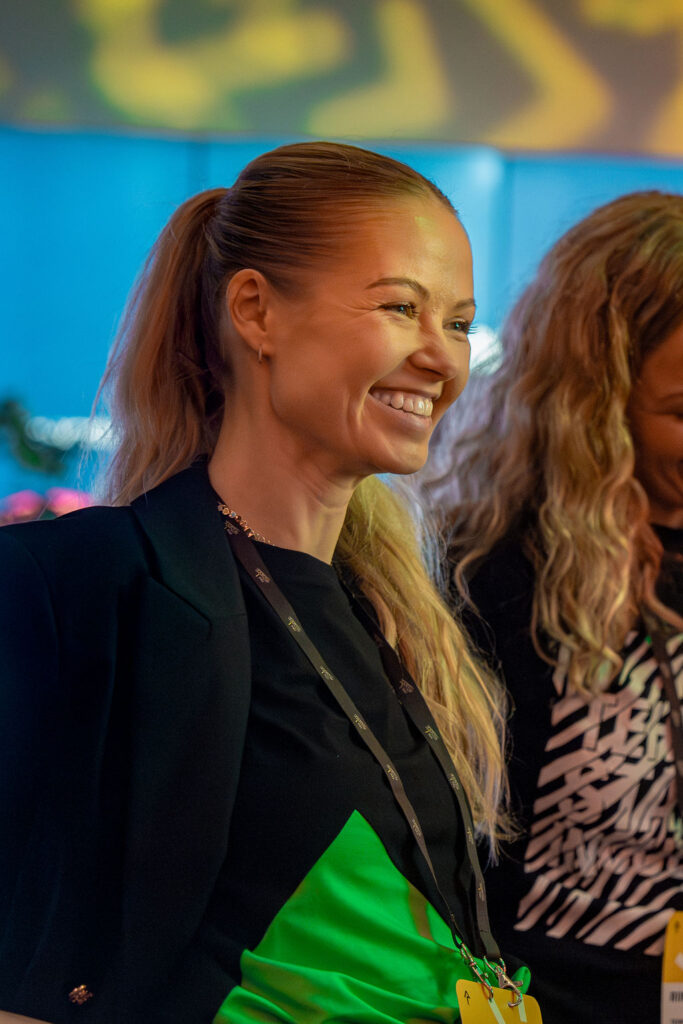
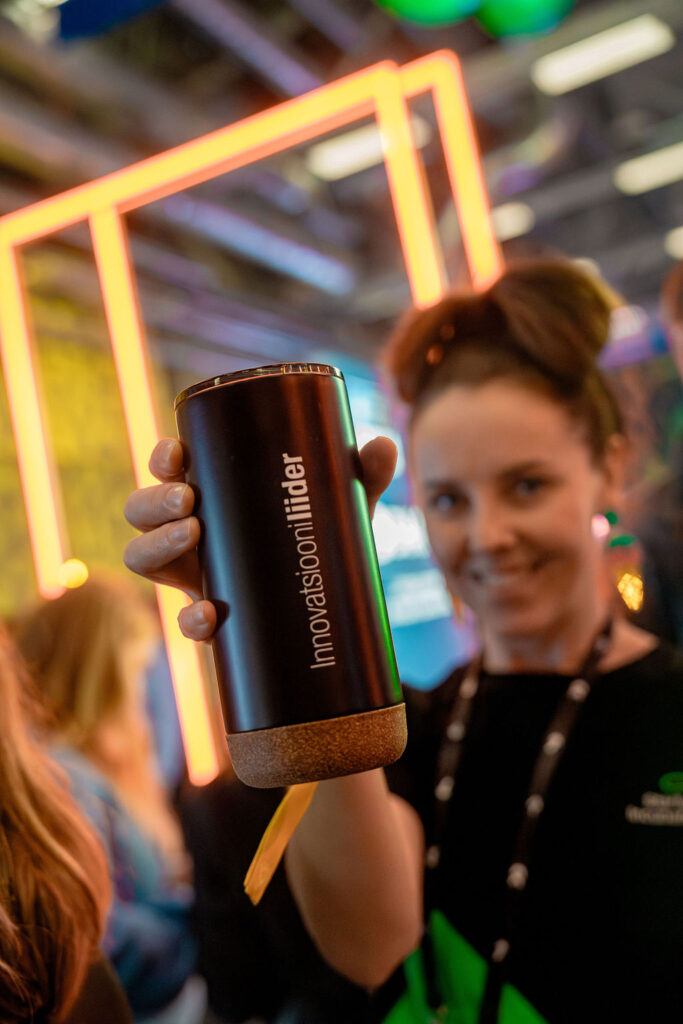
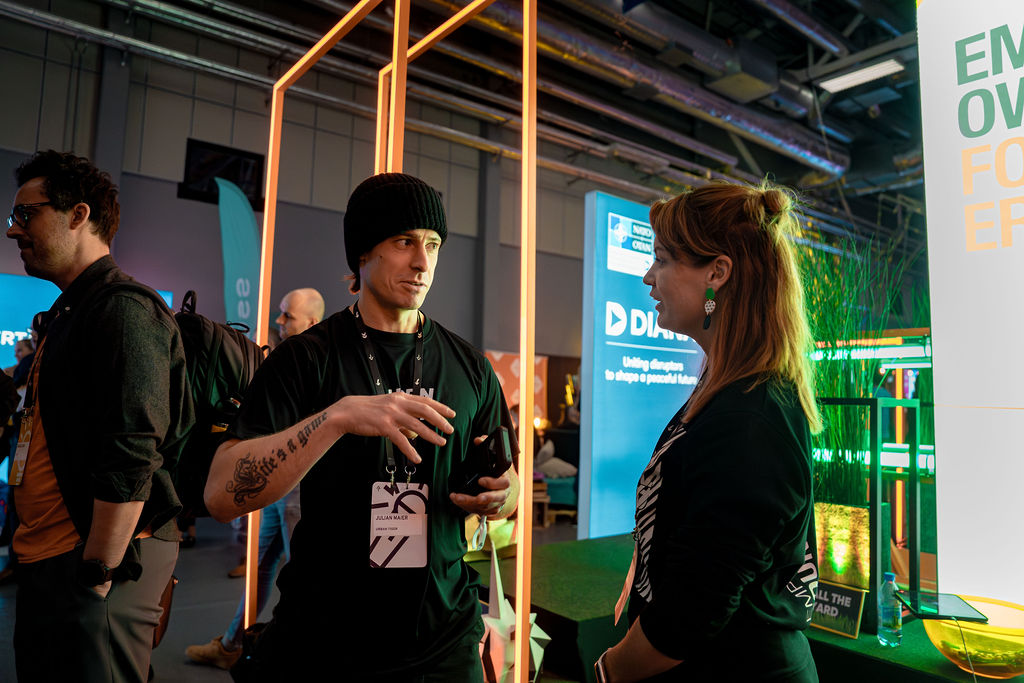
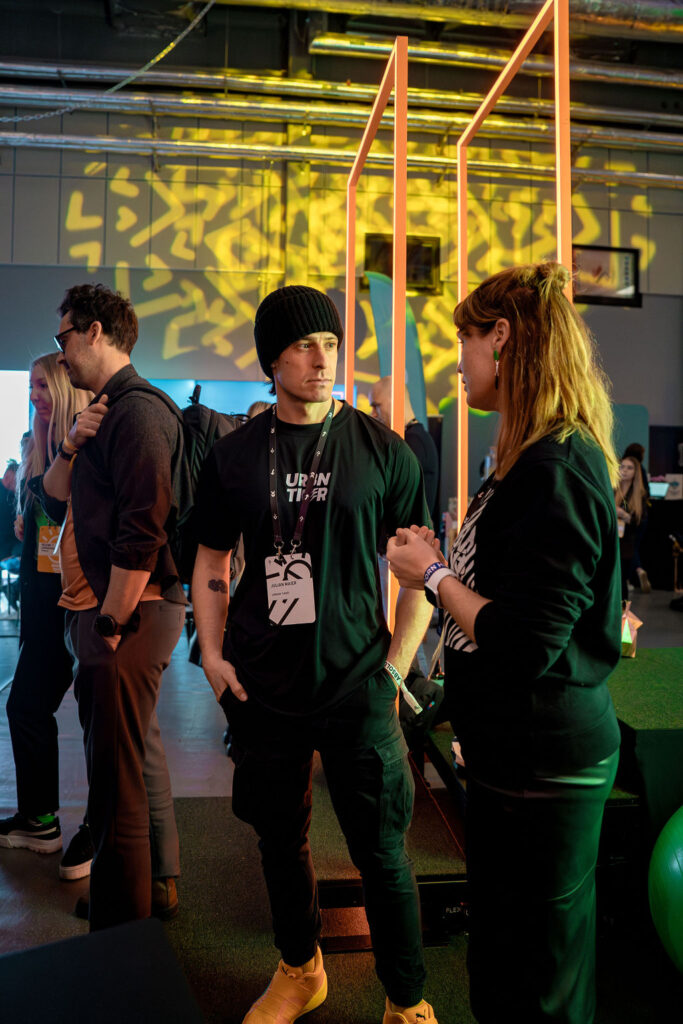
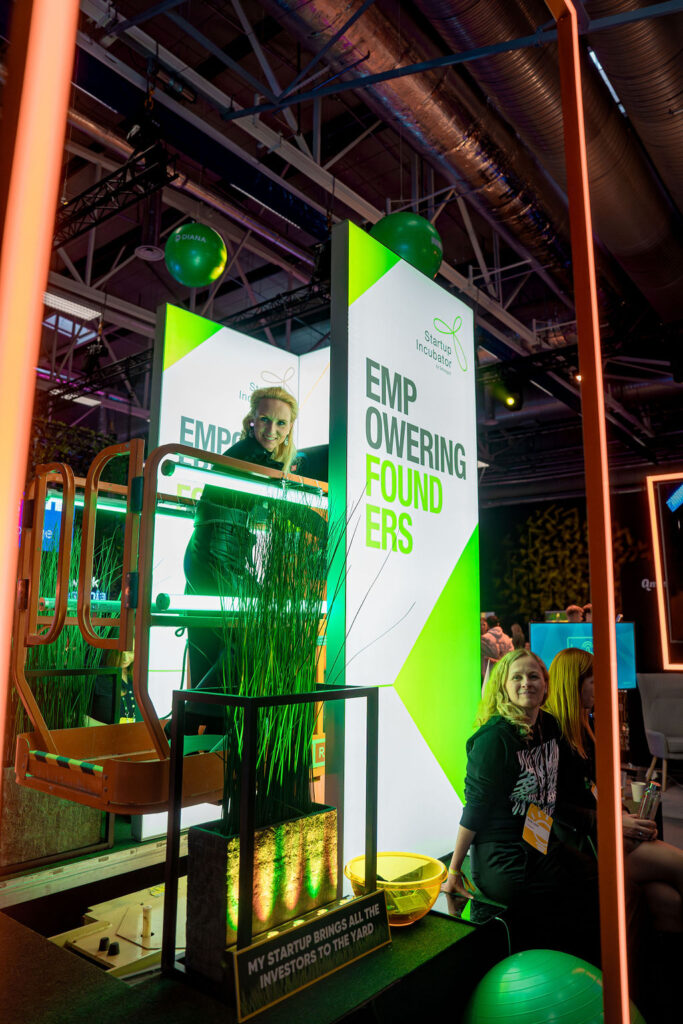
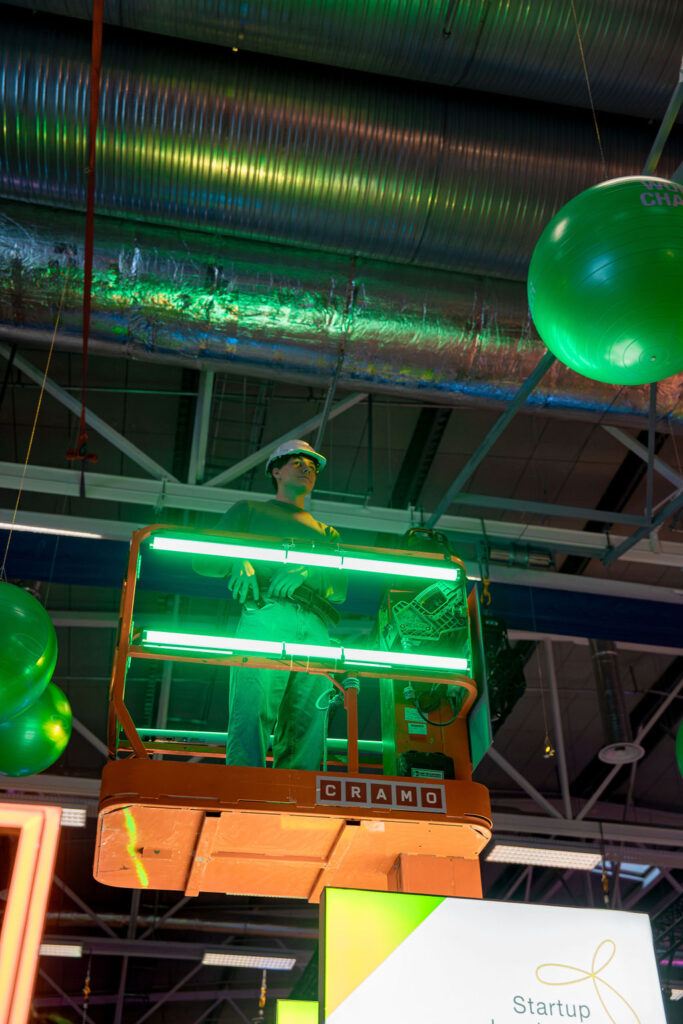
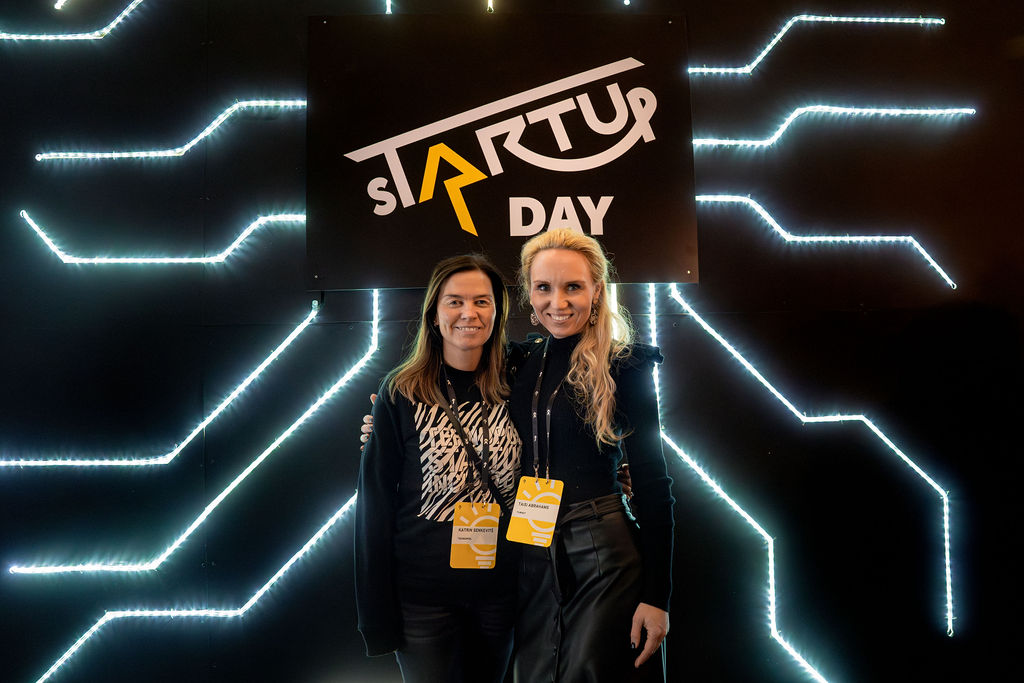
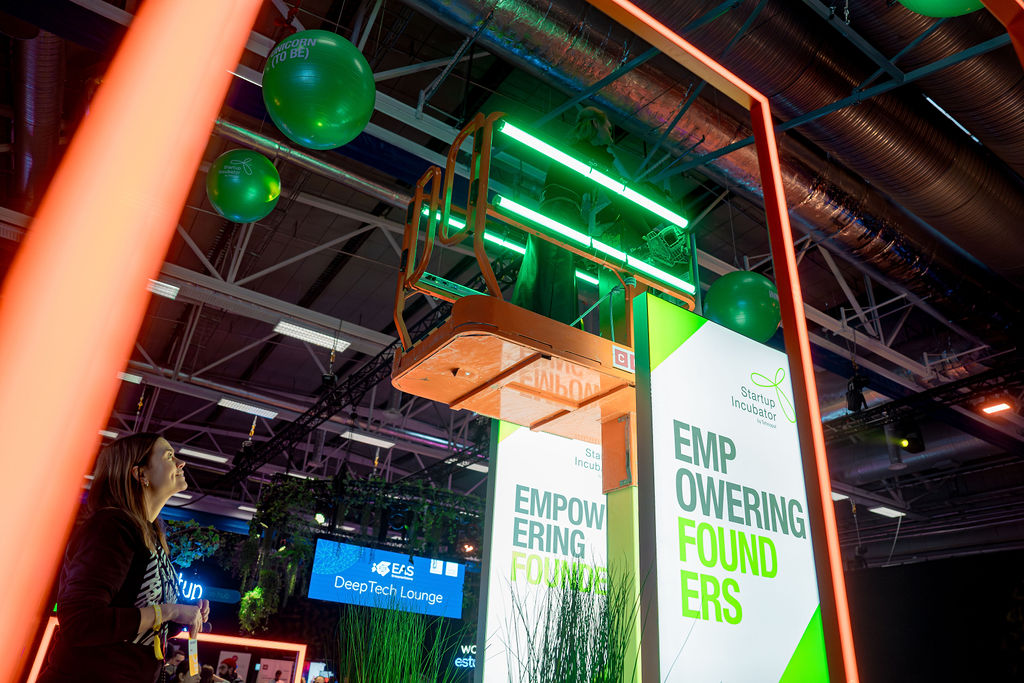
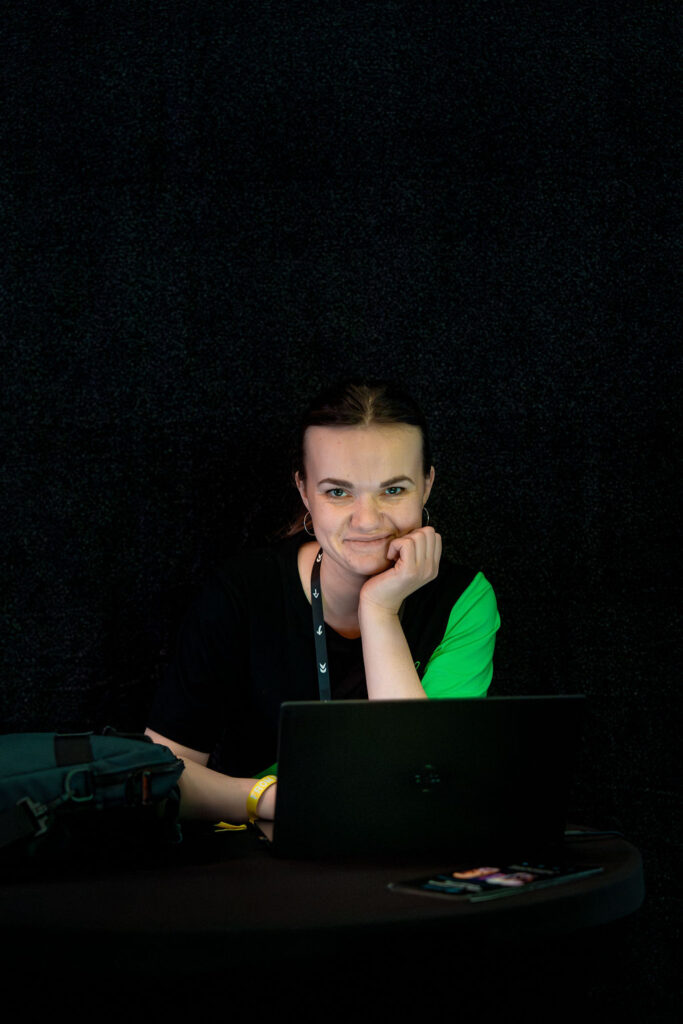
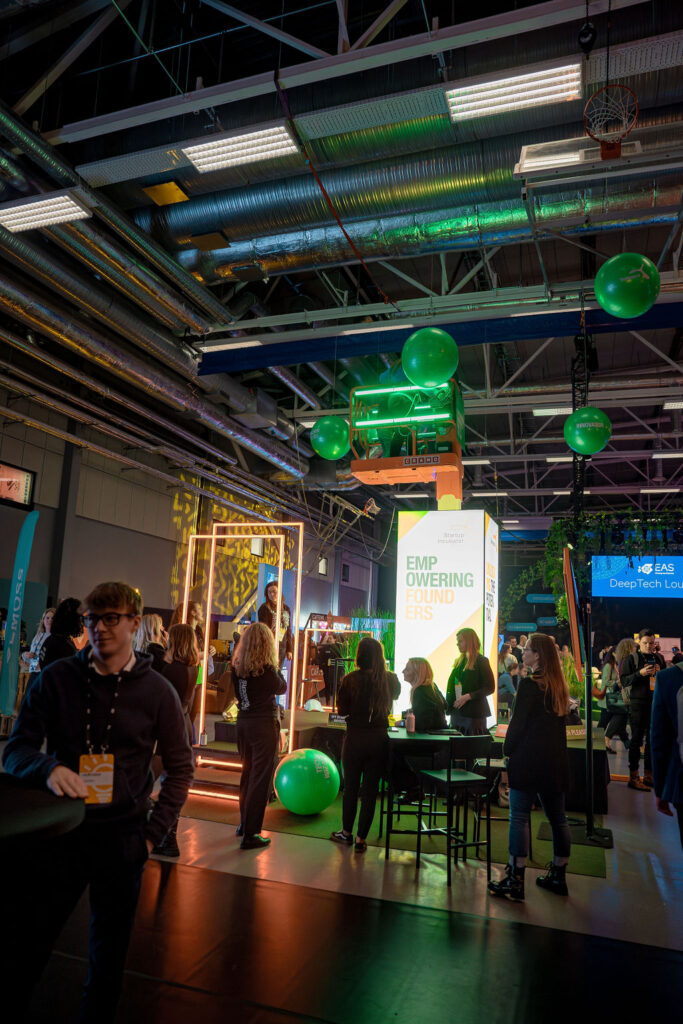
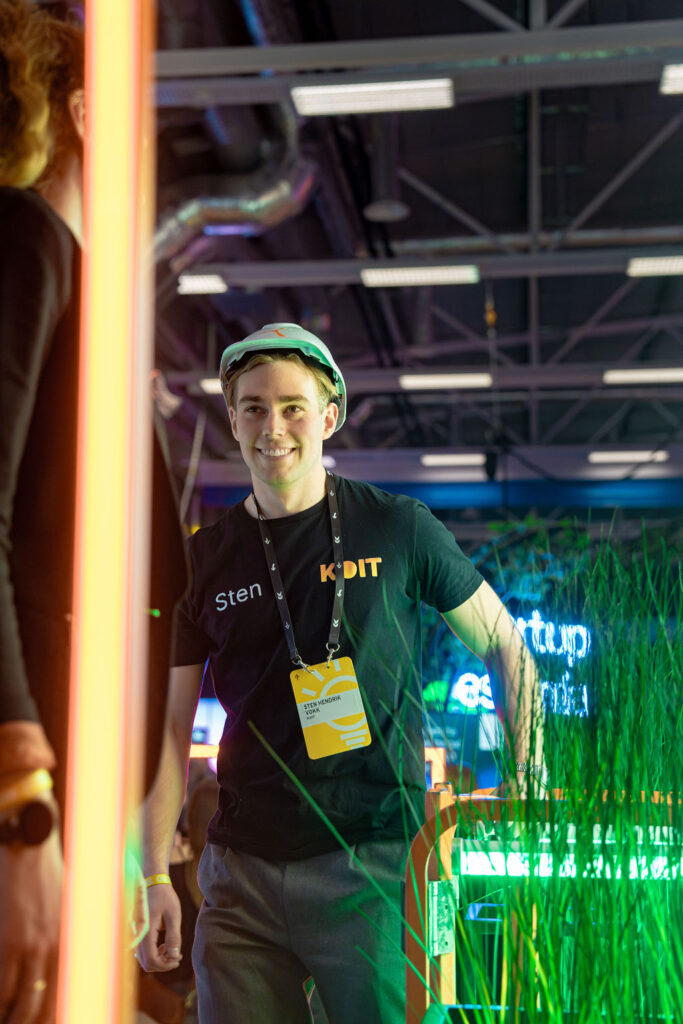
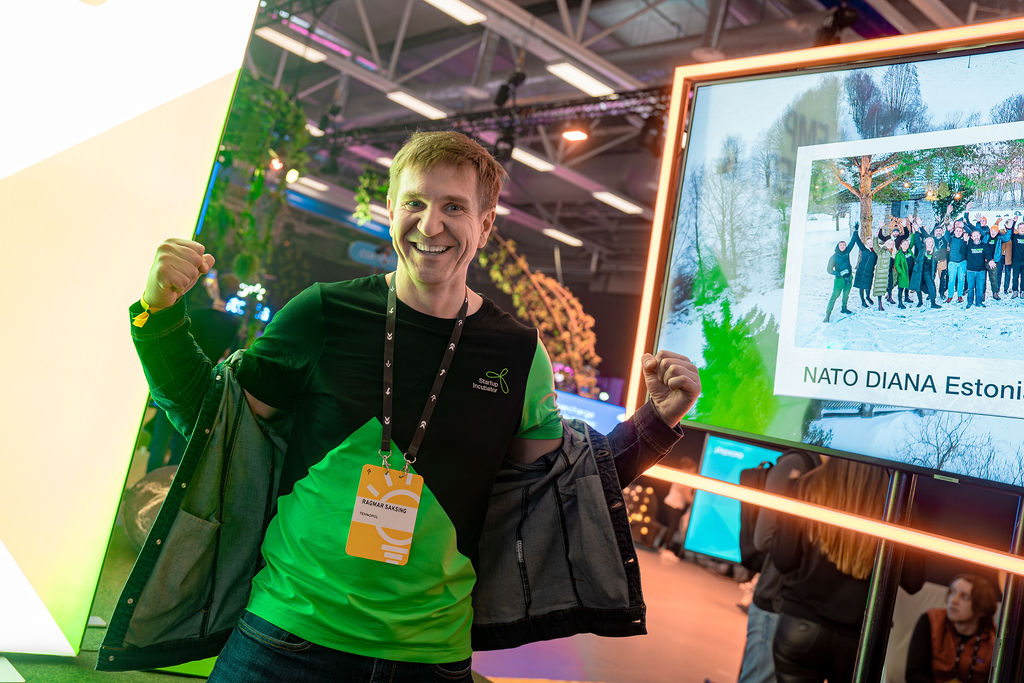
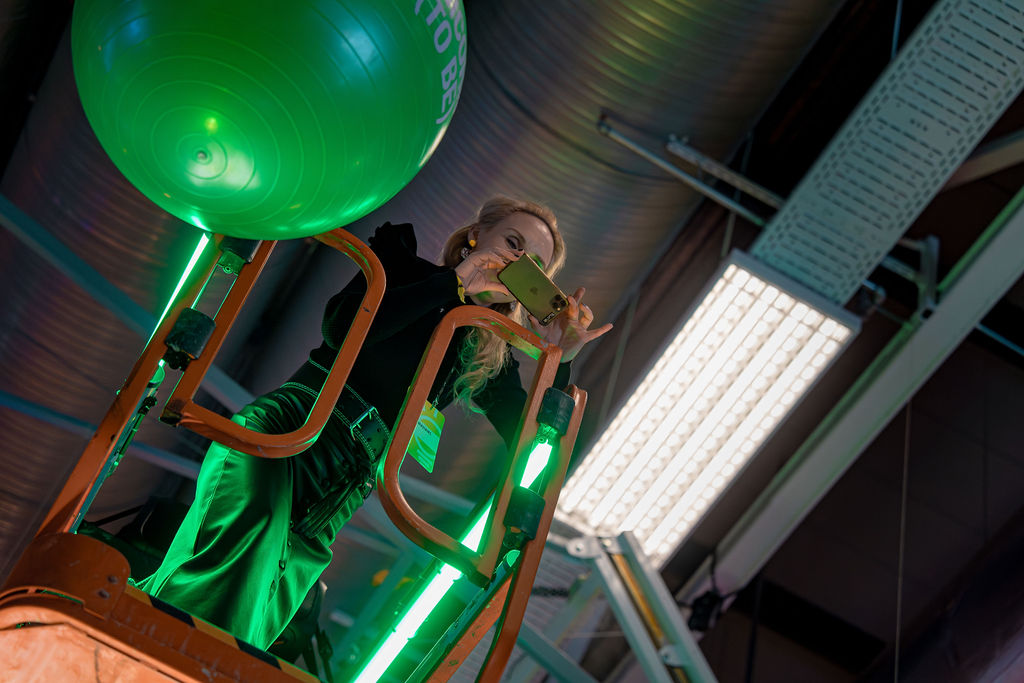
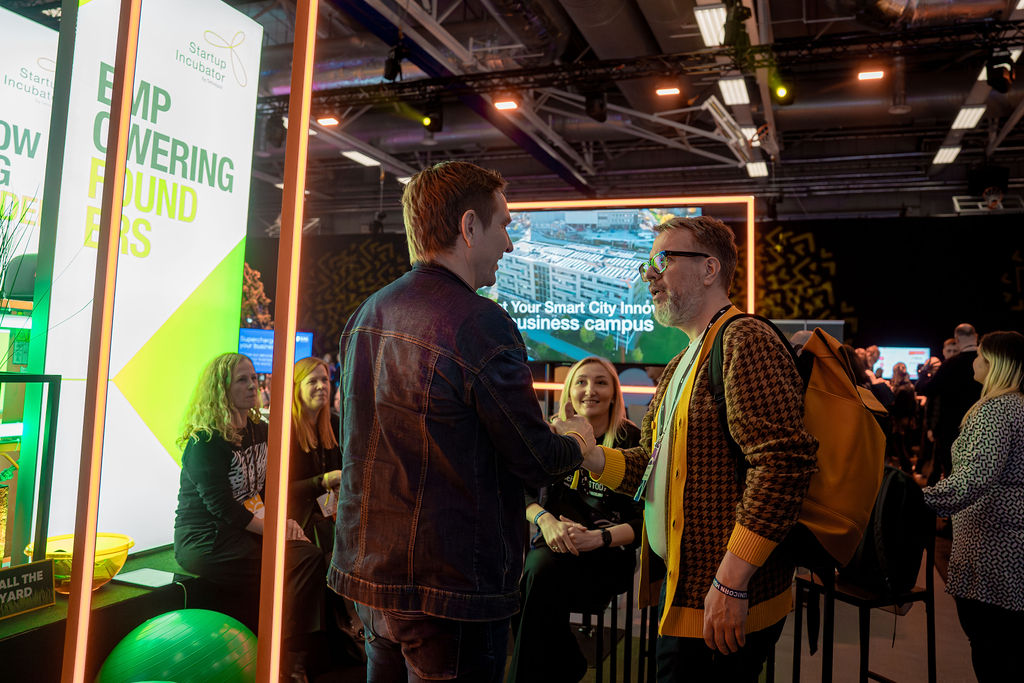
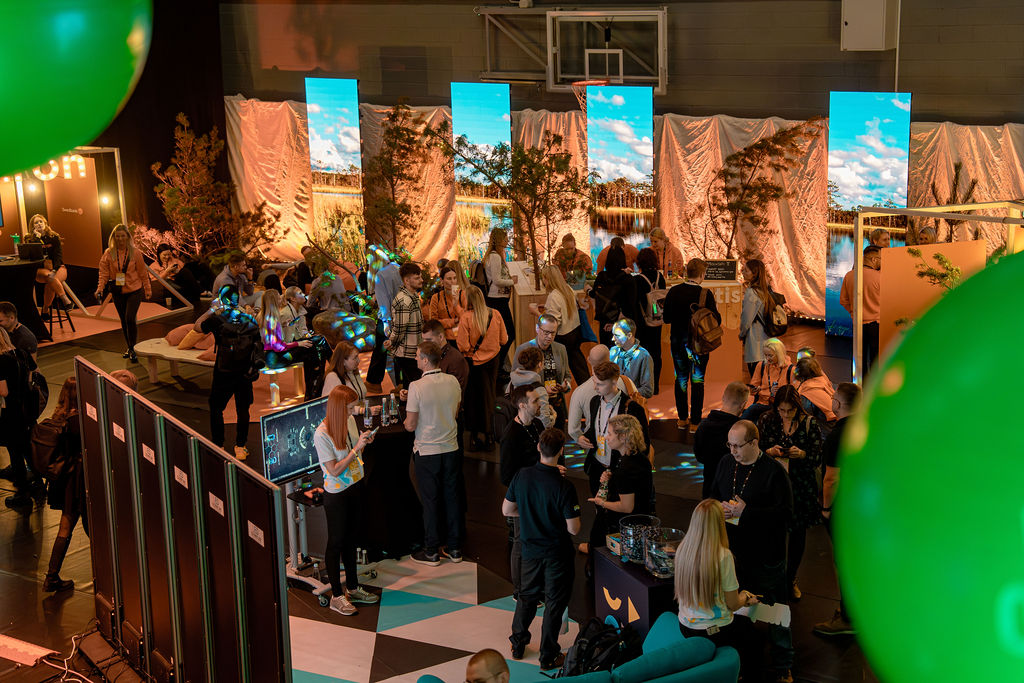
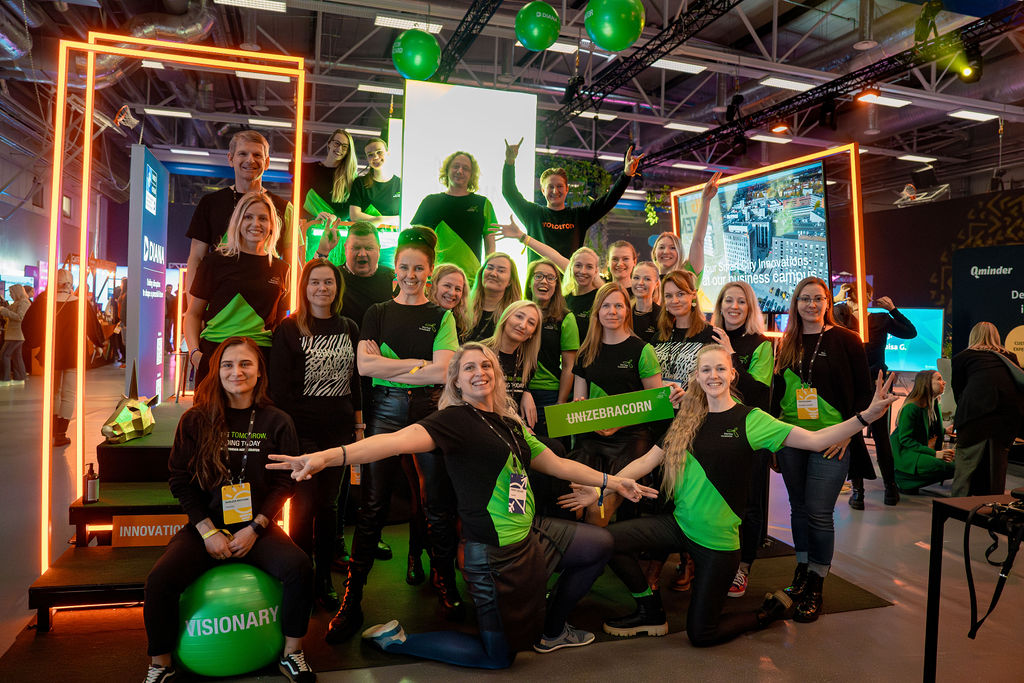
Opening of the NATO DIANA innovation accelerator brought defence experts and entrepreneurs from around the world to Estonia
On 11 January at the Tehnopol Science and Business Park, the NATO DIANA Estonian Accelerator was officially opened and nine companies that will start developing their ideas here presented solutions they have in the works.
The Tehnopol Startup Incubator in Tallinn is one of five initial locations, where the NATO DIANA innovation accelerators are being opened in its pilot year. Across the Alliance, over 1300 companies applied for participation in the accelerator, which will develop dual use technologies. The final selection included 44 companies, of which 9 will start developing their concepts in Estonia. All companies included in the accelerator will receive a grant of 100 000 euros, and the best among them have the opportunity to receive up to 300 000 euros in addition.
Expressing his gladness in seeing the NATO DIANA innovation accelerator finally opening in Estonia, Minister of Defence Hanno Pevkur said, “I hope that you take the energy in your pitches and bring the potential to life as soon as possible. Looking around here today, I see immense capacity to make a difference not only on the battlefield, but also in the civil sector.”
Secretary General of the Ministry of Economic Affairs and Communications Ahti Kuningas highlighted the strength of DIANA in support of developing dual use technologies. “Estonia is known for startups and the knowledge specific to them will certainly be useful in launching DIANA as well. We have great expectations for solutions to better ensuring energy supply through the use of hardware, software and cyber solutions, but also through sharing knowledge about undersea infrastructure and artificial object surveillance or secure data exchange.”
According to the Head of the Tehnopol Startup Incubator and the NATO DIANA Estonian Accelerator Kadri Tammai, it is already clear that among the 9 companies there are several examples of cyber defence technologies that would be useful for Estonian critical infrastructure owners and that can also provide security in case of attacks against quantum computers. “In addition, over the next six months we will support technologies in the accelerator that will allow for mapping the seabed and scan it more precisely than before, as well as innovative ultra-light alternative energy cells for drones,” explained Tammai.
CEO of Tehnopol Indrek Orav said that the hard work has come to fruition and he is glad that Tehnopol has the honour of being among the first to start bringing the DIANA accelerator programme to life. “This unique symbiosis of a programme created for companies, test centres and direct financing provides fertile ground for the rapid development of innovative technologies. With its more than 20 years of experience in supporting startups and already established companies, Tehnopol is sure to support the emergence of new success stories within the DIANA programme companies as well. Our team and network of experts and mentors is ready for the challenge and will put forth their best effort,” said Orav.
The nine companies that will develop their ideas in the Estonian accelerator are GaltTec, Lobster Robotics, GIM Robotics, Revobeam, AVoptics, Dronetag, Icewind, Anzen Technology Systems and Goldilock. At the opening, SmartCap introduced financing opportunities for dual-use companies and the NATO DIANA Innovation Fund. In addition, the German company Helsing and Estonian companies Defendec and Milrem shared their success stories in the defense sector.
The accelerator in Estonia is led by the Tehnopol Startup Incubator together with the Sparkup Tartu Science Park and the business accelerator Startup Wise Guys. The funding to start the accelerator in Estonia comes from the Ministry of Economic Affairs and Communications with support from the Ministry of Foreign Affairs, the Ministry of Defence and the city of Tallinn. Estonian contributors to building the pan-Alliance network of testing centres are TalTech, the University of Tartu, Foundation CR14, the National Defence College, the Estonian Academy of Security Sciences, and the Estonian Aviation Academy.
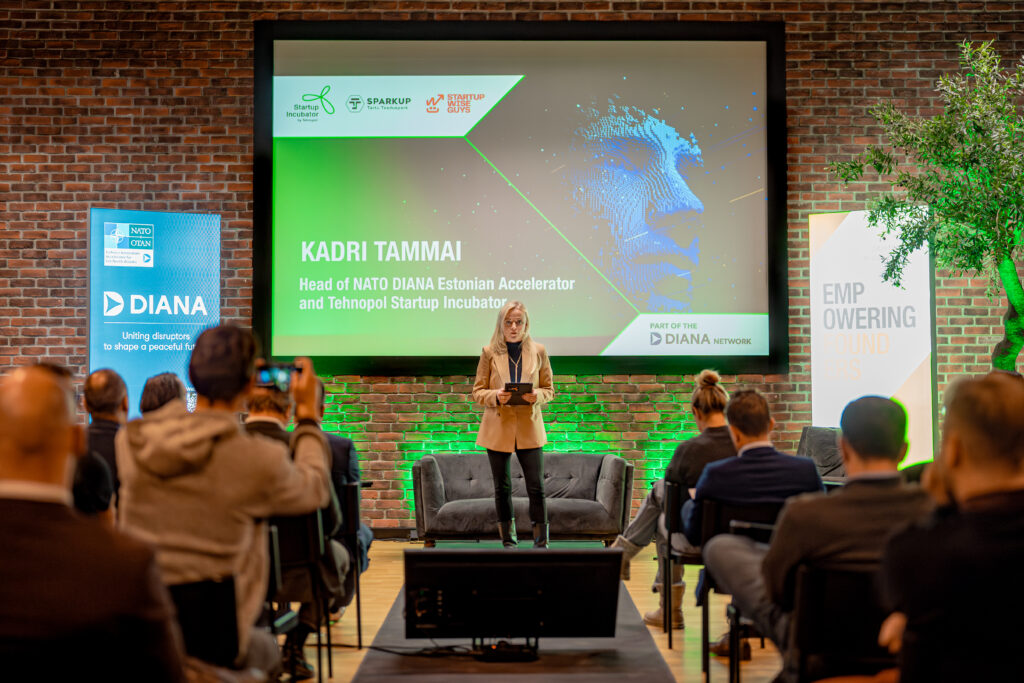
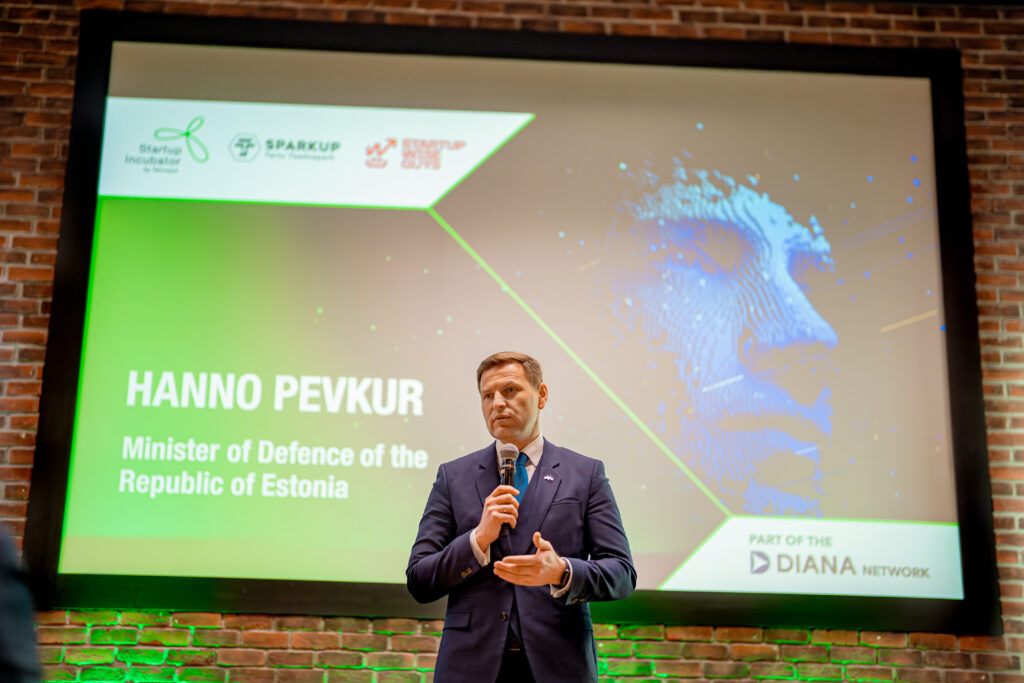
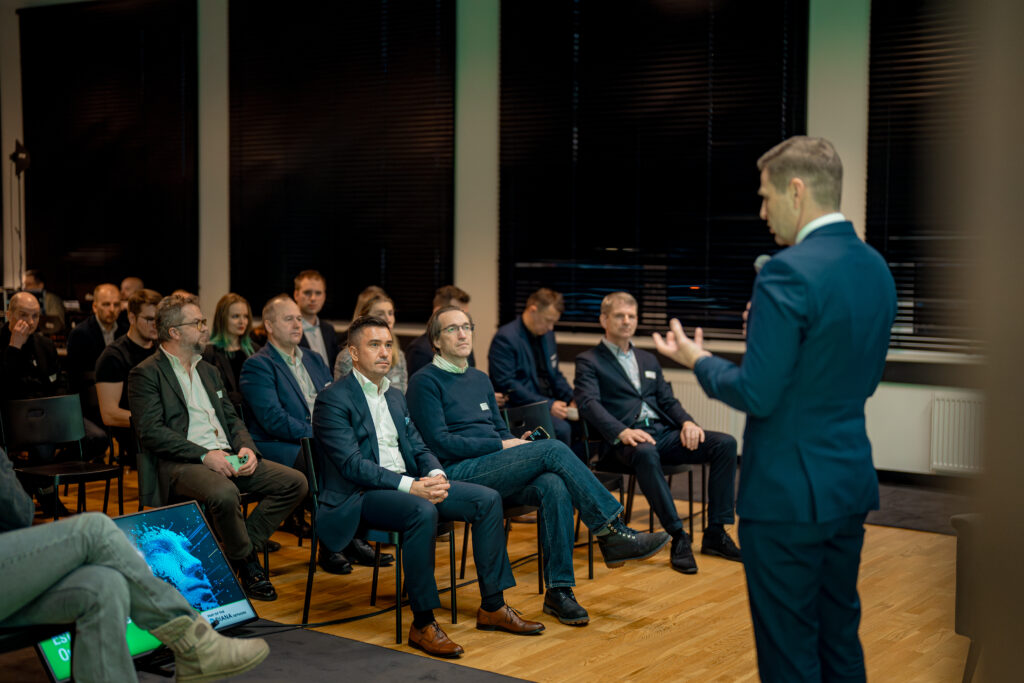
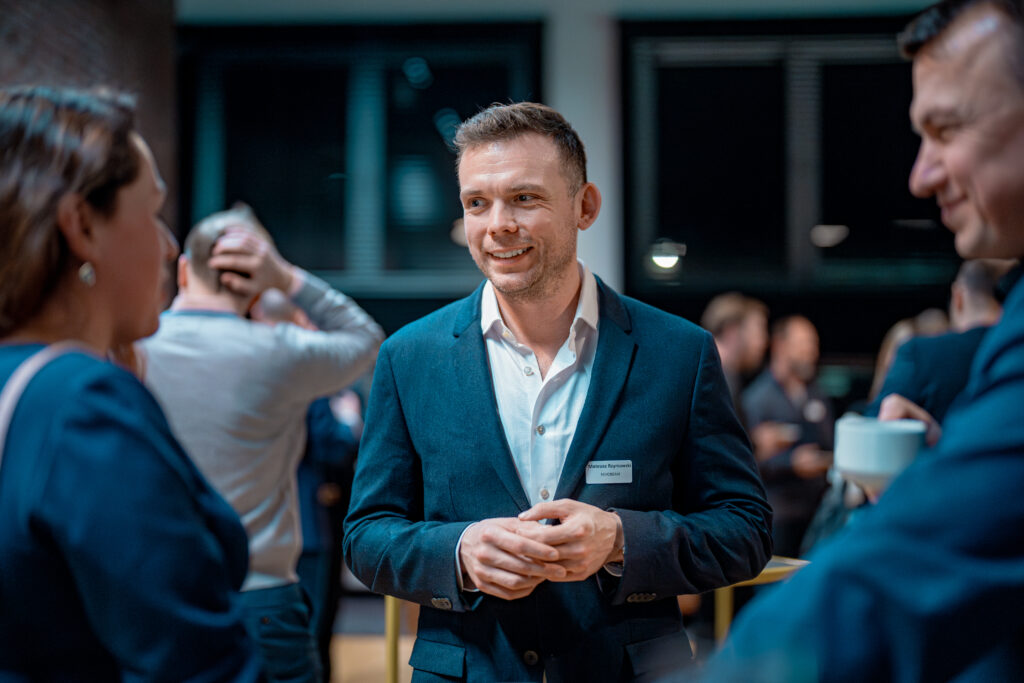
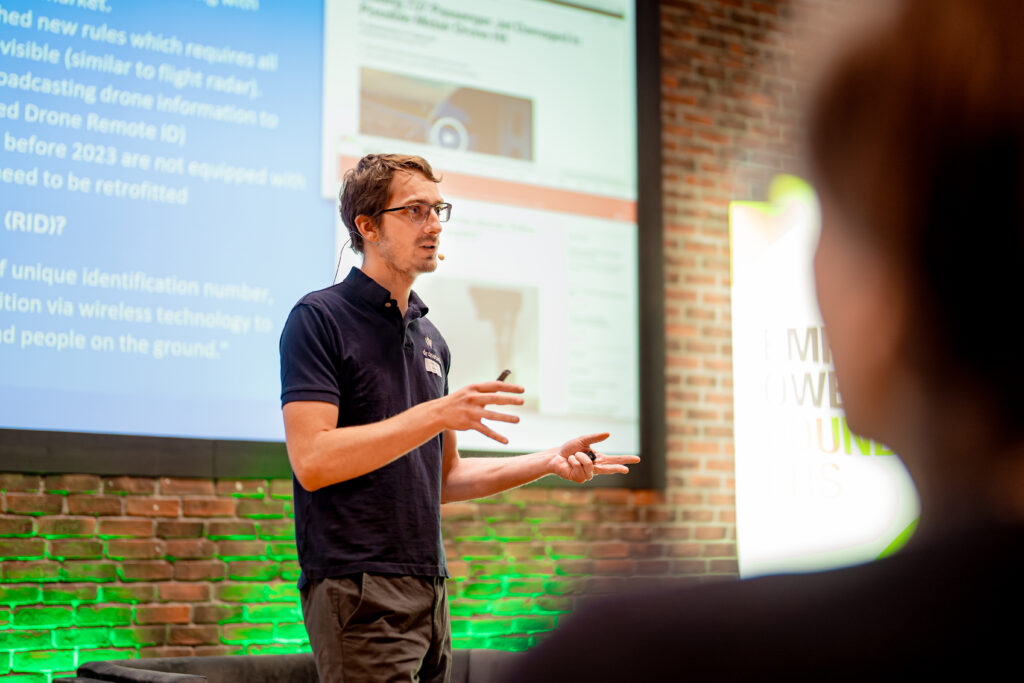
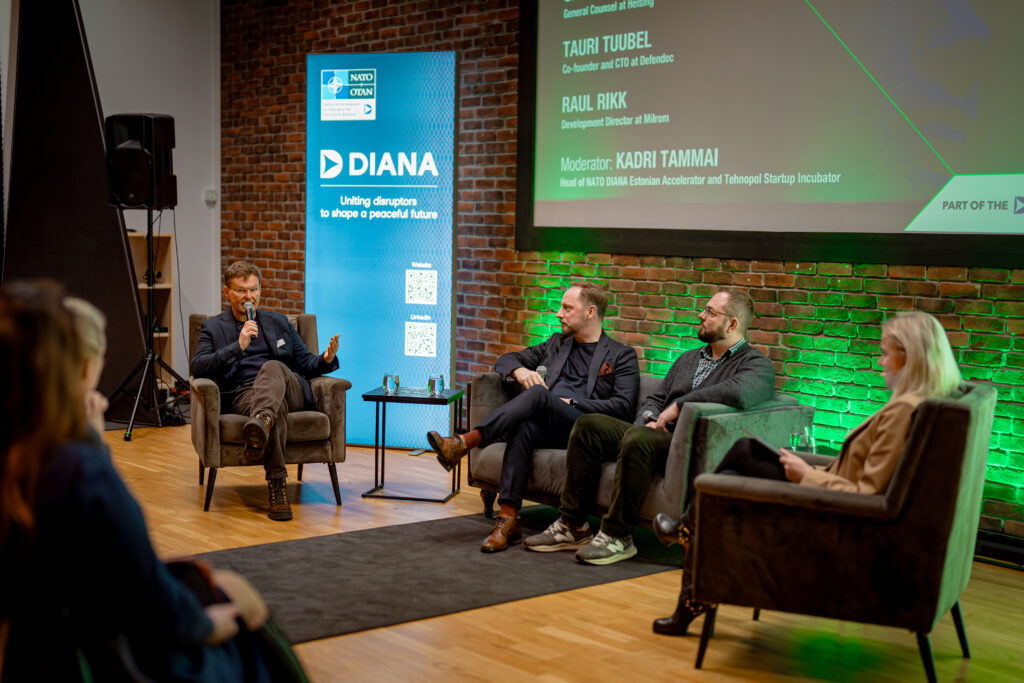
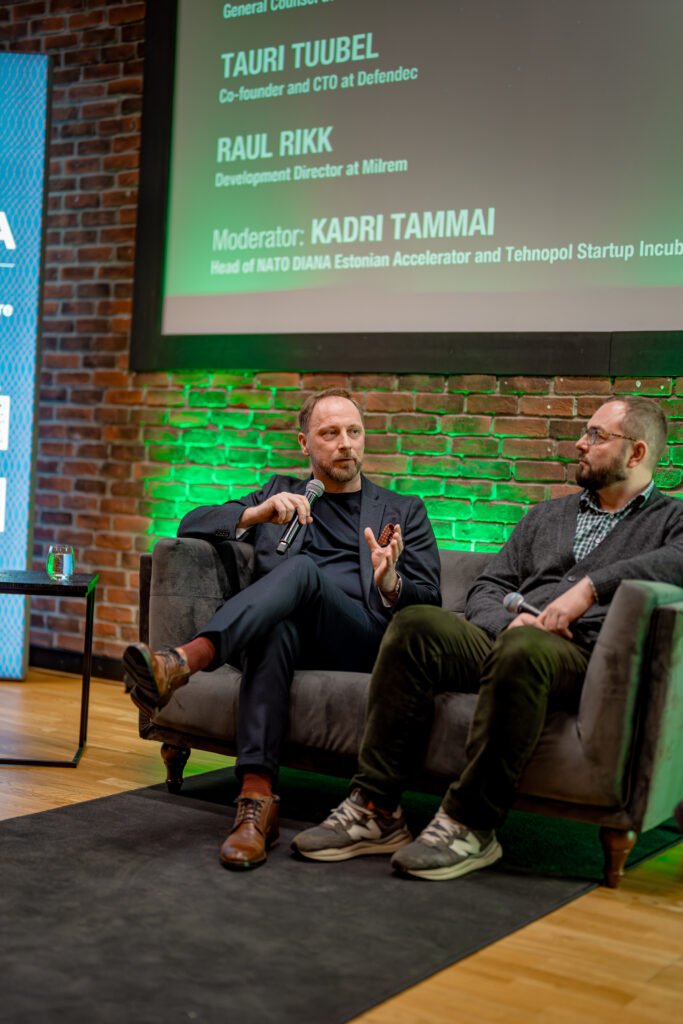
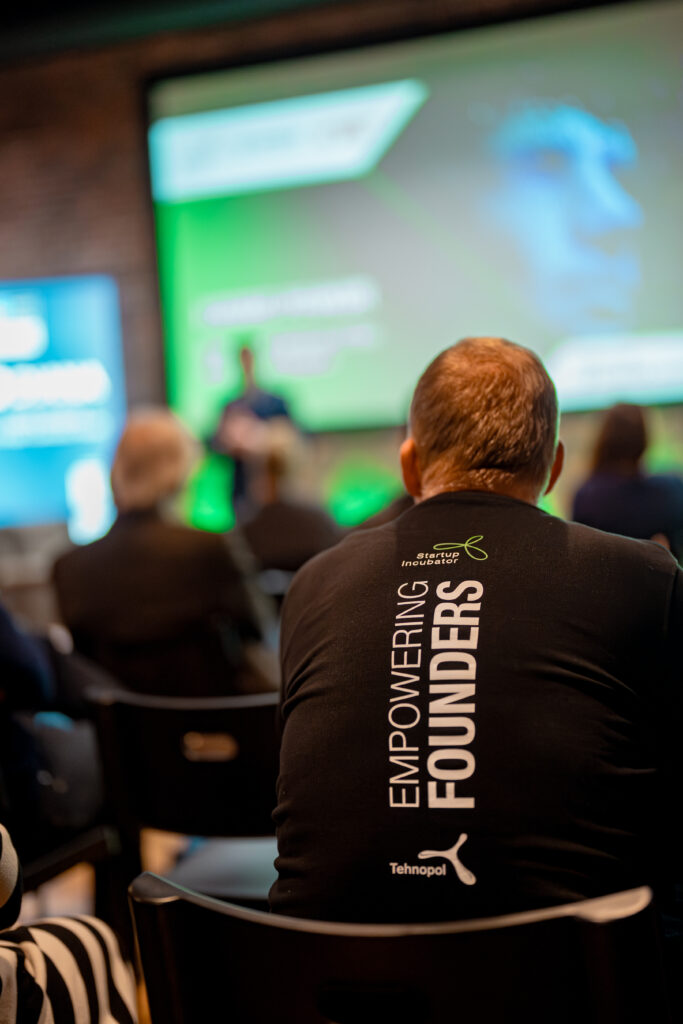
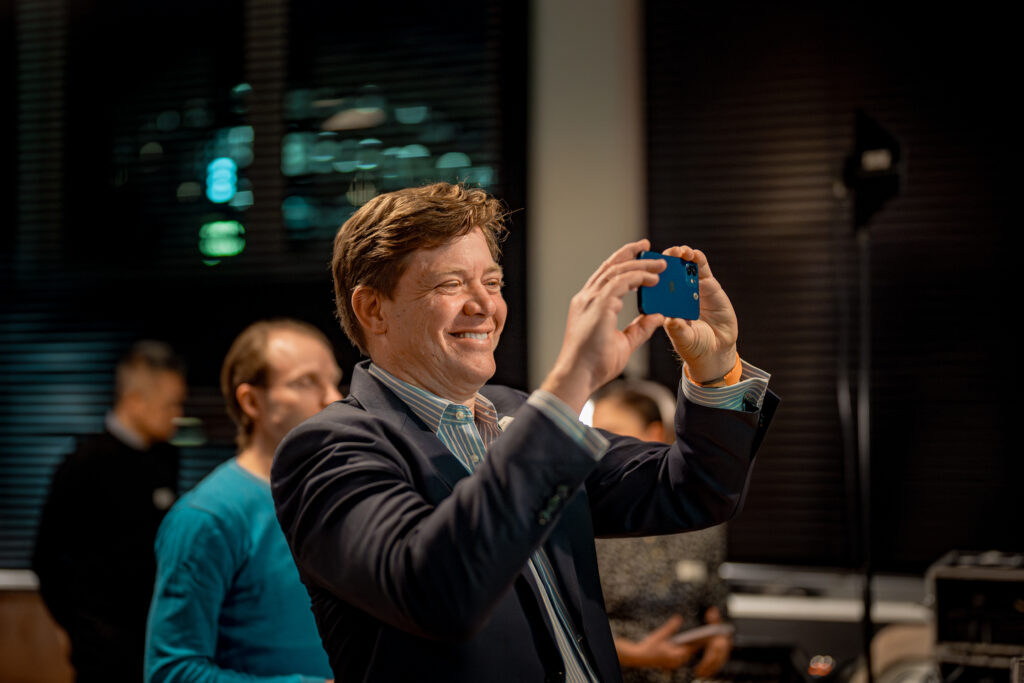
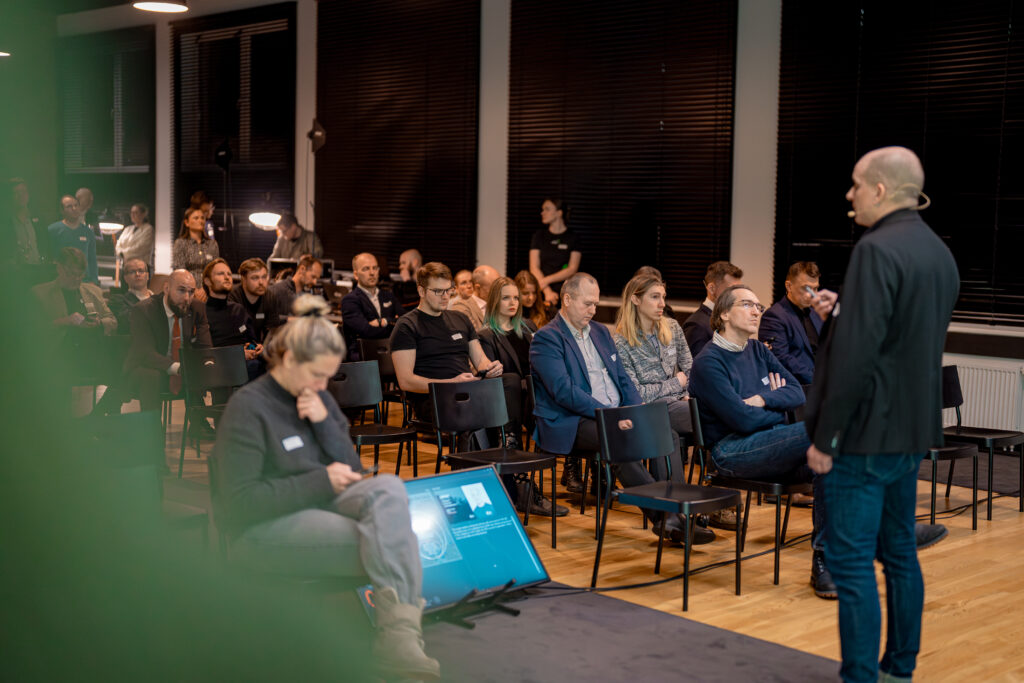
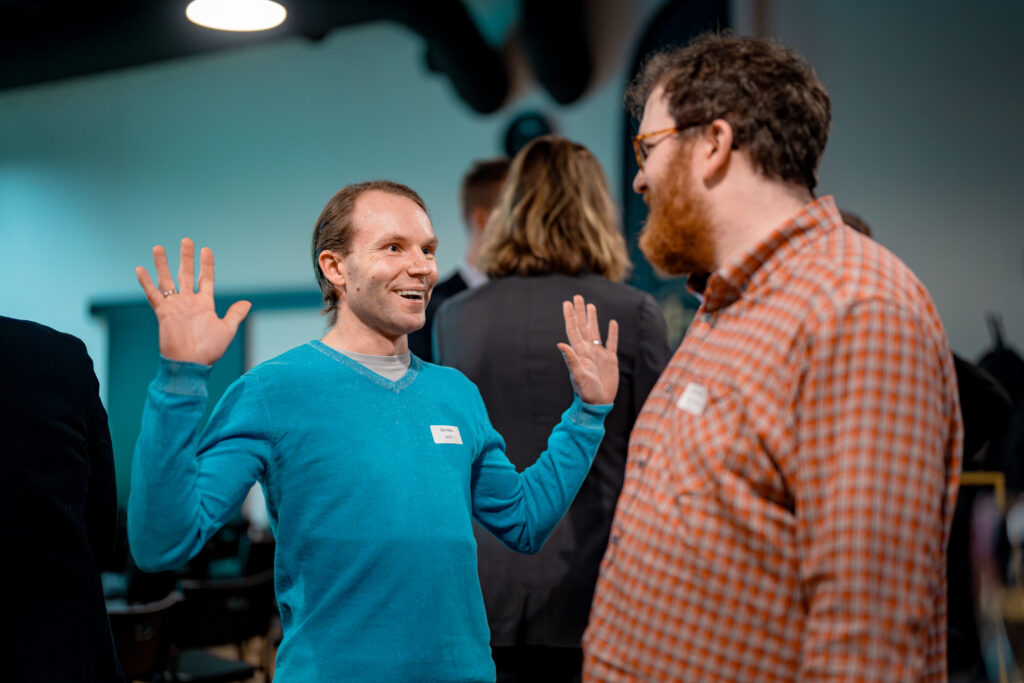
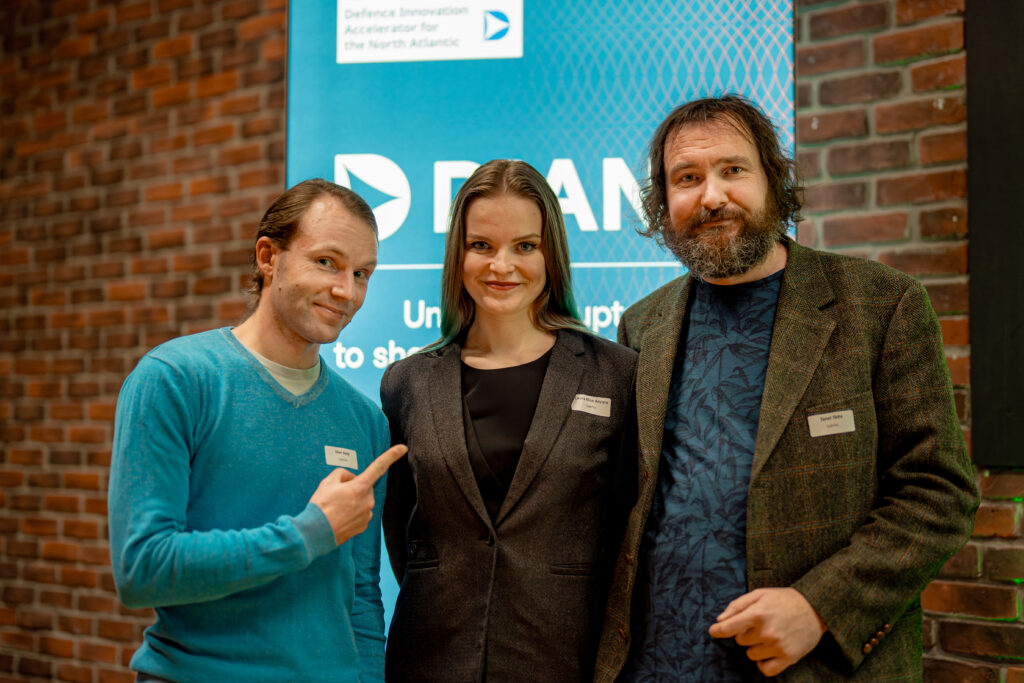
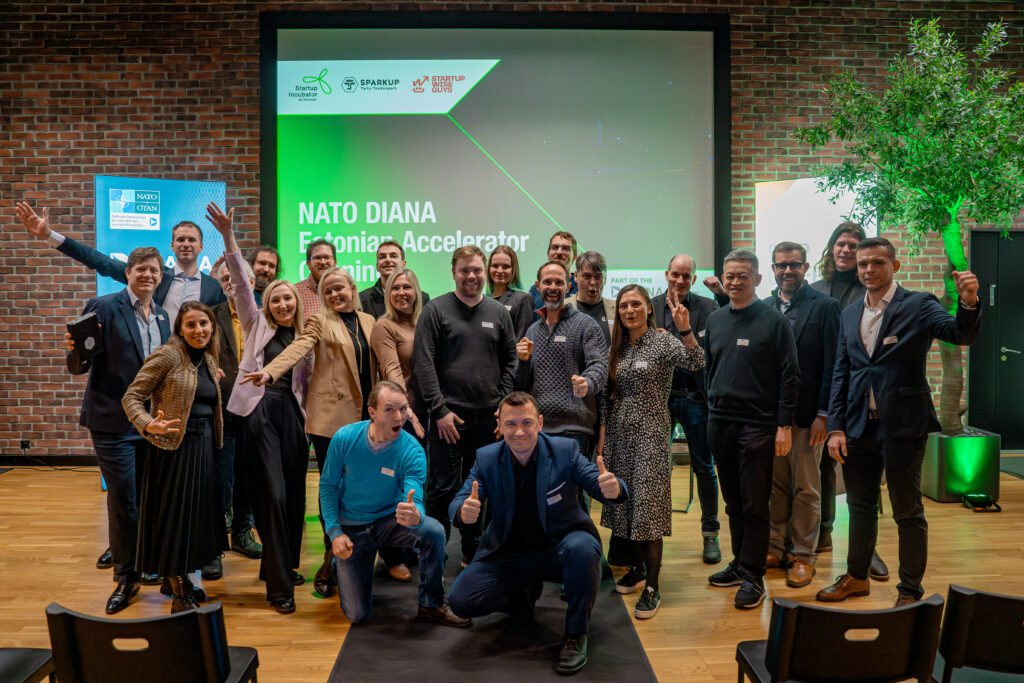
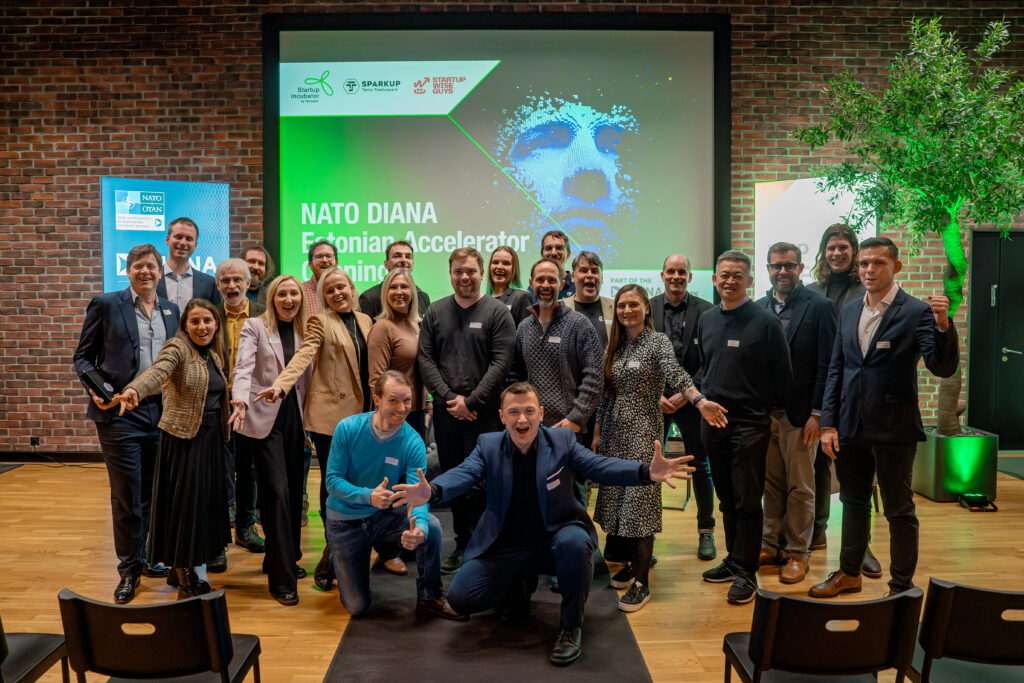
Prototron welcomes new CEO to drive innovation and growth
Brait Pilvik has taken the reins as head of Prototron, Estonia’s first fund for prototypes of smart ideas, from 1 January. Pilvik has previously worked as a marketing and sales project manager at the Science and Business Park Tehnopol, Latitude59 startup conference, and as project lead at the Greenest Summit conference.
“The startup sector plays an important role in the Estonian economy as an employer and taxpayer and as a driver of innovation. It is vital for this ecosystem to be maintained and developed. One way that Swedbank has been able to help develop startups for 12 years now is through the Prototron fund for developing prototypes. Brait’s wide experience in various parts of the landscape means that he has a very good picture of the Estonian startup ecosystem and a strong network within it. His work so far has left a strong and influential footprint, and that is exactly what Prototron needs today. We are very pleased that Brait decided to accept our offer”, said Triin Preem, Startup Segment Manager at Swedbank.
Brait Pilvik has been involved in the startup sector for some ten years, and over that time he has demonstrated how valuable a member of that community he is. His passion and his focus on results have helped dozens of projects to succeed. Having started out as an auditor, he has a lot of experience in creating and growing companies. Pilvik will bring his wide experience and an injection of energy with him to his new role as head of Prototron, and so take the fund to the next level.
“Prototron has by now given more than 1.2 million euros in support to smart business ideas. I believe that this success is down to the strong cooperation between enthusiastic leaders and outstanding partners. The technology sector in Estonia advances not in steps but in leaps, constantly finding new frontiers and new opportunities, and so the Prototron fund must advance in the same way. The goal is to make sure that all innovations and breakthroughs get independent support that allows them to develop without large companies overshadowing them, so preserving their freedom of movement in the next investment round. My goal is to lead the fund in a way, that it would take its place on the global stage”, explained Brait Pilvik.
The Prototron fund grew substantially under its previous head, Jana Budkovskaja, and has now been in operation for 12 years. The founders of the Prototron fund are grateful to Budkovskaja for all her work and wish her well in her new ventures.
Prototron was set up and is overseen by Swedbank, Tallinn University of Technology and the Tehnopol Science and Business Park, and it provides funding for prototypes of technological ideas to bring world-changing ideas and products to market faster. Prototron has provided 1.27 million euros in funding for 98 smart ideas over its 12 years, and the teams supported have then received a further total of more than 85 million euros in subsequent investment rounds. Several partners including the city of Tallinn, Utilitas, the Centre for Environmental Investments and many others have contributed to the Prototron teams.
Scorestars raises €725K to expand their fan engagement platform to new markets
Scorestars, the basketball fan engagement platform, today announces that it has raised €725K in a
Seed round led by Trind VC, Startup Wise Guys, 3 Comma Capital, and Estonian angel investors. Scorestars has completed the Tehnopol Startup Incubator program and is part of the Tehnopol Ventures portfolio.
The Estonian company has signed multi-year partnership agreements with the Turkish, Israeli,
Lithuanian, and Basketball Champions League. With the first investment, Scorestars will invest in
marketing campaigns and acquire new talent to become the second screen for sports fans. The
company has built a platform where fans can collect their favorite athletes’ digital cards and play a
fantasy game. The game has weekly, monthly, and seasonal prizes from VIP experiences to
PlayStations and iPhones.
Today, Scorestars operates in European domestic basketball leagues but in the future, we can expect
to see the platform being also used by other sports fans. The company’s goal to bring younger
audiences closer to the professional sport, is something the sports sphere is looking for. As Scorestars
offers fans real-life experiences as rewards and is becoming the voice of the fans, they have built a
strong community behind the platform which is growing day by day.
“We met the founders for the first time when the company was in the idea stage, and since then, they
have achieved milestone after milestone. Without any outside funding, the founders managed to
attract a great team and build a strong community around Scorestars. We are eager to see the
founders crushing their next goals, ” commented Ivar Siimar, Partner at Trind Ventures.
Scorestars is a free and easy-to-use platform for sports fans. Every user who signs up gets a set of
digital cards on their account, and by playing the fantasy game, the platform offers a way to collect
more and more cards. Users can manage their collection and act as managers of the team as they
select their favorite and possibly best-performing athletes to the virtual basketball court. All scores
are automatically translated into a leaderboard based on the real-life performances of the players.
Every user has the chance to win cards with bonuses and sell these on the marketplace to other users.
That’s how Scorestars generates revenue – selling higher bonus cards and taking a fee from the
marketplace transactions. So far, the game has been played over 300,000 times and 2,000 transactions
have been made by European basketball fans on Scorestars platform. Today, most of the users are
between 18 to 28 years old and over 90.8% of the user base is male. Scorestars, with a yearly userbase
growth of 4000%, sees an increasing trend for female sports following audience joining the Scorestars
platform.
“We are delighted to announce the closing of the Seed round! It means that our work in the sports
community is recognized not only by the sports organizations and fans but also from outside. Sports
fandom is rapidly growing, and we believe there’s a massive opportunity to engage the younger
generation in a new, more thrilling way,” commented Marek Kesküll, CEO of Scorestars.
Fantasy sports games have been around for more than 60 years. Yet, it has had an untapped potential
so far as the games haven’t been interactive and engaging enough. Scorestars has taken two proven
concepts of collectible sports cards and fantasy game to merge them into a platform where users can
follow the live scores, look out key statistics, have their skin in the game, trade the cards, have a talk
in the community, and much more.
Karolis Paulas, Lithuanian VIP user on Scorestars.io: “I joined the Scorestars.io platform because I
believe in the idea of collecting digital sports cards and managing teams against other basketball fans.
In the first season, I had the skill set to win the Citadele KMT Final 4 tournament. Scorestars has an
active community where I love to discuss basketball as it’s my favorite sport. Scorestars.io and
basketball are a perfect combination for sports fans. I invite you to join Scorestars and test your
analytical skills, let’s play!”
Cristobal Alonso, CEO at Startup Wise Guys, who invested 150,000€ together with 3 Comma
Capital:”Myself and Alexa met Marek more than a year ago in Tallinn after Dag mentioned that if it
was basketball you need to talk to Cristobal. We felt they were into something big. His progress,
persistence, and the web3 layers have made Scorestars an exciting investment from SWG side
together with 3 Comma. Pedro Cerdeira, partner at 3 Comma Capital added:”We are delighted to
welcome Scorestars in our joint web3 program with Startup Wise Guys. It is clear from the beginning
that Scorestars has everything that is needed to be extremely successful!”
About Scorestars
Scorestars is an Estonian sports technology company based in Tallinn. The company is offering
professional sports leagues a chance to engage with a younger audience with fantasy game and digital
cards platform. Scorestars has raised 725K in Seed round from Trind VC, Startup Wise Guys, 3 Comma
Capital and Estonian angle investors.
About Trind VC
Trind Ventures is a seed-stage venture fund focusing on startups with a consumer or community
component. The fund has invested into Ready Player Me, eAgronom, Fractory, Yaga etc. Trind VC has
offices in Tallinn, Helsinki and Munich.
About 3 Comma Capital
3 Comma Capital is a next generation asset manager and Venture Capital firm dedicated to helping
startups take over the tech scene with game-changing innovation and growth. We fund early-stage
high potential startups with cutting-edge technology, extraordinary teams, and the ambition to
change the world. Are you ready to join the revolution?
About Startup Wise Guys
As a diverse team of tech lovers, mentors, experts, and founders ourselves bound together by their
passion to support founders on their entrepreneurial journey. From Startup Wise Guys portfolio, we
can find Bolt, Comodule, Estateguru, Skeleton Technologies, Planet 42, Katana Technologies, Fractory
and others.
Estonian-based Marleq is building an international community of high-quality career coaches
Tehnopol is part of the joint Northbound Scaleups (NBSCALE) project, which helps companies expand into new markets. Estonian start-up Marleq visited Berlin as part of NBSCALE and met with prospective coaches.
Marleq is offering their clients mentoring by experienced career coaches. The start-up’s internationalization plan is to expand further to Germany, as they already had one coach in Berlin, and during the NBSCALE program, they found a new coach in Munich. “The German market has potentially over 360,000 career coaches on LinkedIn. And according to the Federal Statistical Office – Destatis – roughly 46,1 million people who are German residents, were in employment as of October 2023. Consequently, both of these are a great opportunity”, said Milo Radulovic, the CEO of Marleq.
Milo Radulovic met with their previous, current and prospective new coaches. “We had the list of 18 people to potentially meet during the visit, but only 6 of them live in Berlin, so it was quite challenging to organize face-to-face meetings with them”, Radulovic said. “Unfortunately, some coaches declined the physical meetings at the last moment, so the visit in that sense did not entirely go as planned.”
As to whether there are any competitors in the German market, Radulovic said that there are global competitors that they have to take into consideration – such as LinkedIn, Randstad, Noomii, UpWork, etc. But he pointed out two major German specifics. First, Germans use XING, the leading online jobs network in German-speaking countries with 16 million users. Second, there’s a German start-up called CoachHub, which raised 330 million dollars and is the leading digital coaching platform with 4,000+ certified international coaches.
“What sets Marleq apart from the competitors, is that we are a proactive and supportive community of coaches”, said Radulovic, “Currently, we have 32 coaches from 26 countries, and our coaches feel like our true members, not just a number in a huge company. We focus on human-to-human relationships, rather than a transactional approach.”
Marleq’s biggest advantage is their people, as the majority of them have been working in 4-5 countries. They are building a privileged community of coaches. “Interestingly, 1,000+ coaches applied to be part of Marleq, so we focus on high-quality coaches, rathen than quantity. We work closely with coaches to secure their success. On average, candidates need six months to find a new job, our candidates need 1-2 months”, Radulovic explained.
The start-up plans to foster internationalization, grow faster, and increase the number of both career coaches and job seekers globally. Currently, they have coaches in 26 markets – the US, Canada, UK, Australia, Singapore, UAE, Qatar, Germany, Sweden, Switzerland, France, Finland, Netherlands, South Africa, Spain, Italy, Luxembourg, Nigeria, Uganda, Montenegro, Cyprus, Serbia, Jordan, Kuwait, Pakistan, and Estonia. Their goal is to have up to 3 coaches in these markets. “We are not ready to accept more than that, as we cannot provide them with enough qualified leads. The only exception of having potentially up to five coaches per market, at this stage, can be in the UK, Germany, USA, and the UAE, as the demand for these markets is exceptional”, added Radulovic.
Northbound Scaleups (NBSCALE) is a joint project run by Tehnopol, the Turku Science Park in Finland and Movexum in Sweden to help companies expand into new markets. Northbound Scaleups project is funded by the EU Central Baltic Program.
Top 10 recommendations to develop Estonia’s deep tech ecosystem
Today, there is readiness to contribute to the further development of research-based teams. However, what is mainly lacking is the practical experience in supporting deep tech teams and agreement on the precise next steps. Additionally, there is a lack of a shared understanding and a “good practice” on the use of intellectual property and the involvement of investments across the Estonian deep tech ecosystem. For this reason, the Deeptech Sandbox project was initiated by Tehnopol Startup Incubator, Estonian Business Angels Network (EstBAN) and Tallinn University of Technology (TalTech), powered by Startup Estonia.
In the scope of the Deeptech Sandbox project, the participants of the Estonian deep tech ecosystem had a unique opportunity in 2023 to learn from the best practices of three leading deep tech ecosystems: the Cambridge region (the UK), the Eindhoven region (the Netherlands), and the ecosystem surrounding the Technical University of Denmark.
Despite the differences between the ecosystems, it is possible to draw conclusions about which approaches would help more research teams spin out of the Estonian universities and deep tech start-ups to be more competitive in the international markets.
All three ecosystems are united by a strong and consistent focus on the commercialization of research achievements. This allows the research teams to have a clear business development roadmap and an understanding of what are the university’s possible development grants and conditions for transferring intellectual property rights. Estonian universities are taking steps towards increased transparency of technology and knowledge transfer and clear business development roadmaps but can learn from the lessons of our selected ecosystems.
TOP 10 recommendations from Copenhagen, Cambridge, and Eindhoven regions to develop Estonia’s deep tech ecosystem:
1. Clear roadmap to ensure the commercialization of science in all Estonian universities, together with university grants, and conditions for transferring IP to a private company, outlining the conditions for equity taken by the university or licensing fees and the expected time frame of the process. The Netherlands has also followed this path.
2. Consistent public funding for research teams for the proof-of-concept and transition from science to business phase.
3. Investor involvement in the early phase of the company – initially as mentors, later already as a real investor. If possible, the involvement of international investors to open doors to new markets.
4. A clear decision by the research team members, whether to continue as a researcher at the university with a full-time position and have a small (single digit) share in the company or to head fully into entrepreneurship, developing all the necessary skills to become an entrepreneur.
5. The capitalization table of university spin-offs must be kept as simple and clean as possible. For universities this means that taking equity in spin-offs must come with clear internal procedures and the speed of decision- making like other investors. A good example of moving in this direction is the creation of UniTartu Ventures by the University of Tartu.
6. A platform for researchers and entrepreneurs to connect and find co- founders, mentors, and other help. In Denmark, an online platform was created for matchmaking between spin-offs and potential new team members. An additional step would be the creation of Entrepreneur in Residence programs in all universities and Venture Studio-type programs in science parks.
7. Demand from the government for universities to commercialize science and an understanding that the whole ecosystem, including the public sector, is responsible for contributing to the growth of new science- based companies.
8. A clear division of roles between ecosystem members, especially the universities and science parks. The division of roles must be complemented by close collaboration and the early involvement of investors.
9. Clear roadmap for those entrepreneurs who want to become a university spin-in company from outside the university. An analogy here is the Cambridge spin-in model.
10.Encouraging and facilitating the creation of student teams. Based on Eindhoven’s example, providing strong support for early-stage volunteer-based teams of students (such as student formula teams and the student satellite team) working on innovation projects over the space of several years leads to increased publicity for universities, a noticeable increase in start-ups and spin-offs created, as well as increased employability of graduates who have gained significant practical knowledge.
The necessary momentum for Estonia’s deep tech ecosystem to take the crucial next steps has been created. Lessons from the Deeptech Sandbox project serve as a lighthouse to make some vital improvements in the next few years. The conclusions of this program match and complement the deep tech Action Plan put together by Startup Estonia in the spring of 2023.
Estonian startup’s AI solution revolutionizes the development of antiviral drugs
Estonian healthtech startup Nora AI is developing antiviral drugs using the power of artificial intelligence. The company is building a platform that significantly accelerates drug development, reduces costs by hundreds of millions of euros, and increases the likelihood of clinical success. Nora AI is currently participating in the Tehnopol AI Accelerator and is the newest member of the Tehnopol HealthTech Community.
Nora AI is leveraging the power of artificial intelligence to develop novel antiviral drugs. In collaboration with the Biosafety Laboratory of University of Tartu, the focus is on treating viruses with a global impact. The company’s innovation lies in its drug development platform, Nora.
This platform aims to accelerate the drug development process by years, reduce costs by hundreds of millions of euros, and greatly increase the likelihood of clinical success. “Nora automates critical aspects of biomedical researchers’ daily work. This includes summarizing scientific literature, searching databases for information, recommending new drug candidates, and communicating with the results of scientists’ own laboratory experiments,” explained Carmen Kivisild, co-founder and CEO of Nora AI. Additionally, the company plans to license the Nora platform to universities, research institutions, other startups, and pharmaceutical companies. “The potential of the Nora platform is too big to keep it just to ourselves,” said Kivisild.
Mart Ustav Jr., the CSO of the award-winning Tartu biotechnology company Icosagen Cell Factory, expressed his enthusiasm for Nora AI’s plans. “Traditionally, it takes about ten years for a drug to reach the market, and a large number of these drugs fail at various stages of clinical development. Therefore, innovative companies like Nora AI, which could increase the likelihood of success by identifying the right targets, are very welcomed. We look forward to the completion of the Nora platform to test its impact on our drug development programs,” added Ustav.
Recently, Nora AI raised €65,000 from angel investors to build the Nora platform. Angel investors see an opportunity in Nora AI to contribute to global health development and save millions of lives. “The rapid advancement of technology and artificial intelligence has unlocked unprecedented opportunities in healthcare and drug development. I believe Nora AI is at the forefront of this revolution. Together, we can make drug development cheaper, more effective, and globally accessible,” reasoned Arti Kütt, the CEO of Cleveron, about his investment decision.
“Although the company is only three months old, we have already secured our first round of angel investment, earned spots in the Tehnopol AI Accelerator and the Tartu Biotechnology Park incubation program. And this is just the beginning,” invited Kivisild everyone to join in celebrating the company’s milestones.
A clusters exchange visit creates new business opportunities and confirms Estonia’s position in greentech
A cluster exchange visit held as part of GreenTech 2.0 brought foreign visitors yet again to Tehnopol. The GreenTech department at Tehnopol hosted visitors from Latvia, Lithuania, Finland, Sweden and Germany, and they all joined together and with local companies at the events of GreenTech Week.
The visit started with the GreenEST Summit on green innovation, which brought together experts from the public and private sectors, green technology companies, and investors from across Europe. The summit discussed how AI could be used to accelerate the green transition.
The party of visitors then went to the Fibenol factory, where they were shown the exciting sunburst pre-processing technology. This allowed them to see the revolutionary fractionation process in operation and take a deep dive into the practicalities of sustainable raw materials.
They attended the Smart City conference as part of NEXPO, the dedicated greentech exhibition, where several meetings had been arranged with a range of companies. NEXPO gave the visitors an extraordinary opportunity to see the latest technological breakthroughs that are ready to redesign production and promote sustainable growth. There was then a high-level reception in the evening held by Cleantech Europe at the Seaplane Harbour.
The visitors were very positive about the whole experience and several opportunities for cooperation have already been launched from it. New projects are being discussed with Latvian partners that have stirred great interest and show a clear commitment to continuing to work together in future. The Swedish delegation are planning a joint presentation at the CleanTech Forum in the USA, and there is a joint plan to research opportunities for cooperating on green activities in the African market. The Finns are planning to start a green roof project in Tallinn with smart bees, which is a good example of local and practical cooperation, and the Germans discussed the follow-up activities for another ongoing project.
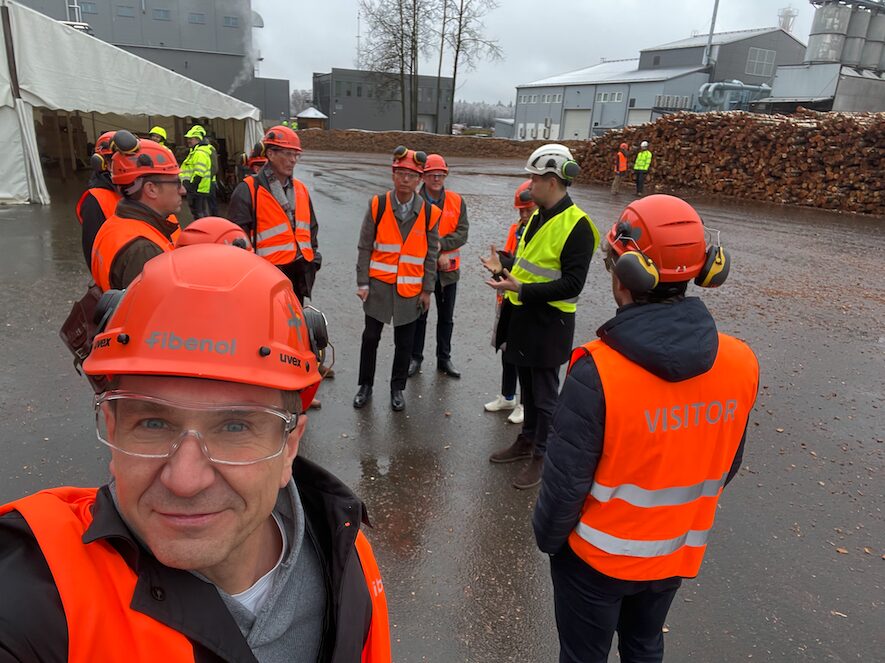
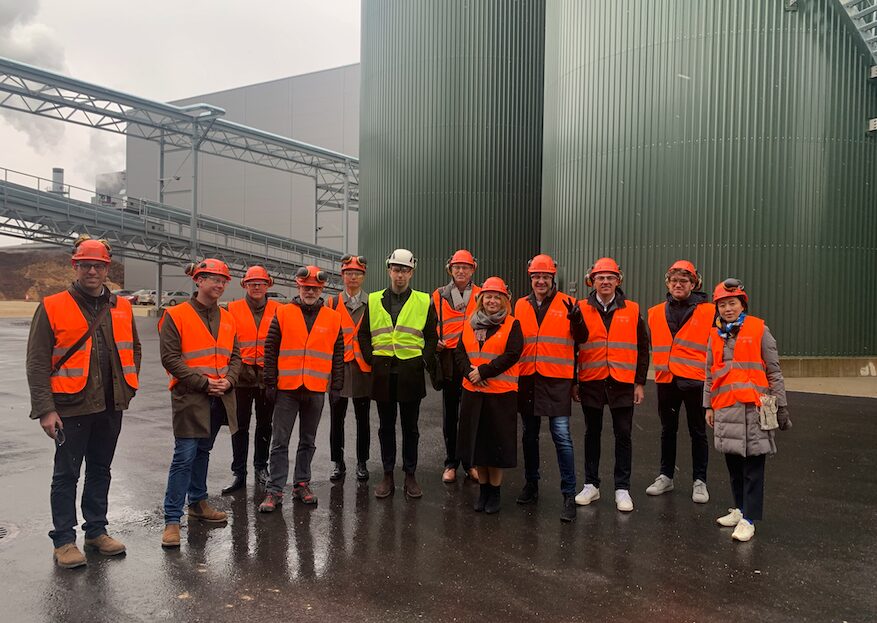
The visit was important in many ways, says Ragmar Saksing
Head of GreenTech at Tehnopol Ragmar Saksing said that all these opportunities for cooperation demonstrate how strong our connections are with our partners and how we can create valuable business opportunities.
“The visit was important and beneficial in many ways, especially in connection with GreenTech Week. It gave us the chance to show off and feel proud about the achievements of our Estonian companies, as it is important for these to be recognised both domestically and internationally. There was a lot of concentrated togetherness this week.
“Such visits between clusters are extremely important, as business is built on communication between people. This visit gave us the chance to create and strengthen the ties with businesses and organisations in other countries that are vital for the success of international cooperation. These relationships do not just help with our current projects, but they lay the foundations for future endeavours. Green Week was one of the most important weeks of work for me in 2023”, he explained.
Summarising the event, he noted that the visit was an important step in strengthening Estonia’s position within greentech, and so helped the reputation of the country while also providing specific business opportunities. “The visitors made contacts that they can work together with, and several of them are planning to develop further towards Estonia. Our work has been successful and has created a firm foundation for doing business together in the future”, he concluded.
The GreenTech 2.0 project is funded under the European Union COSME programme (contract number 101037914). The website of the project: greentech-project.eu.
A new urban environment app is being piloted in Tartu as part of the Urban Tech project
Bulgarian startup Make18 is developing an app called CoTown that makes it easy to engage people in improving the urban environment and to gather opinions and proposals for ways to do it. The pilot project for the app is being run in Tartu, and people from Tartu are being invited to test the app until 31 December.
The Urban Tech project led by Tehnopol identified a set of challenges last year and started seeking solutions for them this year. Make18 took on the task of developing a platform for receiving suggestions for ways of improving the urban environment at the request of Tartu.
Jaanus Tamm, the Project Manager at Tartu City Government, said that the app has great potential. “A solution like this could be a logical part of how changes are made to the urban environment in the future. The vision that people have for their town from different perspectives can help in bringing solutions to the urban space and give a better idea of how residents would like to see their home town”, he explained.
The app can be tested and feedback given at: https://cotown.eu/app/Tartu
CEO of Make18 Maksim Nedkov explained that the city of Tartu wanted to find a simple smart solution that could involve both residents and experts in suggesting ways of improving the urban environment. “Our team created the CoTown app as an online tool that people can use to create a collage of photographs to visualise their ideas for how they would like to see the urban space of their town. It is sometimes better to communicate visually, using pictures, rather than in writing”, he said.
He added that there had not previously been an app like this that allows pictures to be used in urban planning and that involves the residents of the town. Nedkov is an architect by training, and urban planning is his great passion. He also likes developing software, and so CoTown was the logical outcome of his interests. CoTown will improve communications between residents and local authorities, and can be used in all towns or cities that want to listen to ideas from their residents.
The CoTown app is being piloted in Tartu and the first tests of it will use two sites in the centre of the city on Küüni and Ülikooli streets. “We plan to start selling the CoTown app to the city planners and city authorities of various cities in early 2024, and the tests in Tartu will give us a lot of valuable feedback”, said Nedkov.
Kristiina Libe, Project Manager at the Tehnopol Science and Business Park and mentor to Make18, commented that the smart city does not just mean smart road signs, infrastructure and buildings, but it should also support the social well-being of its residents and give them the chance to contribute to the development of their town. “The CoTown app is a platform that residents can use to put forward their own ideas and thoughts about how the urban space could be planned better. It can easily be used to involve different age groups and get a picture of what people want to see in their home town”, she said.
Collaborative innovation boosts ophthalmologists with advanced technology
Technological and innovative solutions are now an everyday part of medicine and constantly evolving digital solutions help to improve diagnostics and treatment. One of such innovations is a joint development by Tartu University Hospital and Dermtest, which creates new opportunities for ophthalmologists to manage eye diseases and document treatment.
Within the joint development, a package of functions was created for handling medical photos related to the eye and eye area. These functions improve the documentation of eye diseases, increase the quality of data, make the whole process more convenient for all parties and thereby enhance the quality of clinical treatment and also treatment outcomes. Healthcare professionals have the option to add medical photos of eyes and eyelids – to document eye and eye area conditions based on the specifics of ophthalmology. Accurate visual documentation simplifies involving the patient into the treatment process.
Priit Kruus, founder and CEO of Dermtest, said that Dermtest digital toolbox for medical photo management helps to manage various conditions of the human body. “The software is mainly developed for managing medical photos and skin issues, but healthcare professionals of other specialities have successfully implemented it as well”, said Kruus.
He stated that every speciality has different needs. Ophthalmology includes the diagnostics of eye and adnexa (eyelids, eye socket, tear ducts) pathologies, and the diagnostics of refractive disorders. Ophthalmologists handle medical issues related to the eye and skin surrounding the eye. They also perform surgical procedures. This and other potential use cases have created a larger need to add a so-called eye examination type to the system.
Ophthalmologist Dr Maris Rebane from Tartu University Hospital said that she uses this solution on her patients mostly for storing pathologies (nevi, basaliomas, traumas etc.) of the face and eyelids. It is also possible to store microscope-enhanced photos to, for example, monitor pathologies related to the pupil and iris. “Storing photos, viewing them on a large screen and comparison helps me to better assess treatment results or skin changes and also explain the nature of the disease to the patient. At the same time the stored medical photo is a legal document protecting the patient and also my medical practice. Every piece of visual data is crucial for managing eye diseases and it is important that equipment and software performs in cooperation and accommodates the specifics of ophthalmology,” Dr Rebane stated.
Eye examination type can be used by all hospitals that are already using Dermtest photo management solution, including Tartu University Hospital, East Tallinn Central Hospital, West Tallinn Central Hospital, Pärnu Hospital, East Viru Central Hospital, Children’s hospital and Narva Hospital. It will also be activated for general practitioners who use the existing system to capture medical photos and forward them to the national database, as from the next year the ophthalmologist e-consultation for adults will be launched nationally and some activities in this process can be facilitated by the Dermtest solution.
“Creating new digital solutions in healthcare is very complicated, but we saw the need and opportunity to take a specific step towards improving a service flow. Therefore, I am happy that the joint development was supported and Tartu University Hospital promptly got on board, contributing to content and also being the first user,” commented Priit Kruus.
The joint development was made possible by support from the Tehnopol led Connected Health Cluster (now called Tehnopol HealthTech Community). The study was co-funded from European Structural Fund resources. Dermtest and Tartu University Hospital are both members of the Tehnopol HealthTech Community.
The Estonian company Babash is bringing further variety to events organisation in Latvia
Tehnopol is part of the joint Northbound Scaleups (NBSCALE) project, which helps companies expand into new markets. The Estonian event organiser Babash went to Latvia as part of NBSCALE and met possible partners it can expand its business with.
Founder of the company Andrei Stepin said that the meetings went well. “We met a lot of event organisers and nightclub owners, and we have already started working with them and are organising our first events in Latvia”, he said. They also met sales representatives in Latvia who deal with the Latvian market every day and can explain the Babash platform. “It has always been very important for us to have personalised solutions, and so this trip was really useful for us in breaking into the Latvian market”, said Stepin.
Latvia was always the first market that Babash would expand into, as it is similar to the Estonian market in size, geographical location and legal background. Stepin said that the company is working with one of the most famous DJs in Latvia, who has introduced them to all the right people and made their job that much easier. An important advantage of Latvia is that they can travel there quickly if needed, say if something urgent crops up or if they need to meet someone.
Stepin said that there are fewer competitors in the Latvian market than there are in Estonia. “There are about 15 such platforms for organising events in Estonia, but in Latvia there are fewer than ten. That makes our work easier, though it still takes time to build trust and a reputation”.
Babash differs from its competitors because of the solution it uses, as it has always tried to have close personal communication with the event hosts it works with so that clients can make contact with confidence 24/7 if they have a question. The same solution will be used in Latvia.
The Babash platform is designed so that it can be used anywhere, so it has not needed to be adapted very much for the Latvian market. The biggest change was adding the Latvian language option to make the platform user-friendly for the hosts of events and for the end clients who will buy tickets or book tables through it.
The year 2023 has been a very successful one for Babash as it has set a new record of some sort almost every month, whether that record is for turnover, visitors or event hosts. “We plan to continue in the same vein, and not only in Estonia but now also in Latvia”, said Stepin.
Northbound Scaleups (NBSCALE) is a joint project run by Tehnopol, the Turku Science Park in Finland and Movexum in Sweden to help companies expand into new markets. Northbound Scaleups project is funded by the EU Central Baltic Program.
How can AI transform the healthcare sector
The Tehnopol HealthTech Community gathered on November 29 at Nortal to discuss the future of AI in the healthcare sector. Nortal is a fast-growing, impact-driven global company and a strategic partner for healthcare institutions, governments, leading businesses, and Fortune 500 companies. And lucky for us – a member of Tehnopol HealthTech Community. We share the same mindset with Nortal, in supporting businesses, governments and organizations in building world-changing solutions with the use of right technologies.
The future hospital information system
Kertti Merimaa, the Product Manager at Nortal, kicked off the event and spoke about Nortal’s vision of the future of the hospital information system. She said that the solution must provide help in maximising the actual workloads, it should help in data-driven decision making in hospital management to use their resources in a reasonable way, and it must help to increase the quality of care.
Kertti Merimaa highlighted three trends of 2024:
- Patient-centred care provision
- Rise of the remote services
- Data (being the new oil)
Patient-centred care provision
The hospital system so far has focused very much on the doctors, but the focus will now shift to patients: all the new healthcare services will revolve around the patients. For the information system, this means more personalization. According to Kertti, we will see more personal assistance, dashboards and apps; we will also continue to see the rise of personalised medicine, and we must think how to harvest the data that comes up and how to bring this into the everyday clinical workflows. The hospital information systems will not only provide support for medical professionals, but it will become the new collaboration tool for much more varied specialists (rehabilitation specialists, social care specialists, etc), who need to be in the same information field.
Remote services
The hospital information system needs to help or provide support for all these services that have changed their location. This can also influence the pre-triage systems – how can we optimize this kind of digital-first solutions; how to mitigate the risks of the digital-first solutions. Or how to make the time spent in hospitals shorter so that people can continue their treatment or care at home. We must think how can the hospital information system help telemonitoring systems.
The data
There’s no arguing that AI runs on data. But if we don’t transport the data into knowledge, then it’s useless. The megatrend concerning data in healthcare is how to make the data help bring the cost down (process automatization – how to reduce the time spent on manual labour in healthcare; the standardization is one of the key challenges – we have tons of data but most of it is not really standardized).
Kertti shared that in her opinion, AI cannot replace medical professionals in healthcare. The studies also agree that teleconsultations, remote services, AI chatbots can be more efficient, give good results, and resolve many challenges, but people still want to see a doctor face-to-face. AI can help increase efficiency and optimize the use of the most valued resources, but they cannot replace people and physical touch.
Examples of AI in healthcare
Otto Mättas, the AI Project Manager at Tehnopol, gave some examples of the possibilities AI has to offer to the healthcare sector. Otto agreed with Kertti that one of AI’s greatest strengths is processing data, and figuring stuff out while using a lot of data. And there is a lot of data in healthcare. He added that integrating AI into our workloads together with our doctors and policymakers can really enhance the future.
Relying on various studies, Otto introduced where AI has already improved the healthcare processes. For instance, AI has shown remarkable potential in aiding the diagnosis of multiple sclerosis by analyzing medical imaging data, such as magnetic resonance imaging (MRI) scans.
He also spoke about personal assistants that are driven by AI. For example, the University of Colorado Healthcare Innovation Centre has created Livi, which is a virtual assistant focused on automated self-service solution that emulates a human assistant and provides data about services and facilities. The second solution he mentioned was a phone app called Symptomate, which is an intelligent tool for symptom assessment.
AI in eHealth
Elena Sügis, the Senior Data Scientist at Nortal, focused on AI use in eHealth. Just like the previous speakers, Elena pointed out that doctors are dealing with massive amounts of data and trying to make sense of it every day. And they are very good in what they do, but why do we need AI then? The reason is that a large amount of doctors’ time is spent on administrative tasks. There’s not enough doctors and the ones that are working, are overloaded with routine tasks. AI can help make their jobs more efficient.
So, in short, AI has the power to:
- Reduce the doctors’ workload
- Improve the accuracy of clinical decisions
- Offer better healthcare in case of shortage of staff
- Adapt and learn all the time from the old data and also from the new added data
Elena gave an example that the majority of medical texts are free form texts. AI-based systems could potentially help doctors to summarise these texts, find information more easily, categorise it better, etc.
She also introduced Nortal Tark, a solution based on large language models. Nortal Tark helps to connect various systems and use only your documents which might also include delicate data that you cannot share with ChatGPT. You can ask the system questions and it will provide answers only based on your documents (for example a collection of patient epicrisis). It also helps to generate new documents using the information in other documents. Nortal Tark includes chatbot for chats, it can recall previous conversations and uses various languages. One of the main benefits is that you can ask your questions in a human manner, and not use keyword search.
Empowering AI-driven healthcare
Lucas Zielstra, the Business Development Manager, and Wiebe Zwaan, the Director of Regulatory Affairs at Quantitas Solutions, introduced their company and what they do in regards to AI in healthcare.
Quantitas Solution has a network of clinicians determined to accelerate the potential of AI in healthcare. They focus on radiology and help medical imaging companies in these four areas:
- Help AI developers improve their products;
- offer high quality medical annotations;
- use high quality medical data;
- focus on the regulatory and implementation aspects;
Talking about the power of Quantitas Solutions – all the expertise needed to perform these tasks is in-house. They also help to introduce these products to hospitals and support in implementation phase.
Next generation anonymization of sensitive health data – experiences from Finland
Tuomo Pentikäinen, the CEO of VEIL.AI, concluded the data workshop. When talking about his company VEIL.AI, he said that data is the enabler and driver of the next breakthroughs in medicine and healthcare. VEIL.AI has reinvented anonymization in a way that solves access to data and data quality problems. This revolutionizes how data intensive medical and healthcare research and operations will be made.
VEIL.AI has developed and patented a game-changing AI-based technology that unleashes the power of data. It’s called the VEIL.AI Anonymization Engine – it creates extremely high-quality record-level anonymized and synthetic data.
One of the collaborations Tuomo mentioned was with the multinational pharmaceutical and biotechnology company Bayer. Bayer wanted to improve their global drug research processes to speed up clinical trials, reduce costs and increase patient safety. VEIL.AI provided the next-generation technology for data anonymization and synthetic data generation. The results proved that VEIL.AI’s anonymized data was as reliable as the original data.
